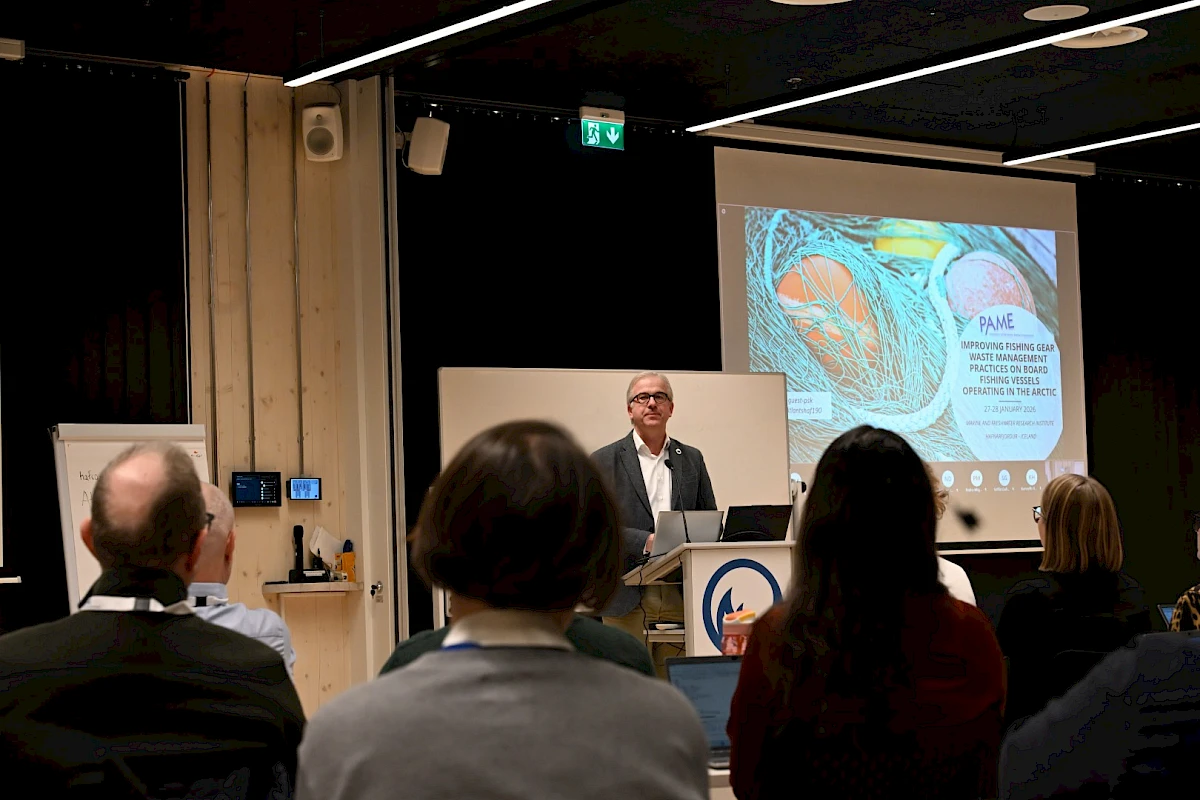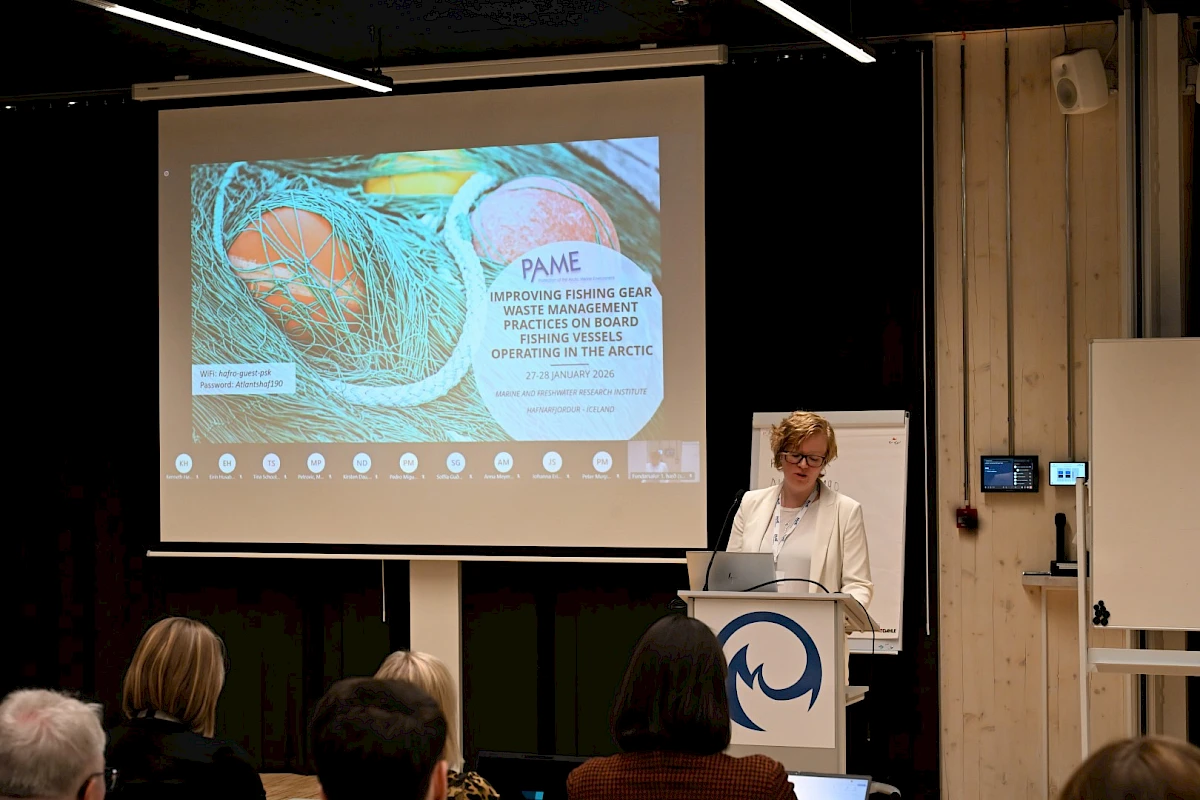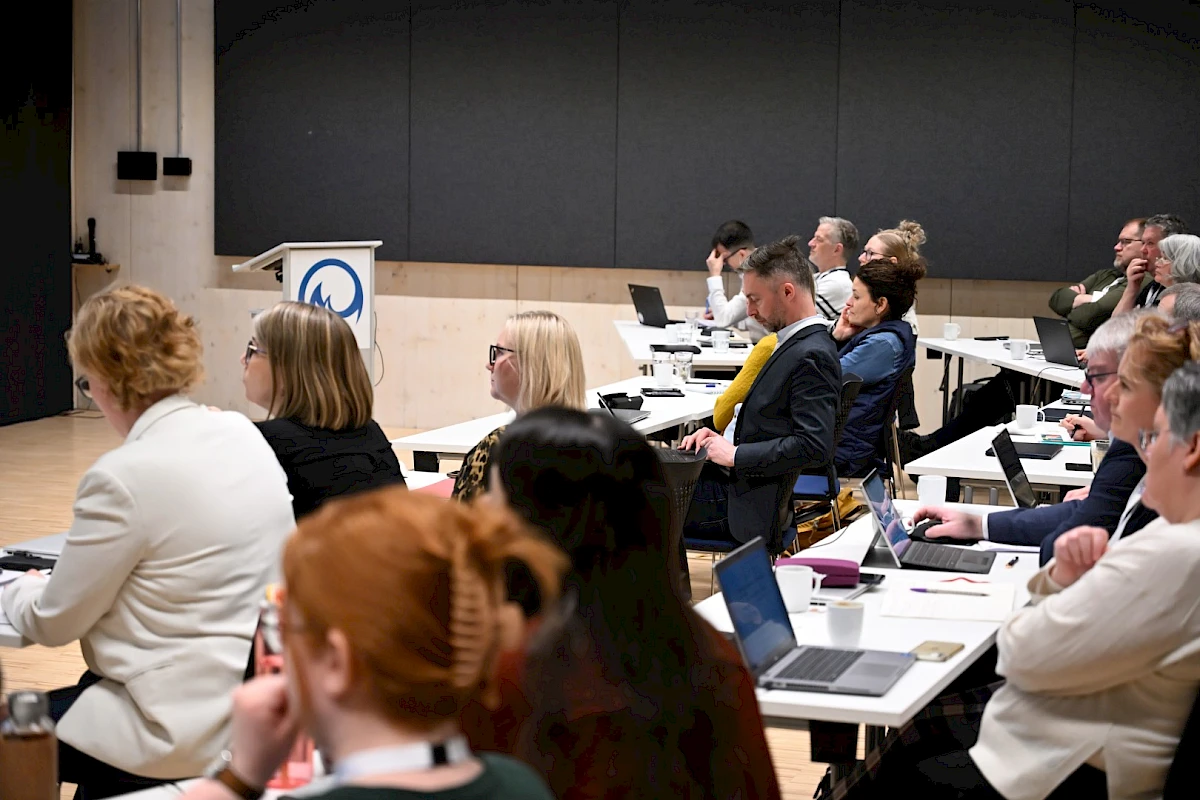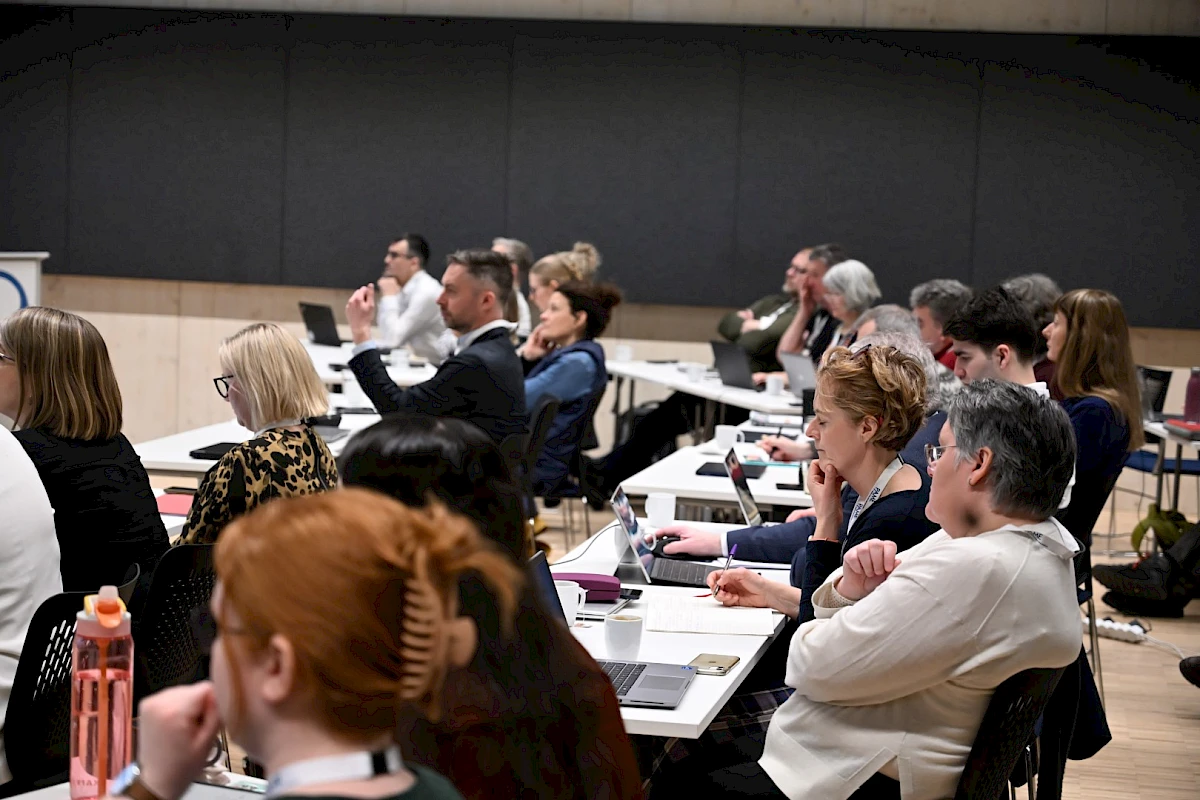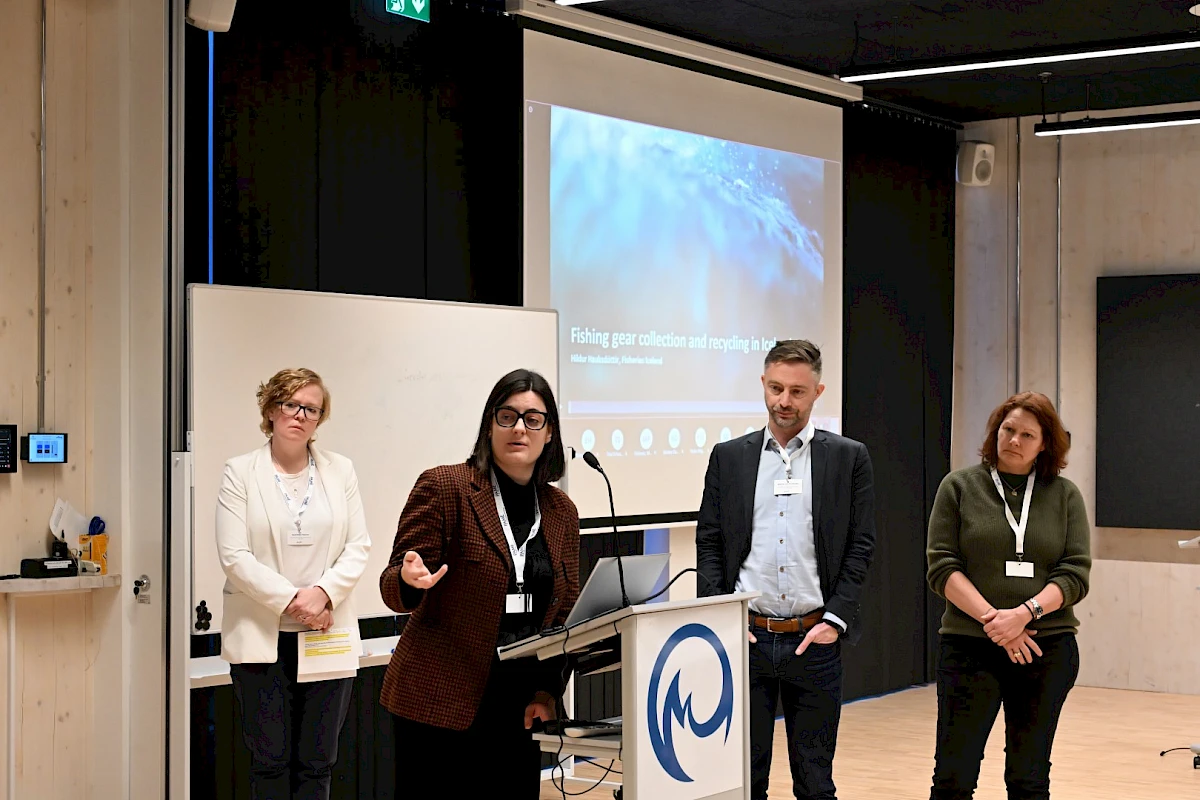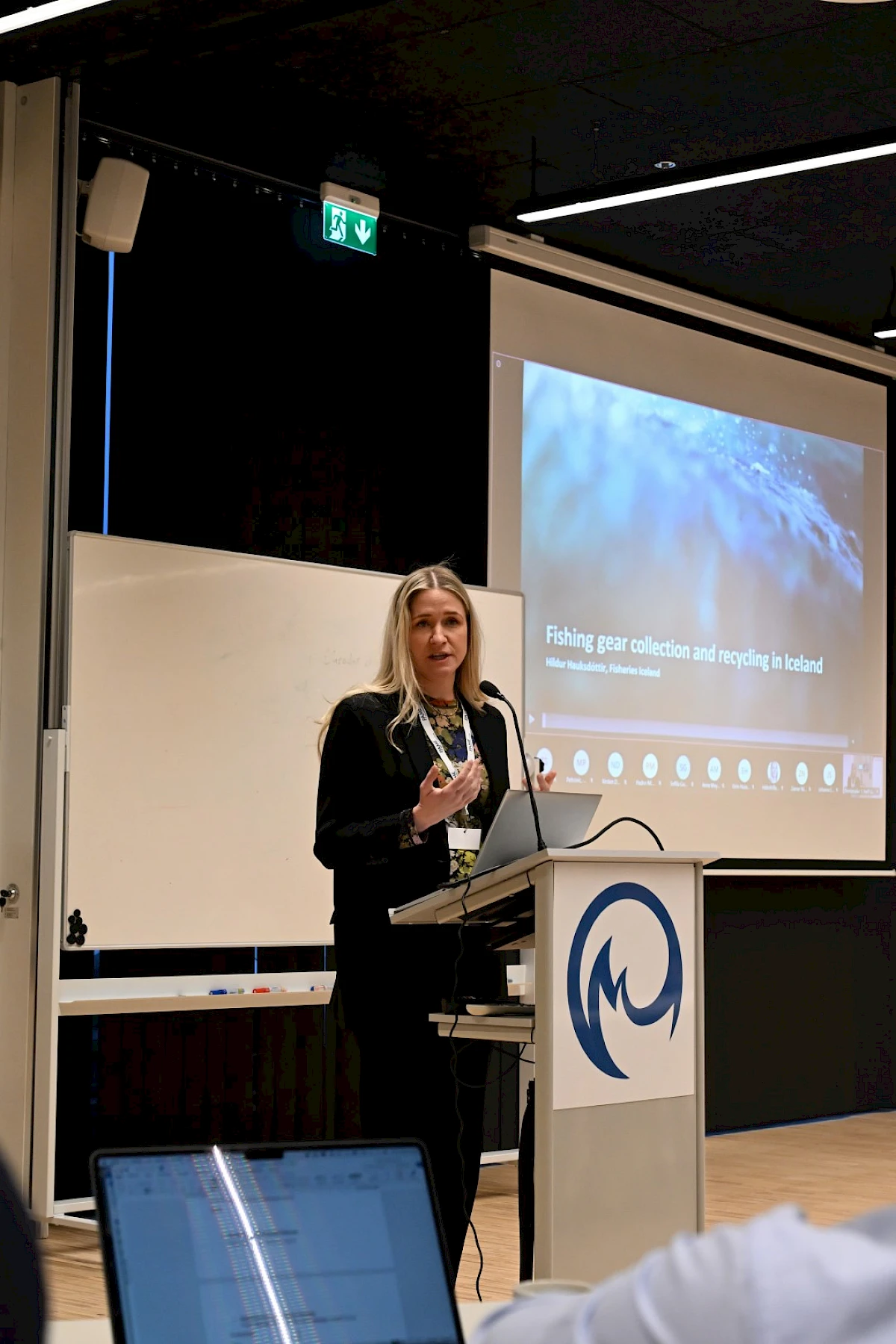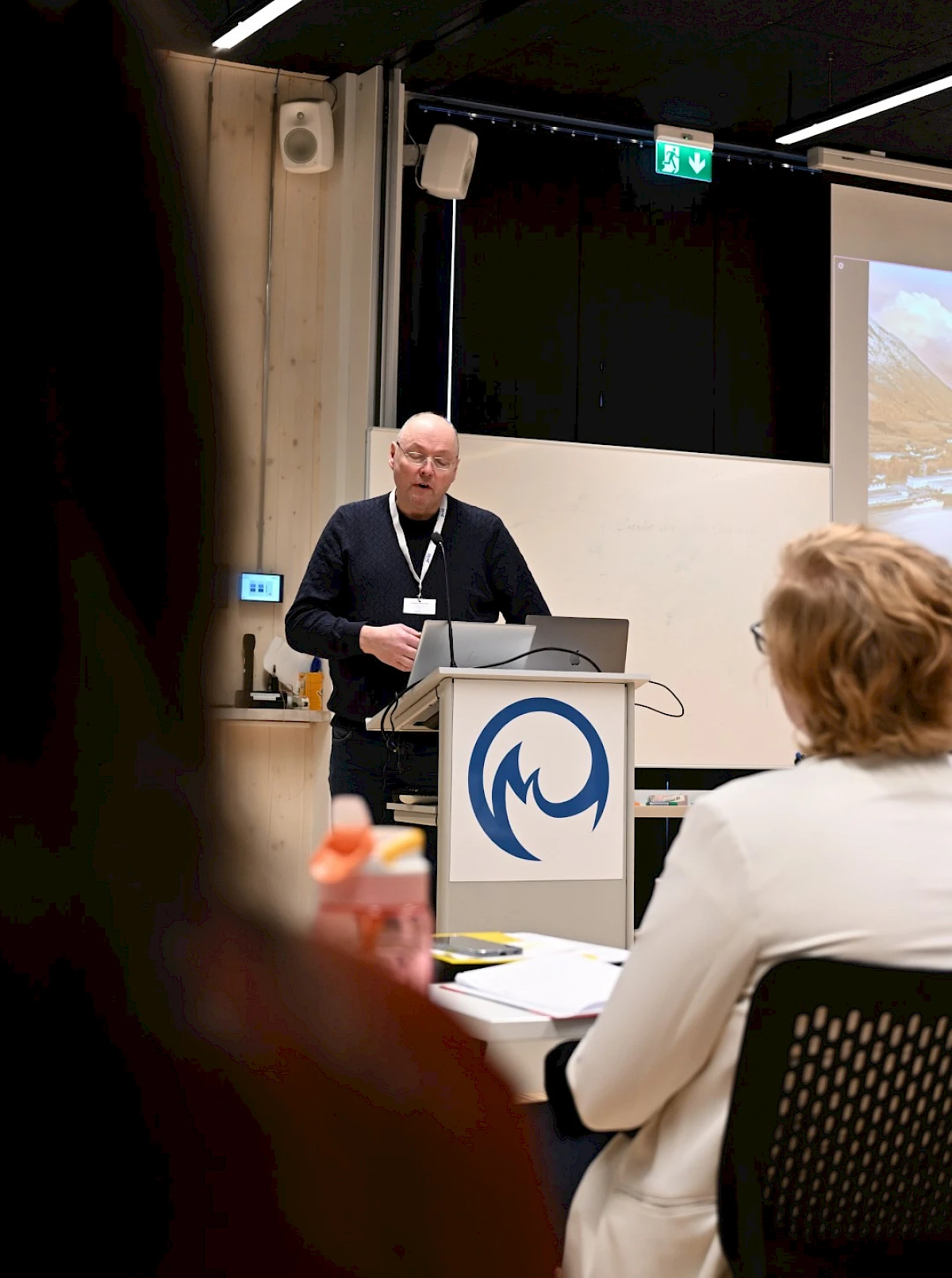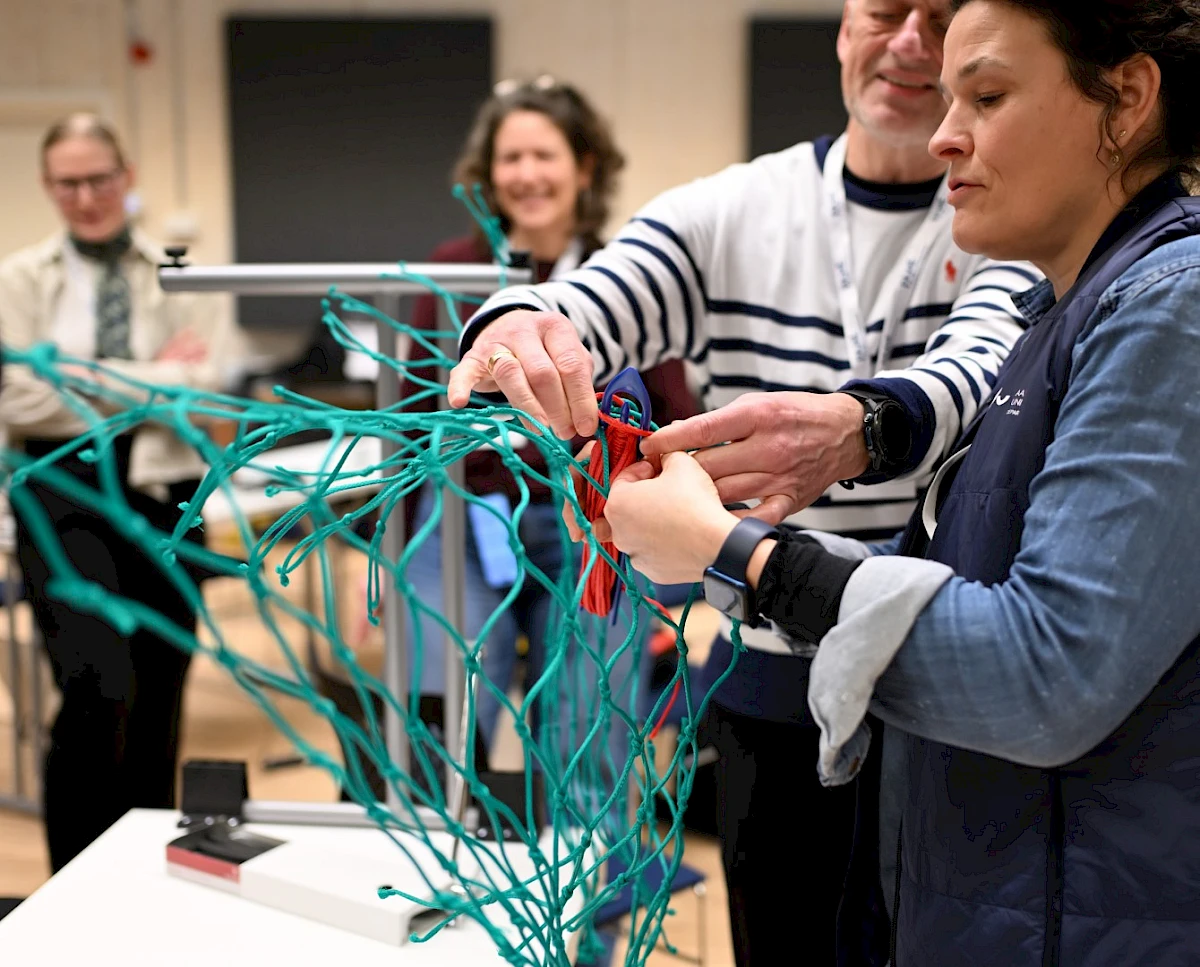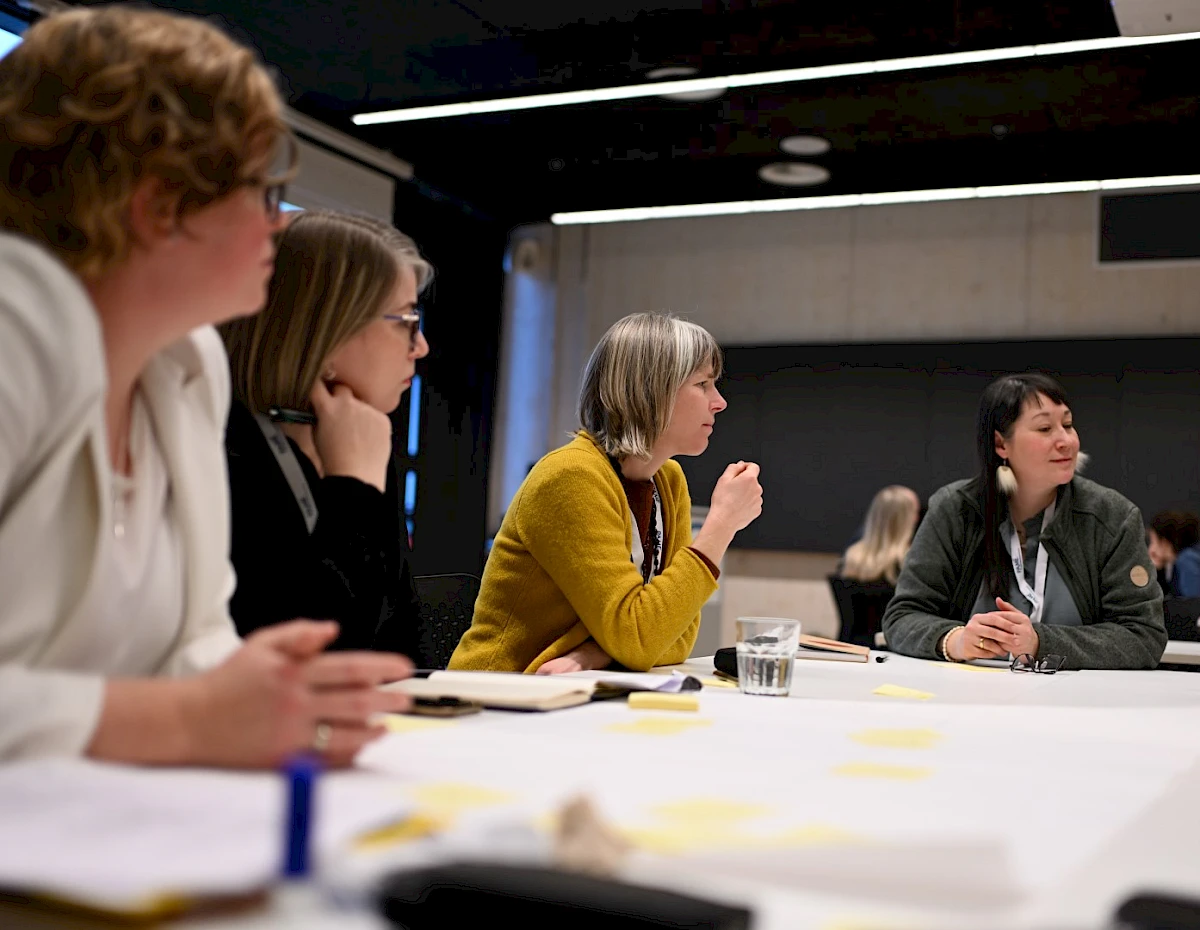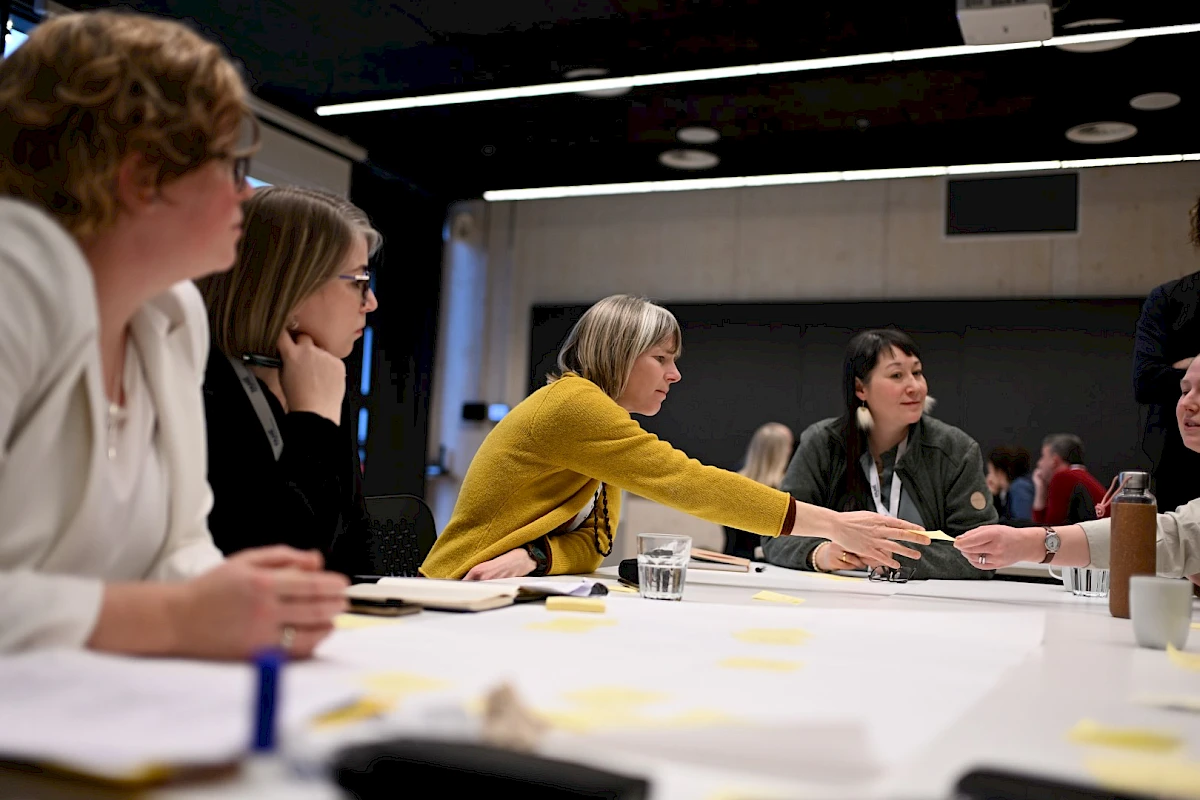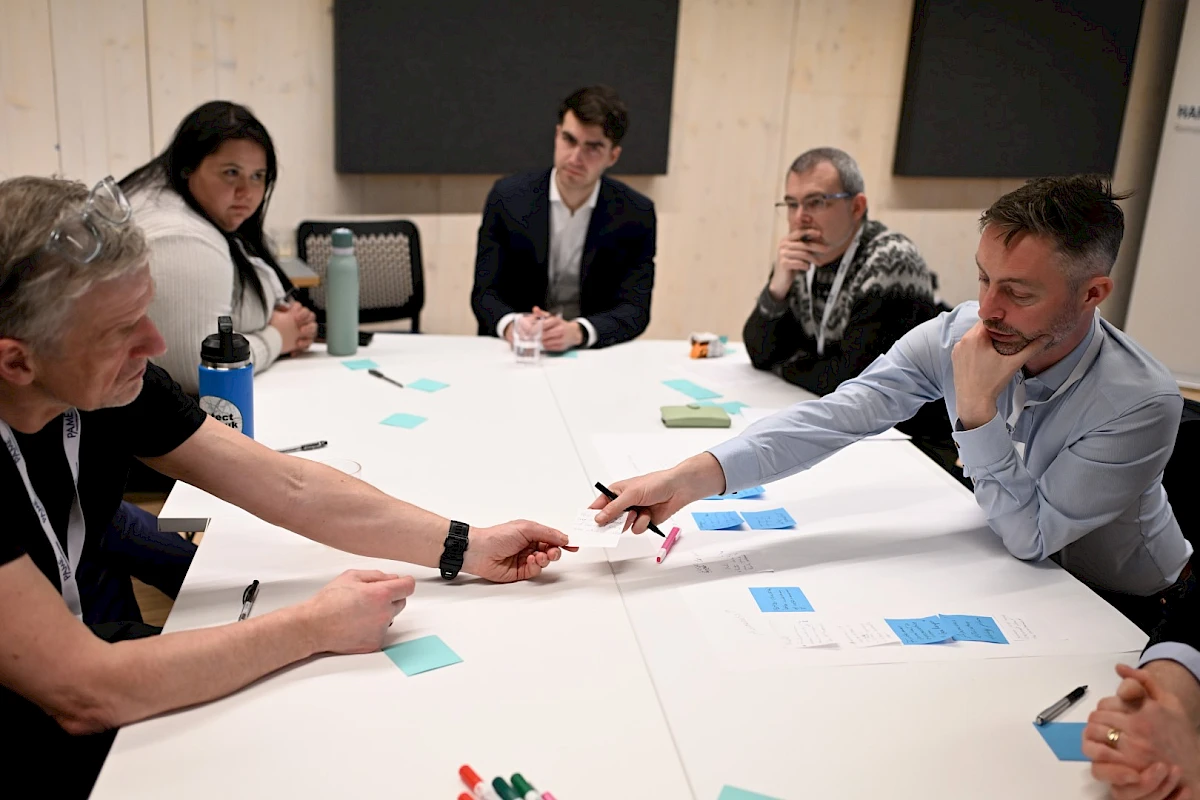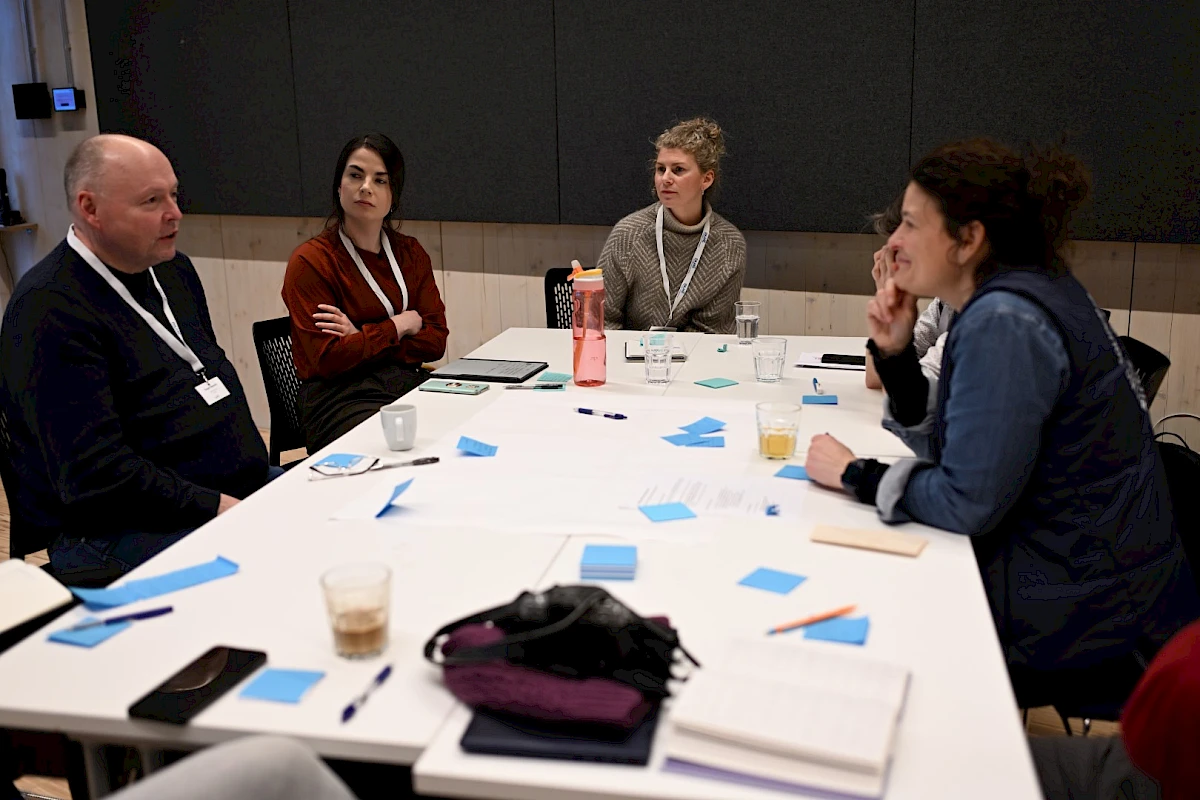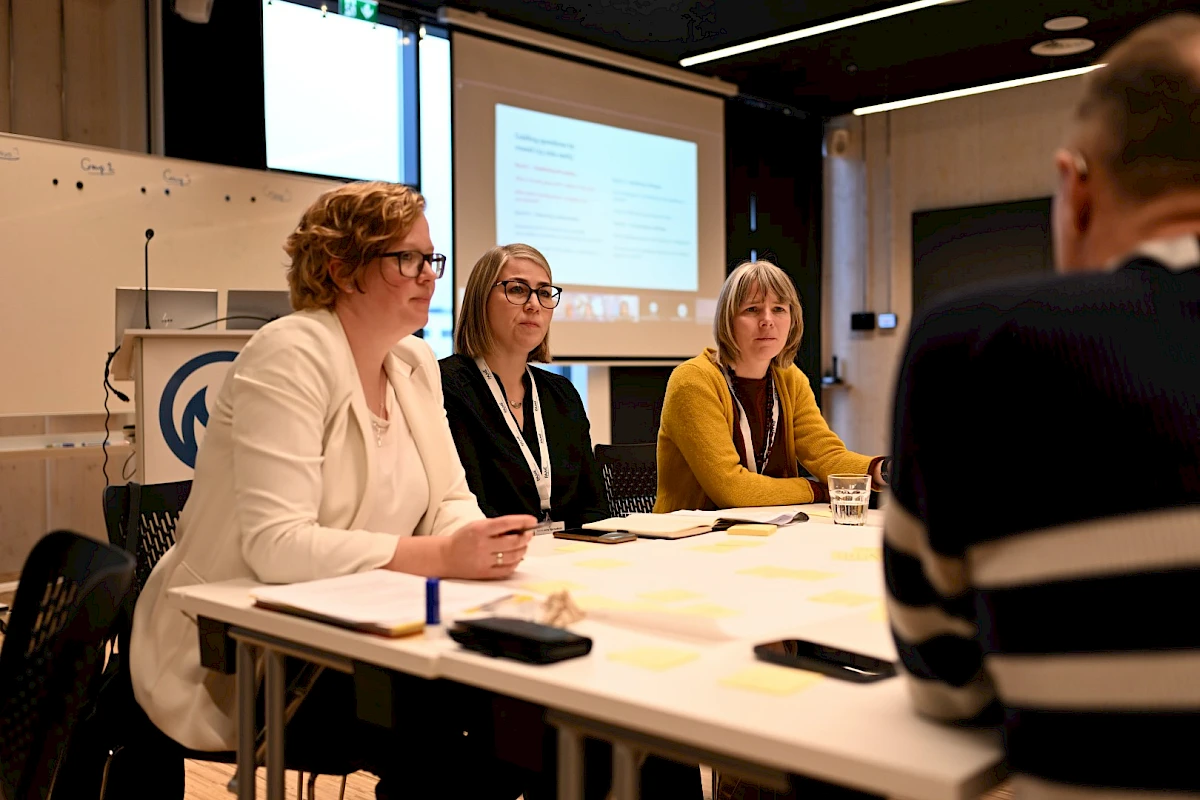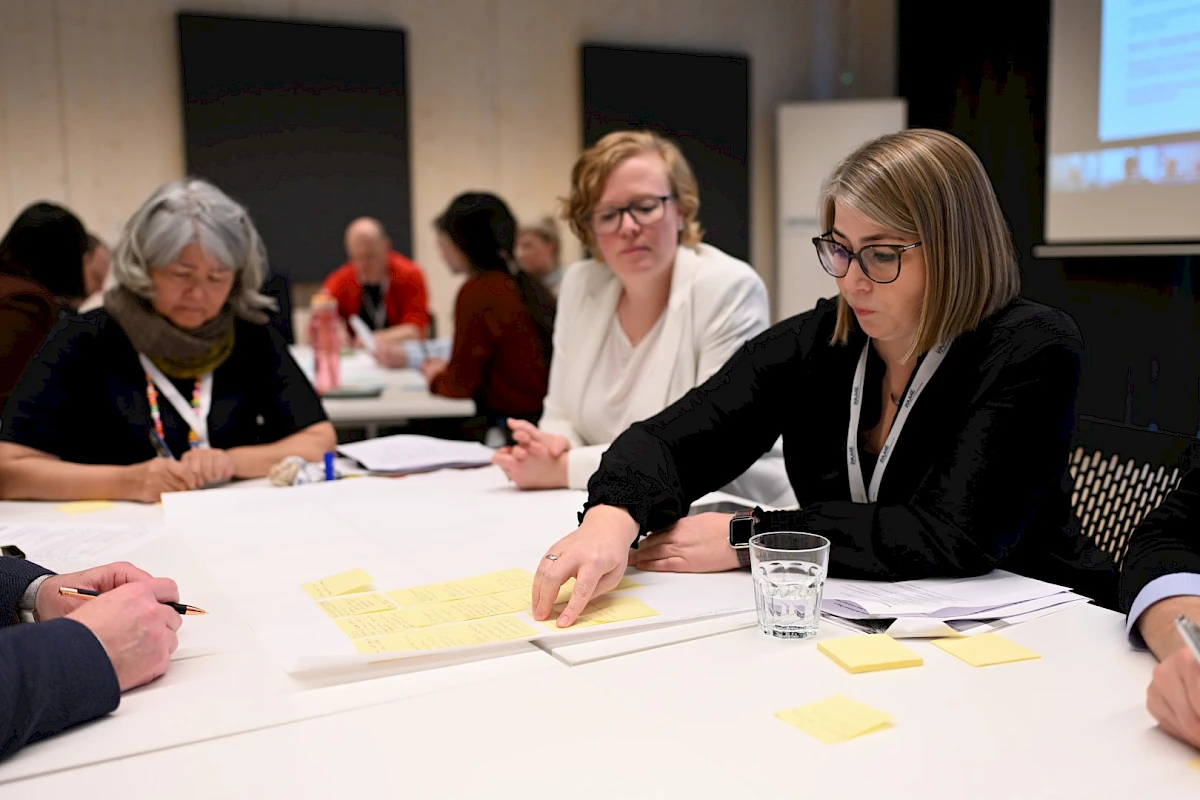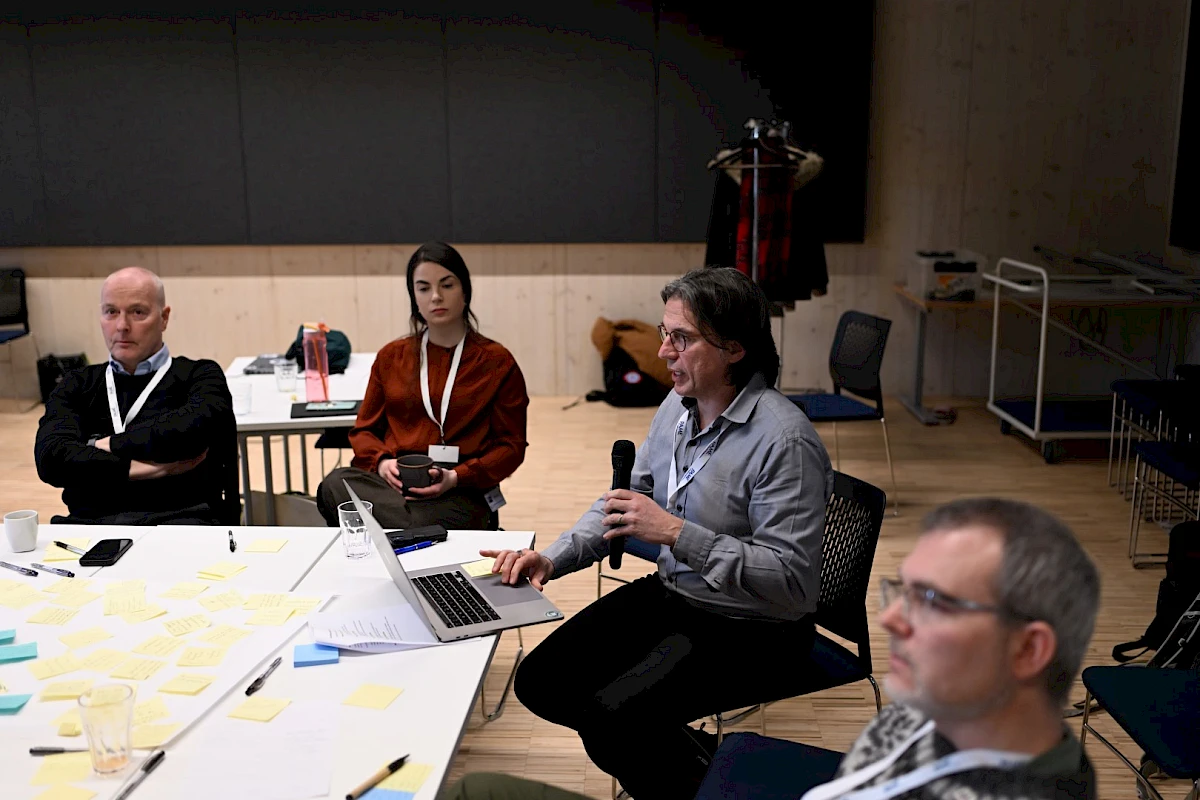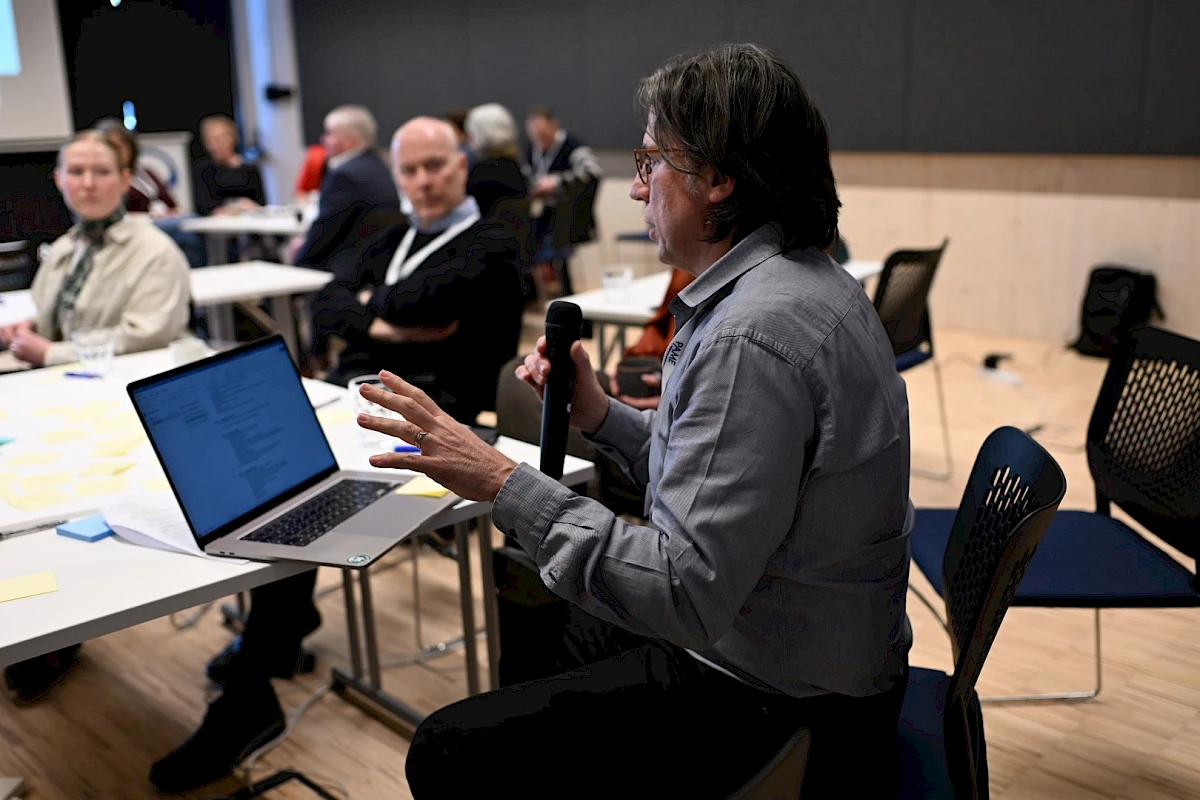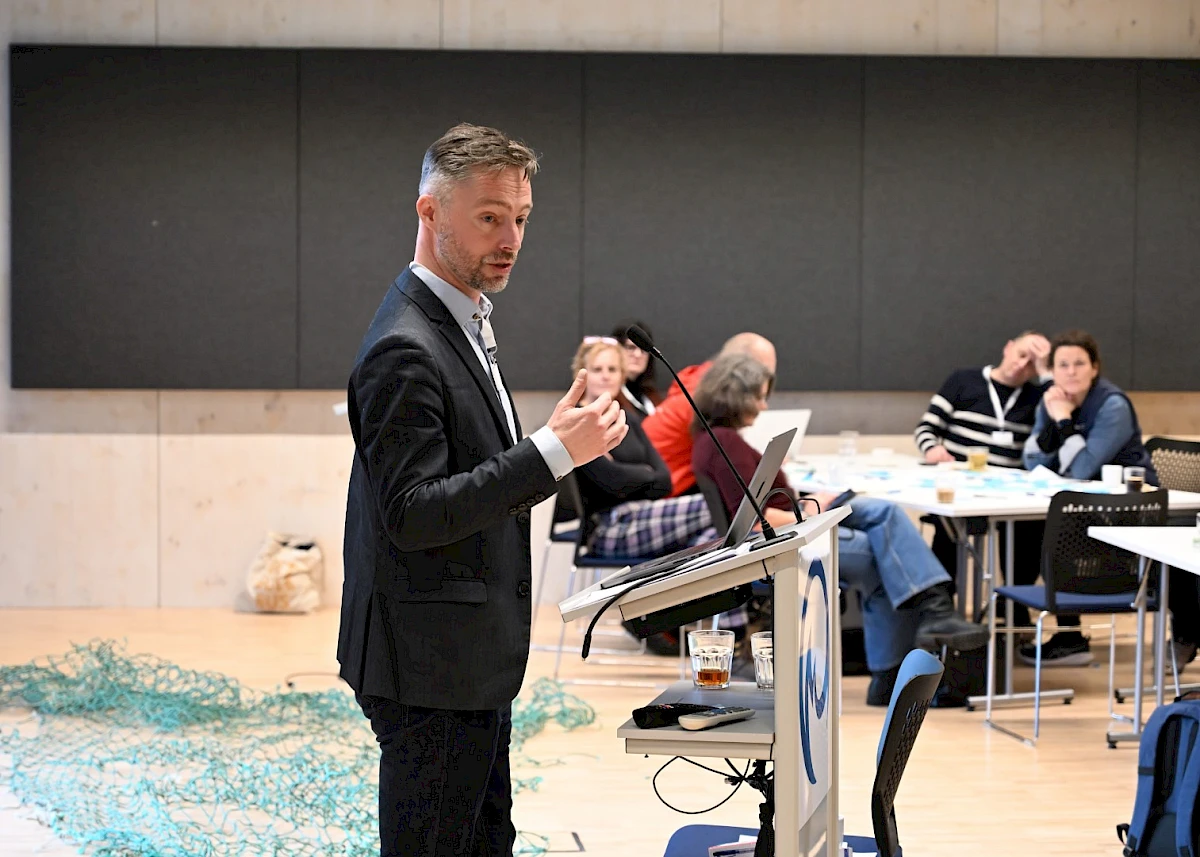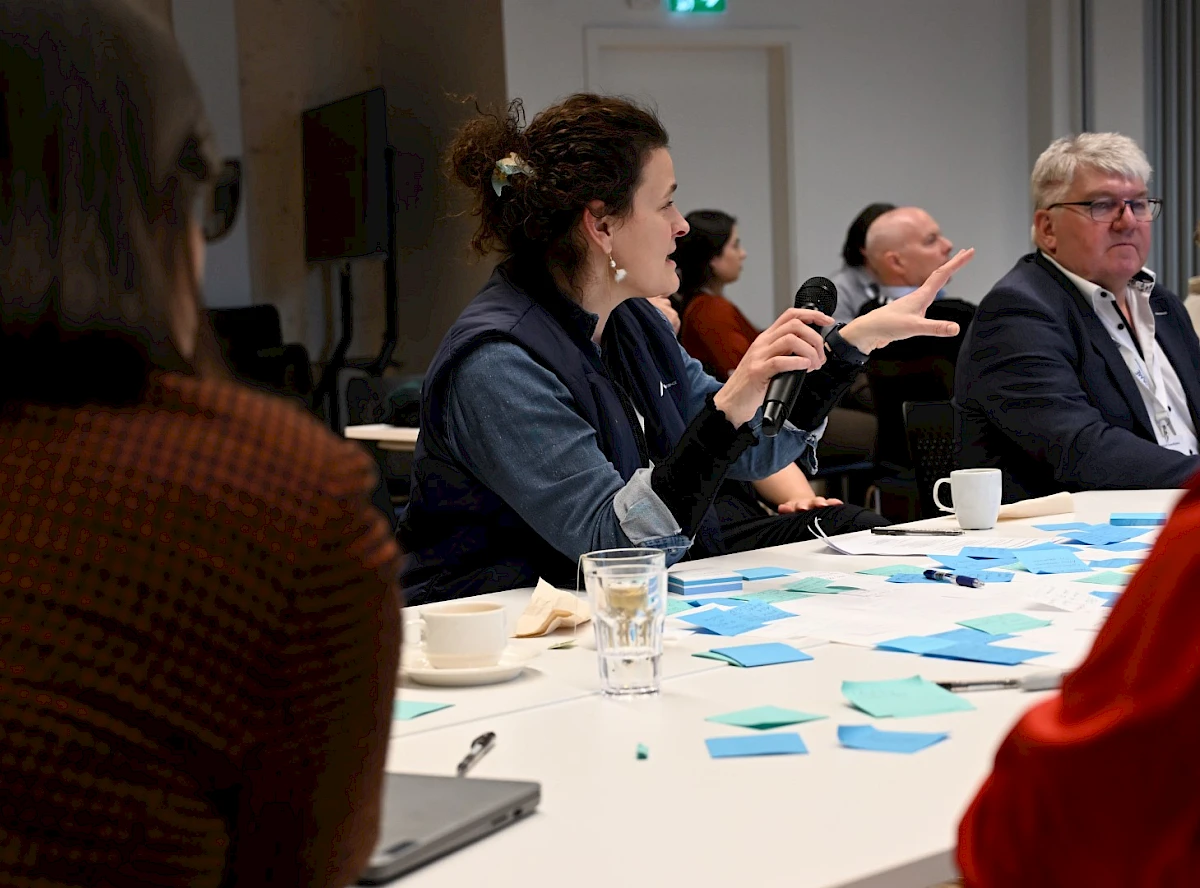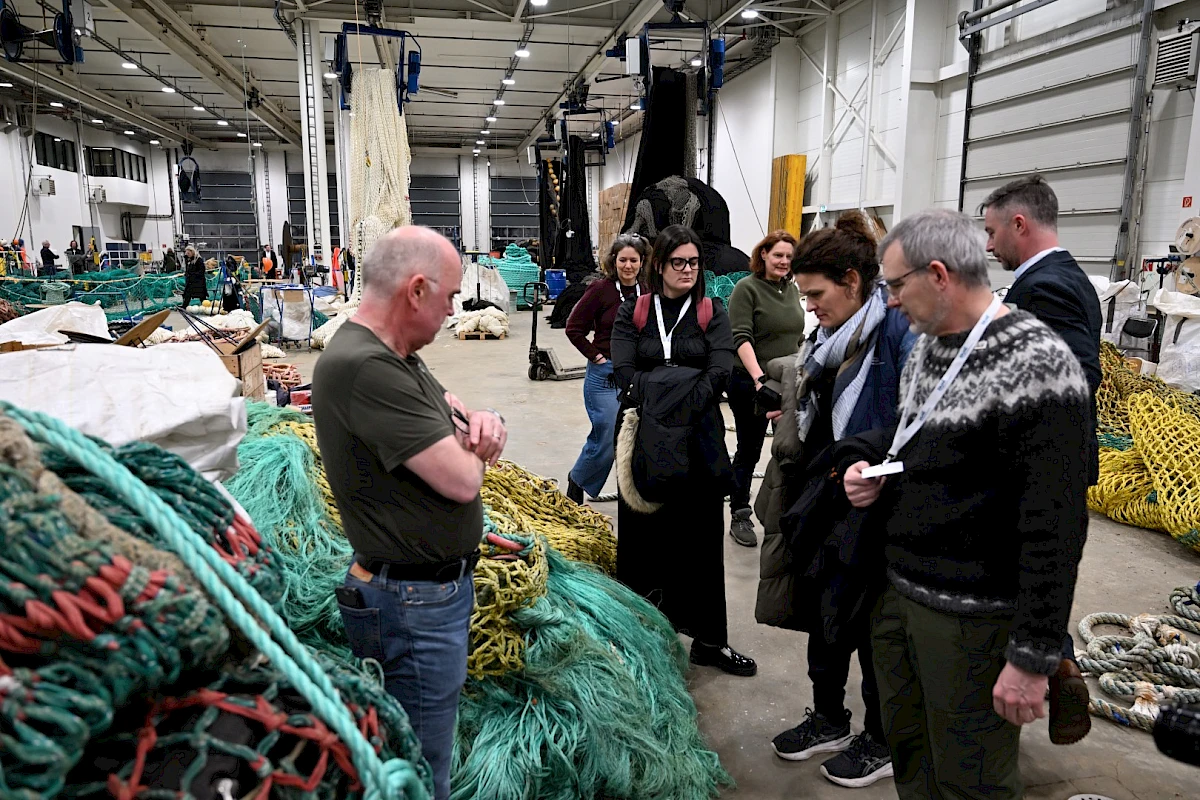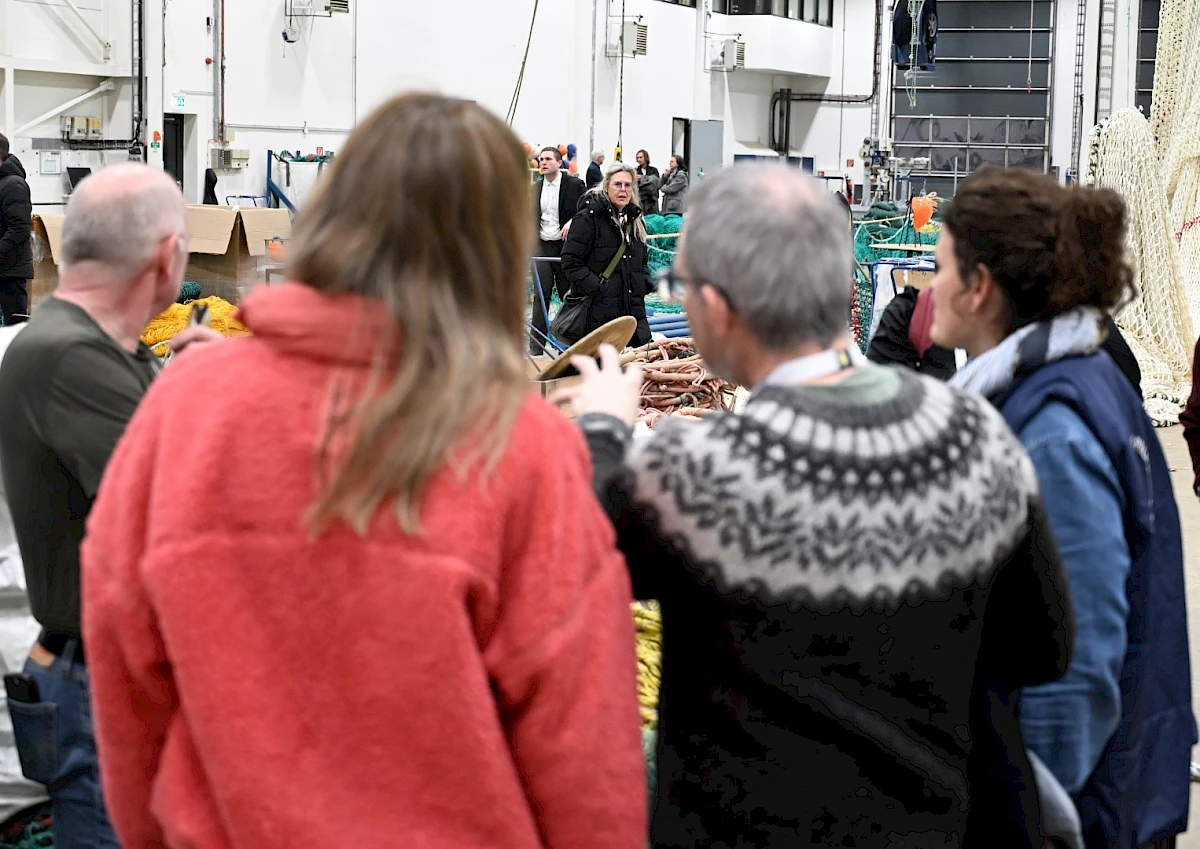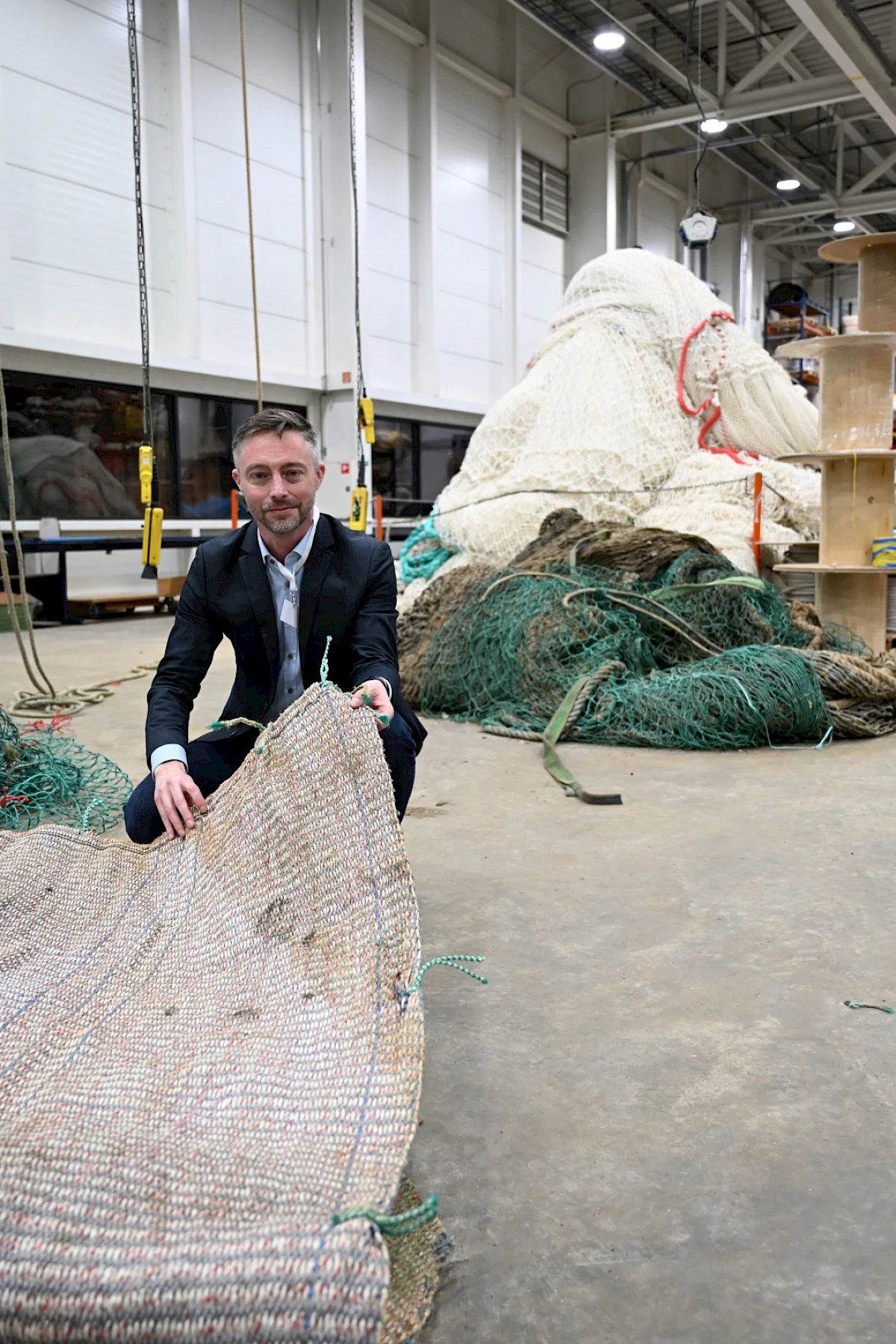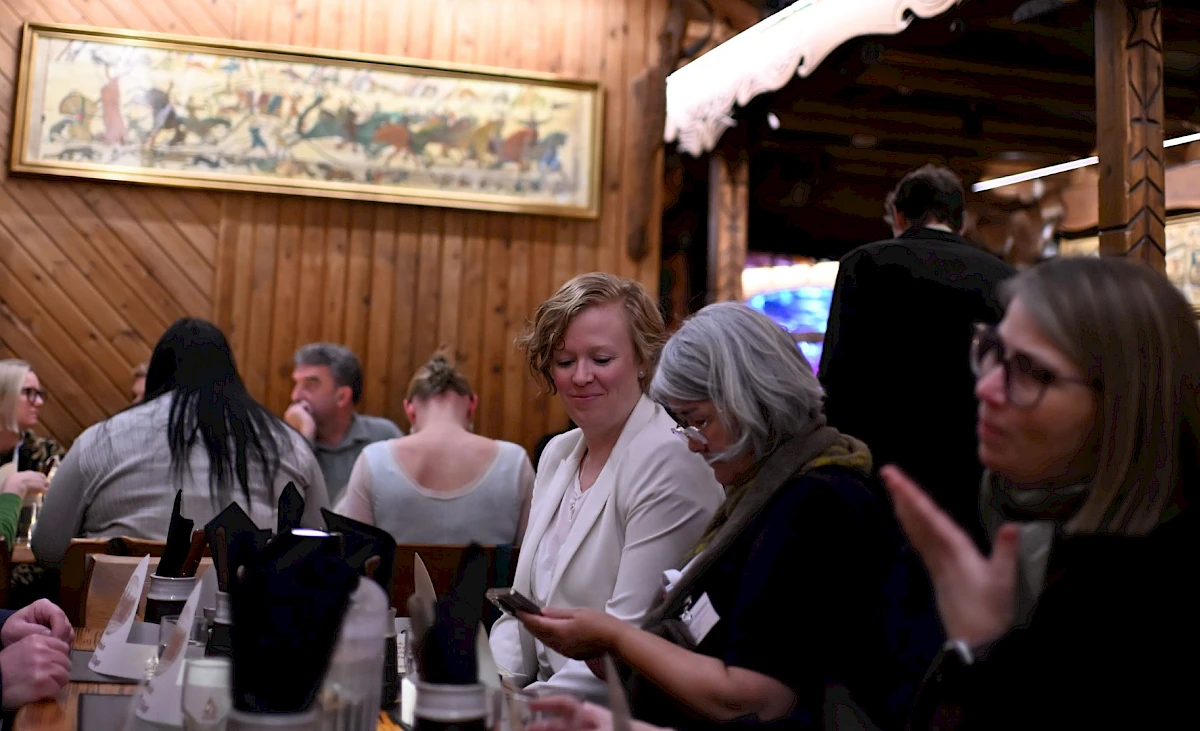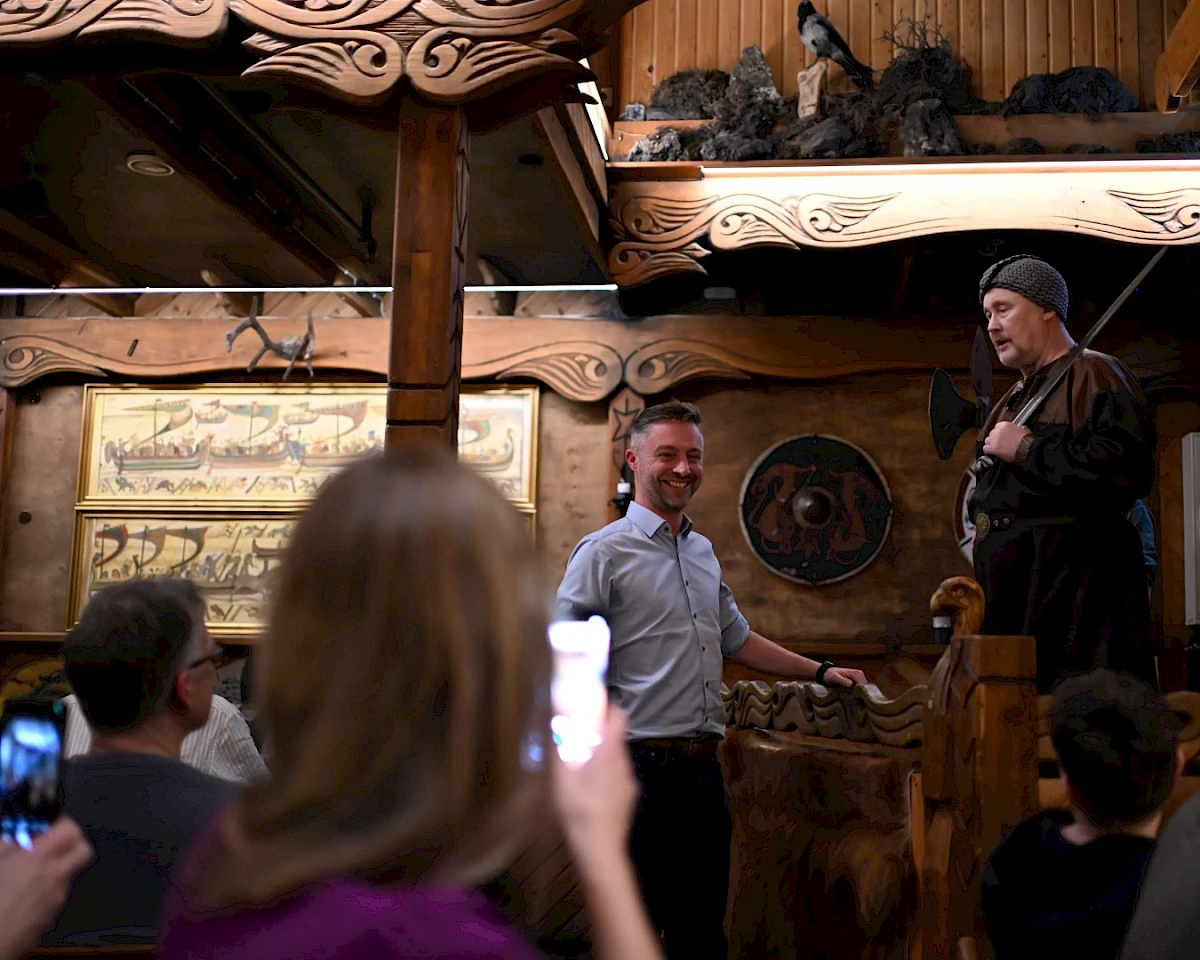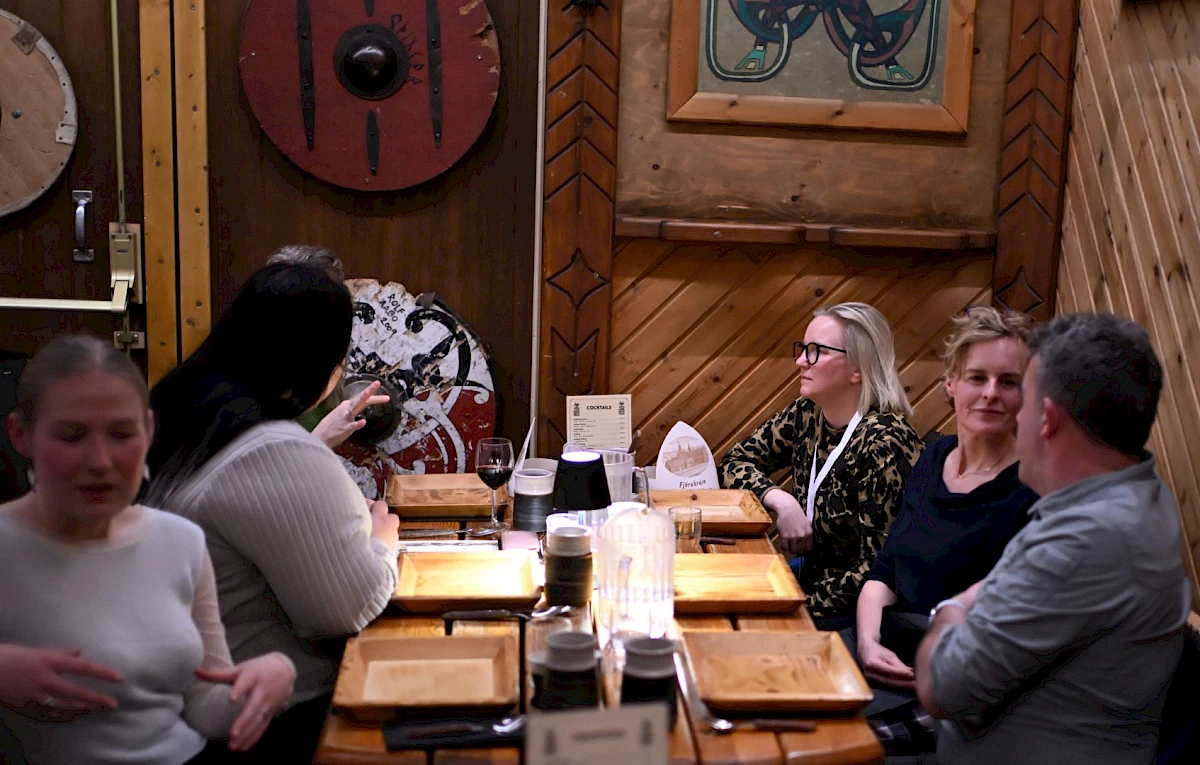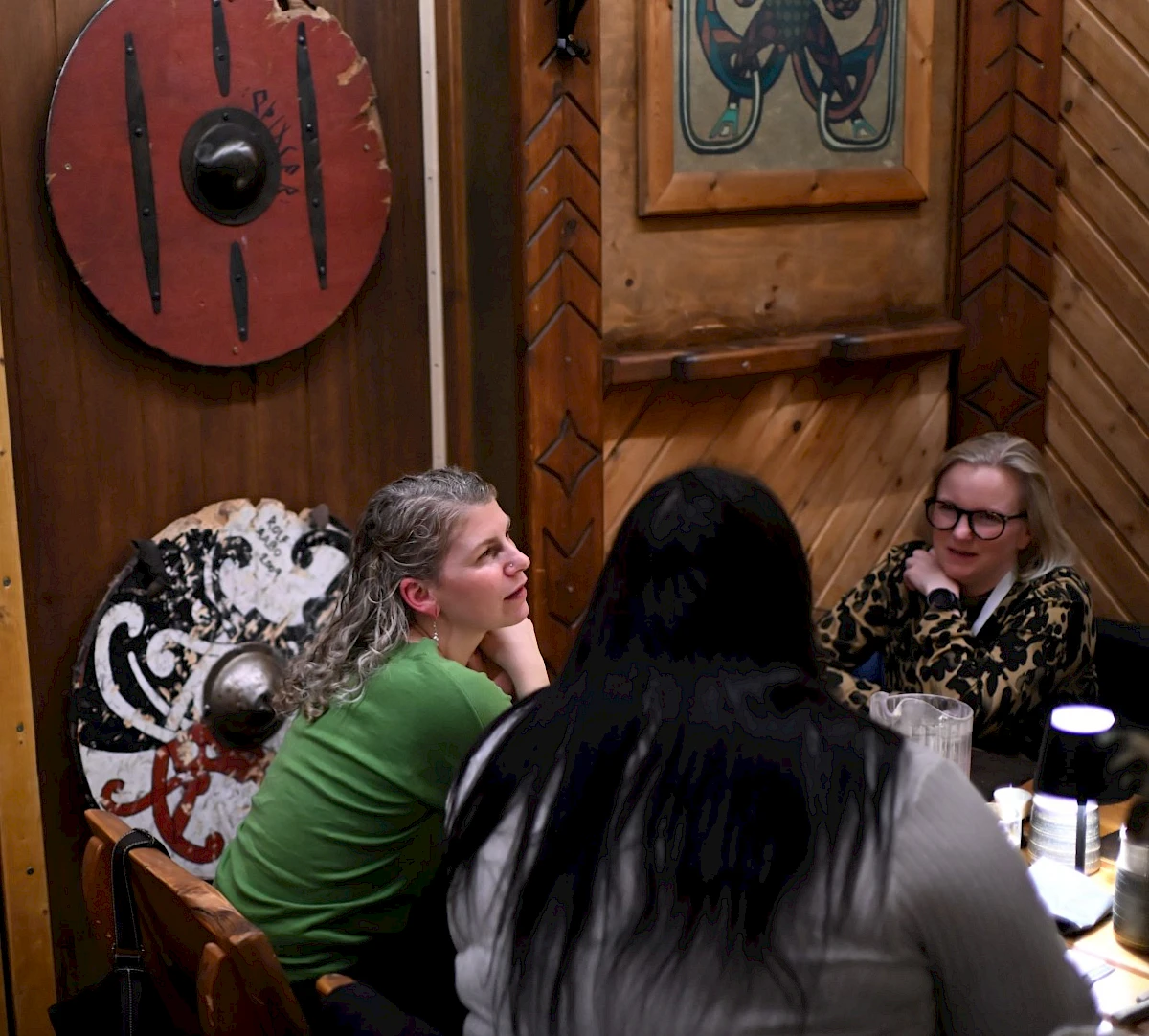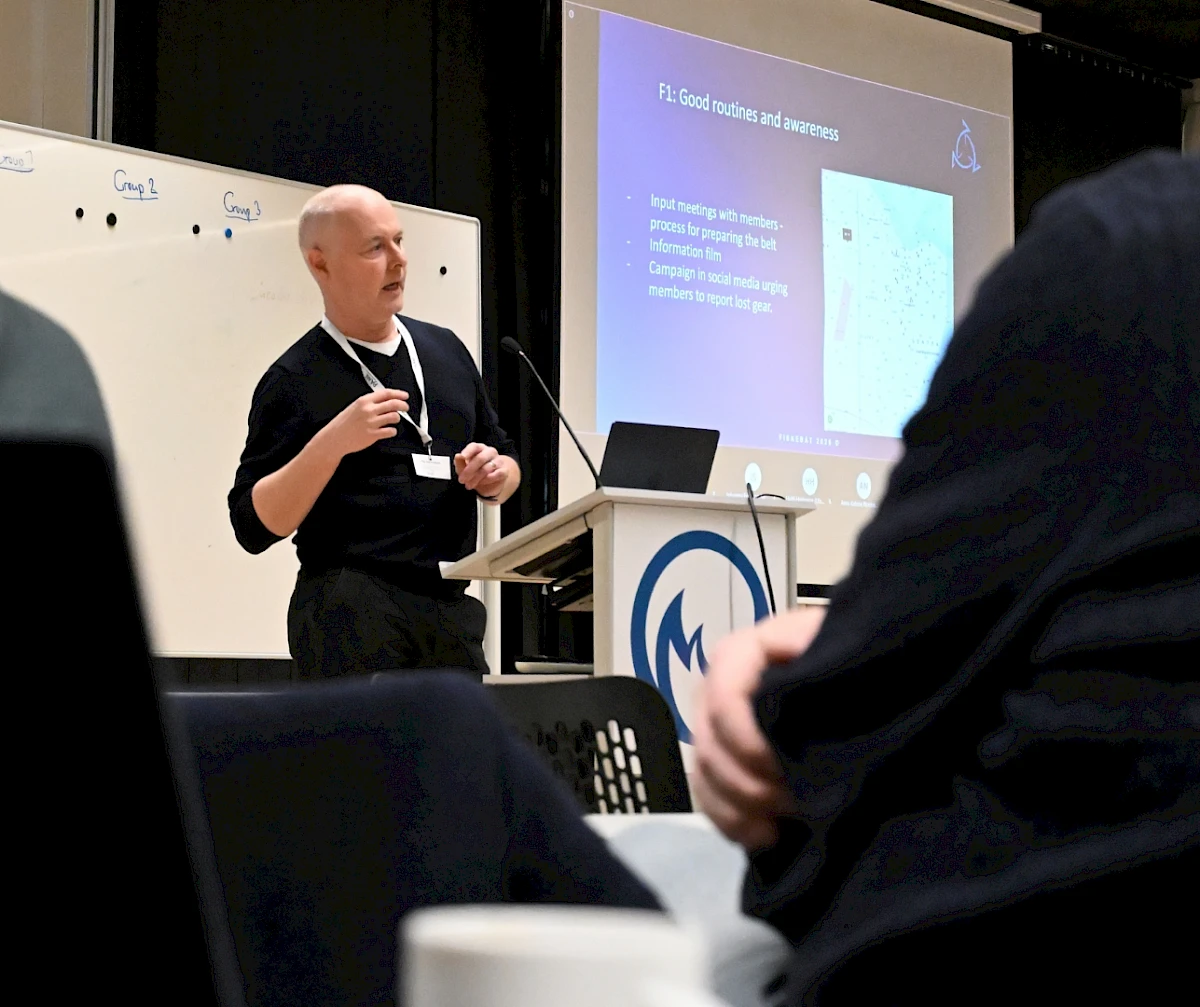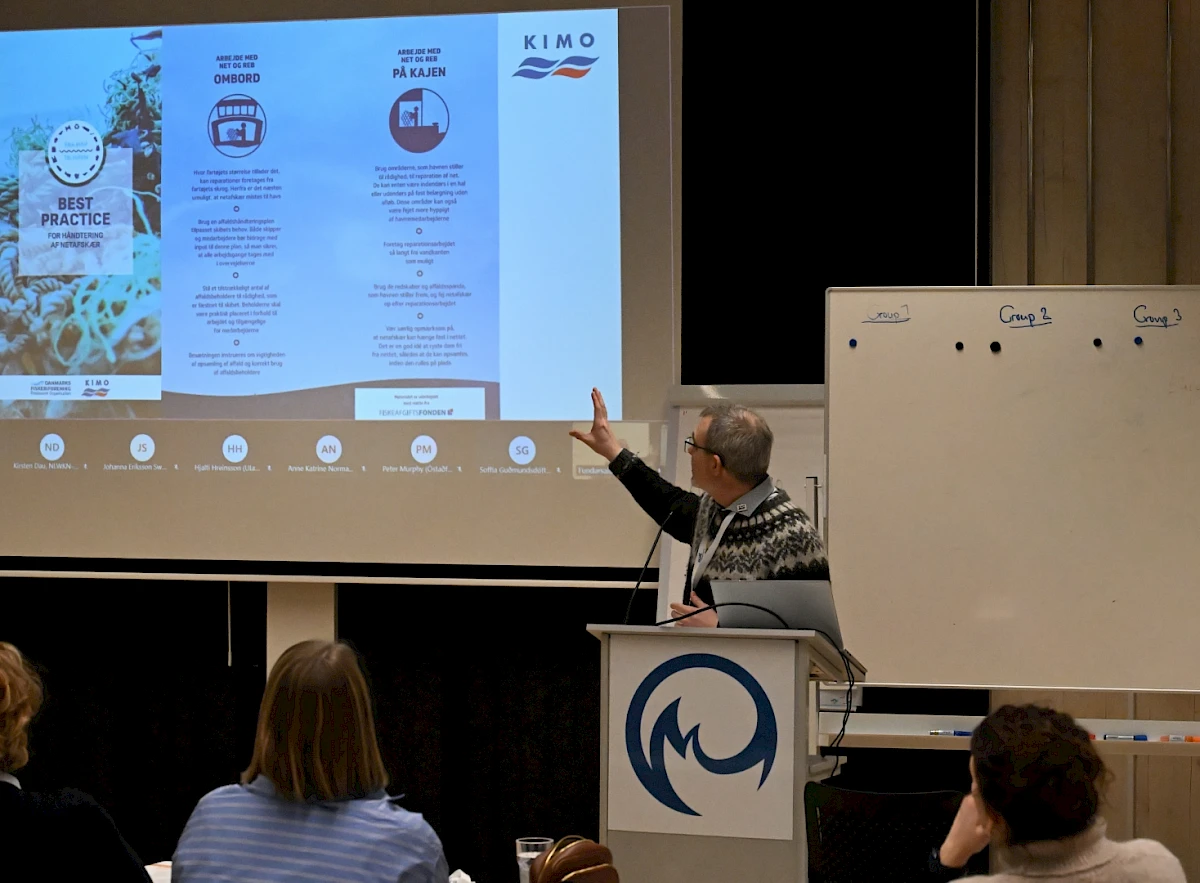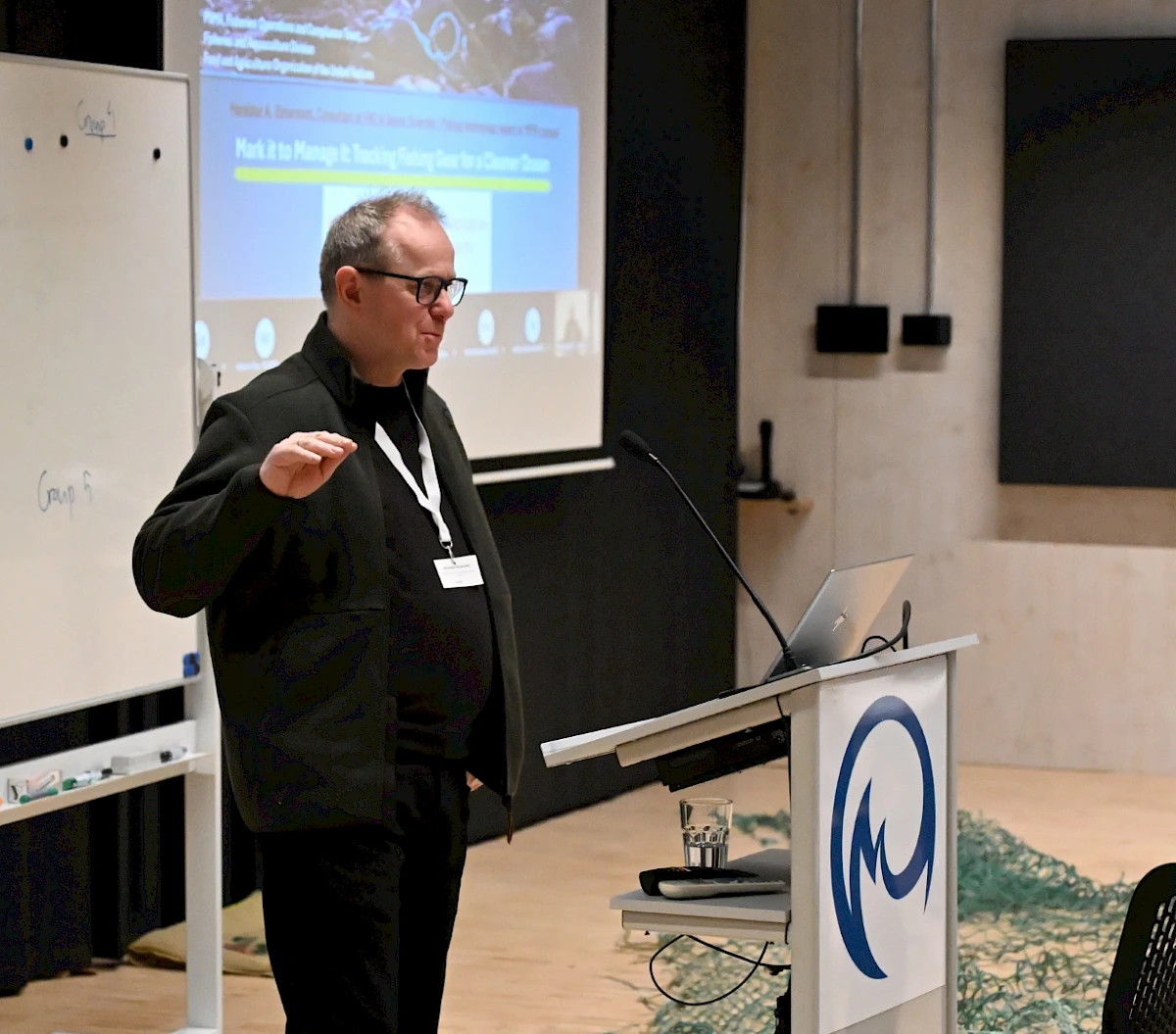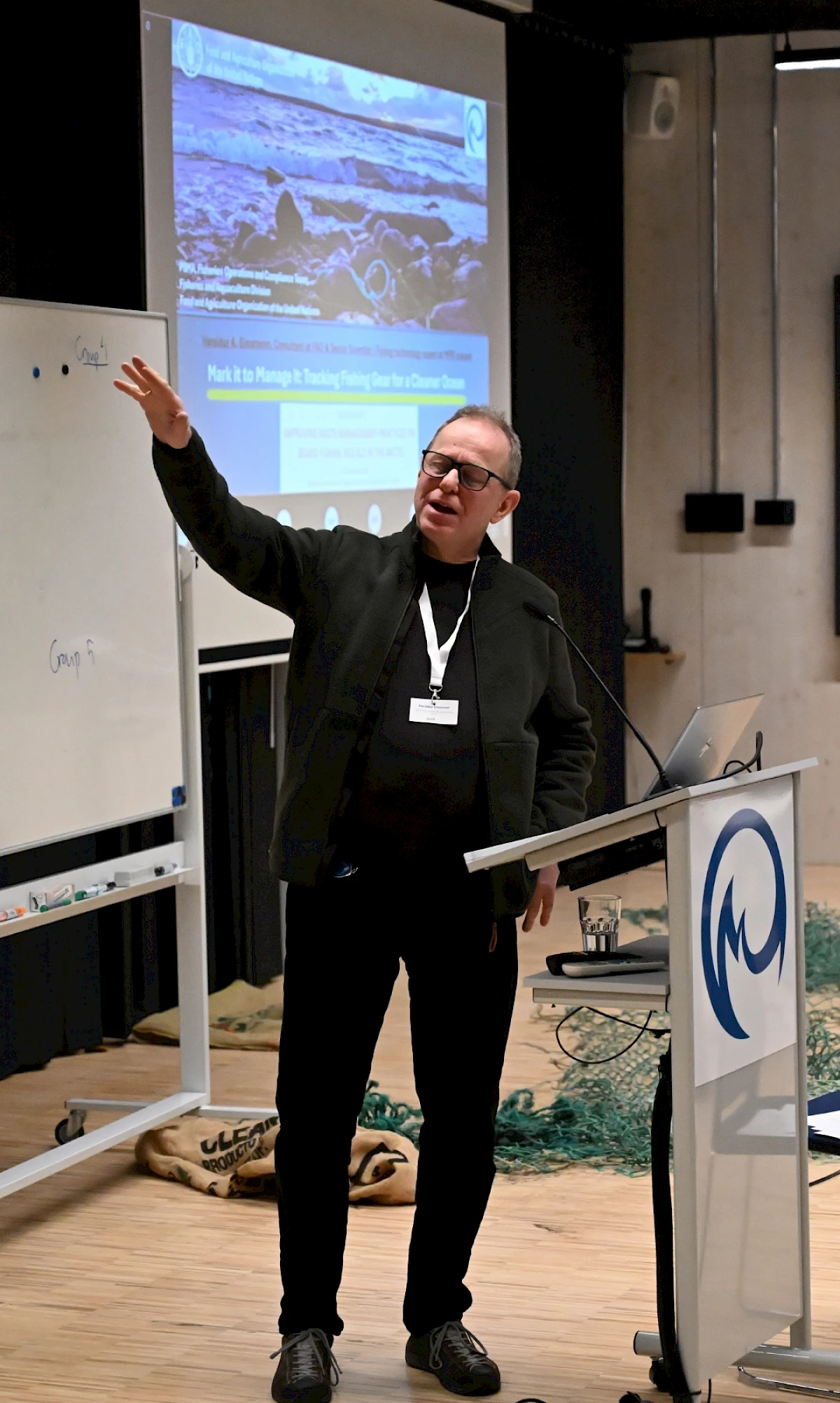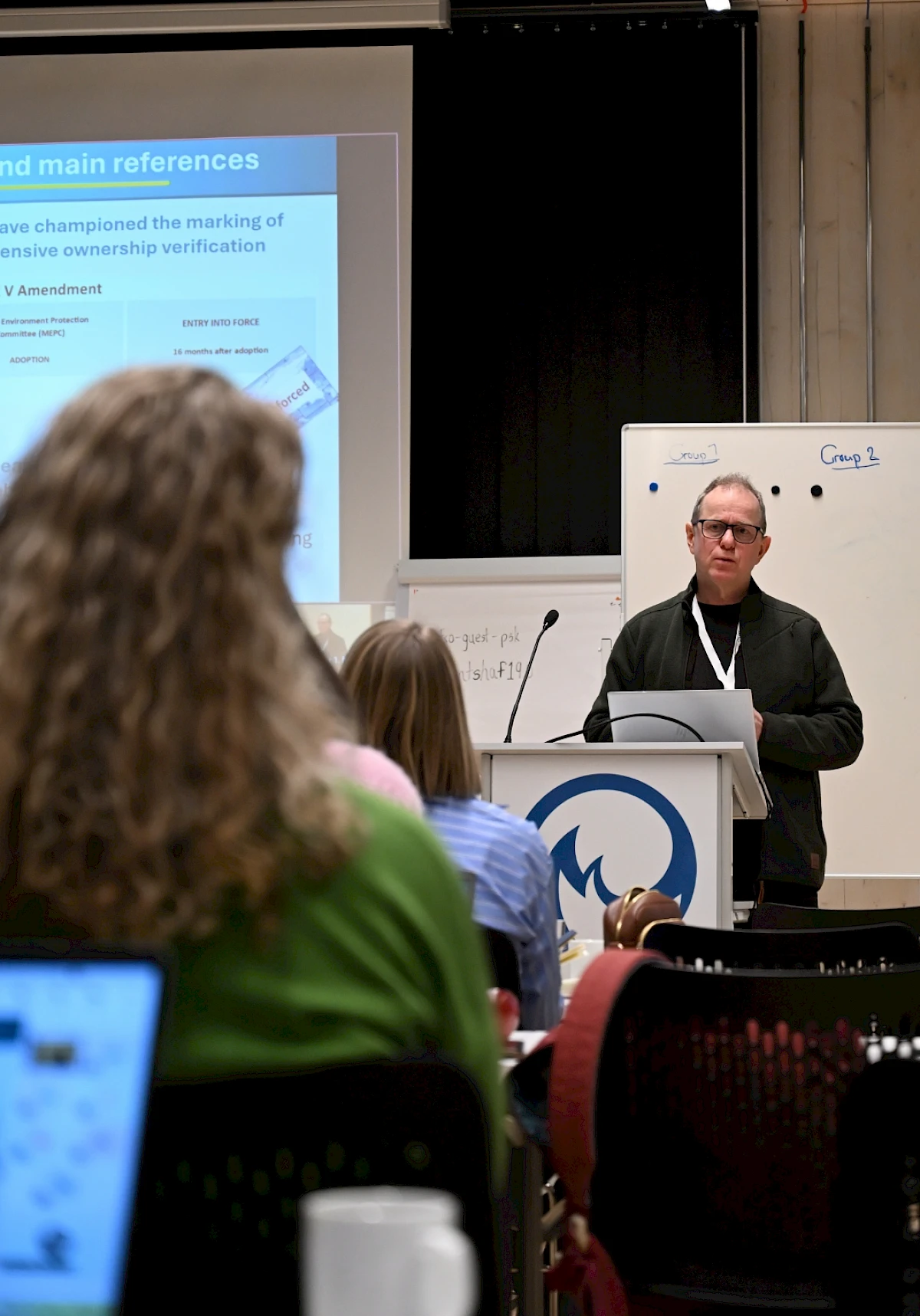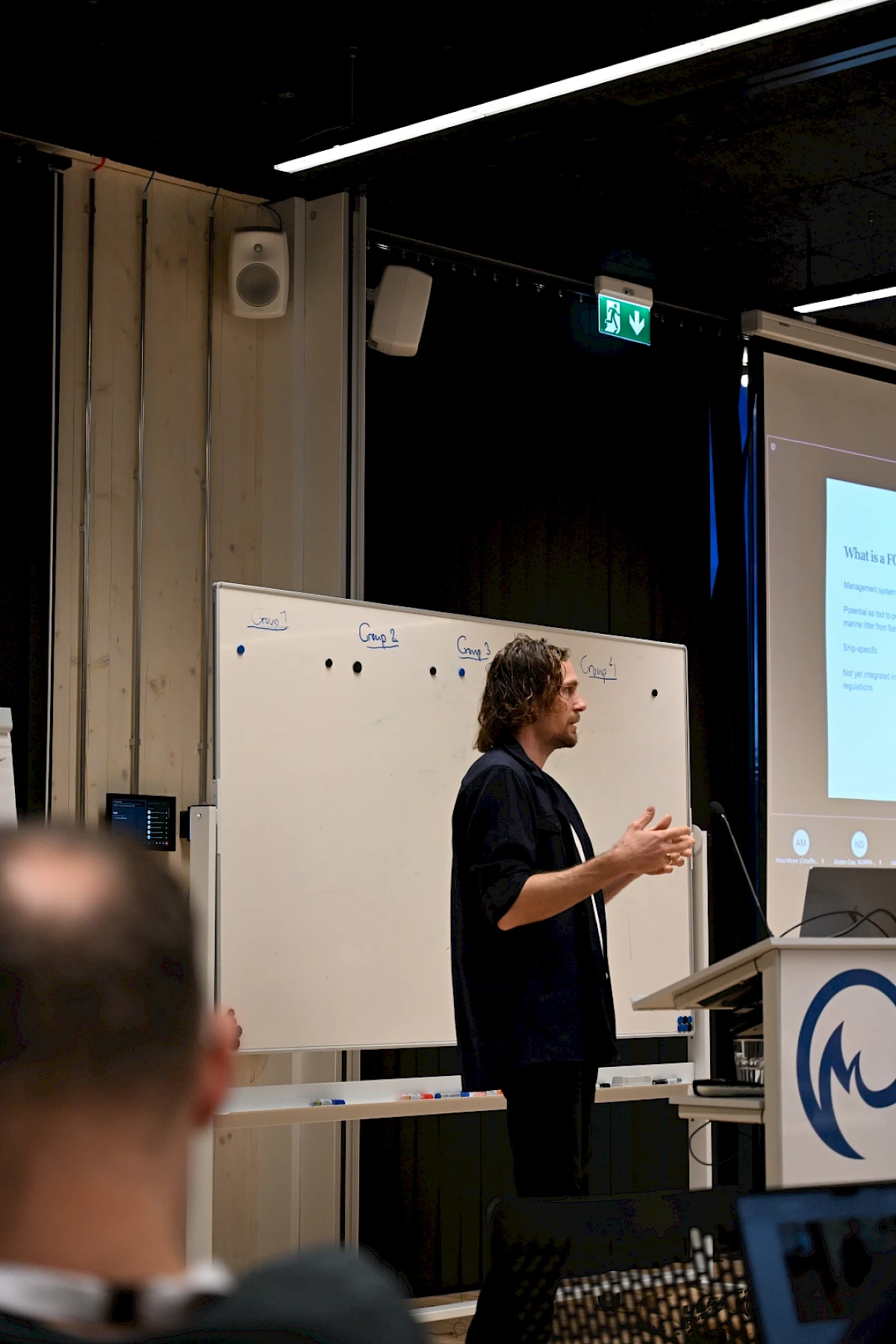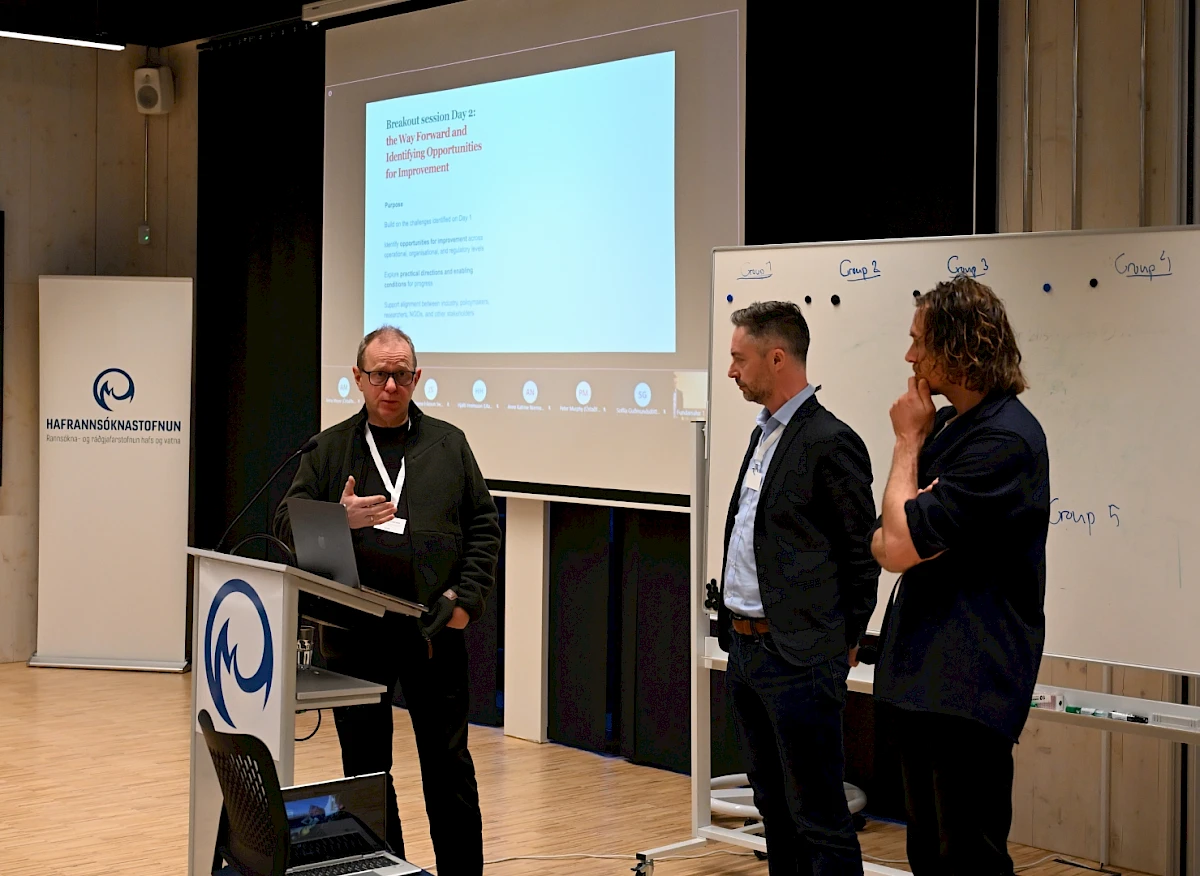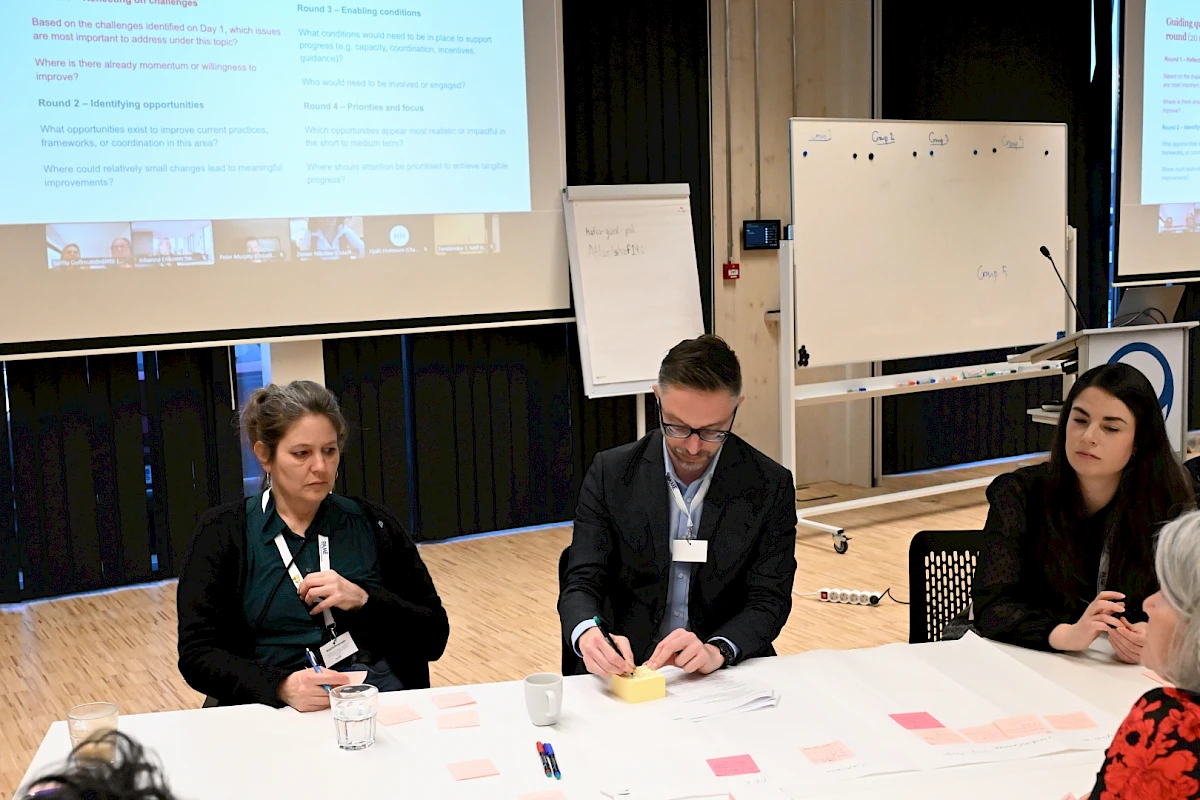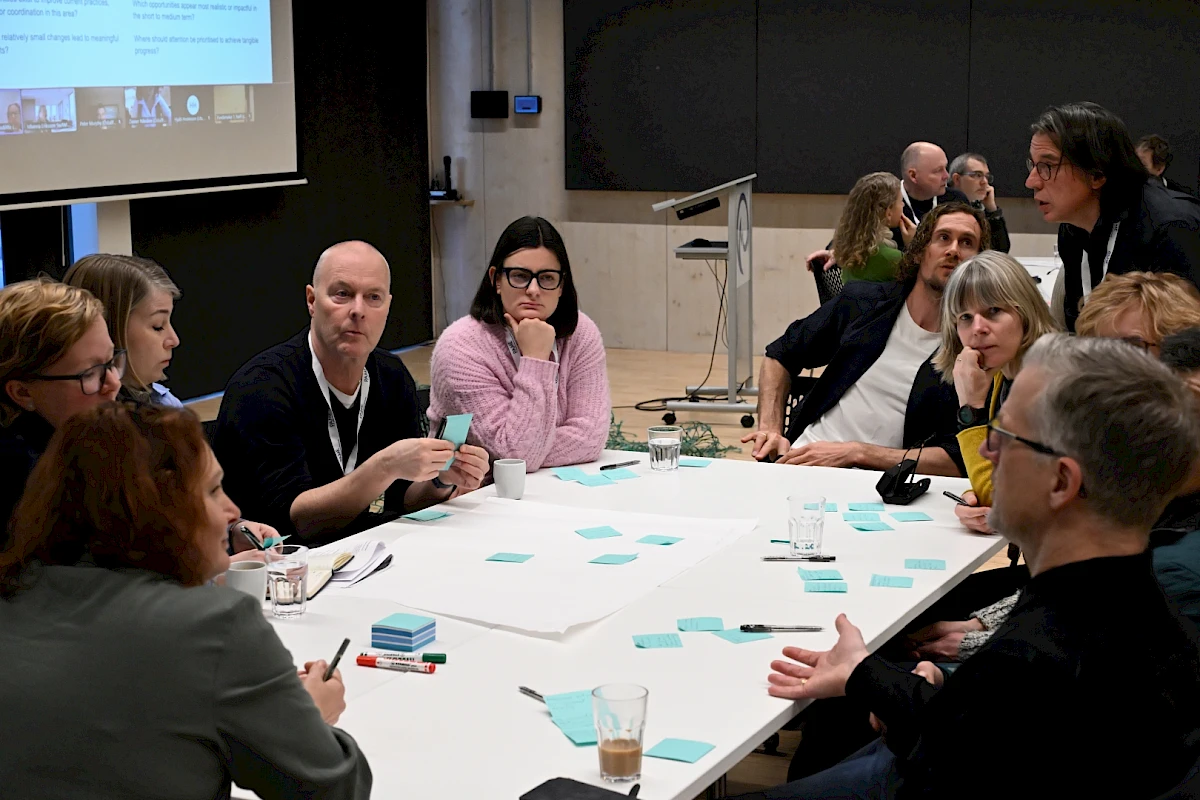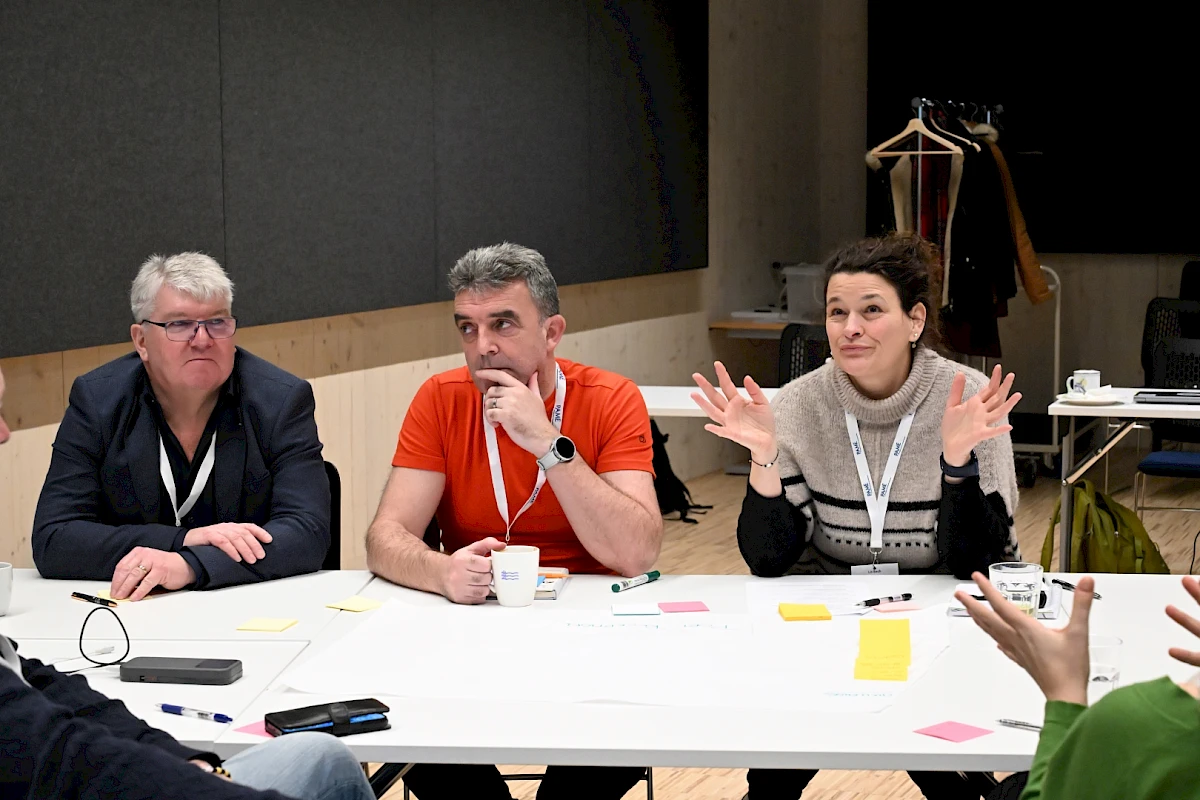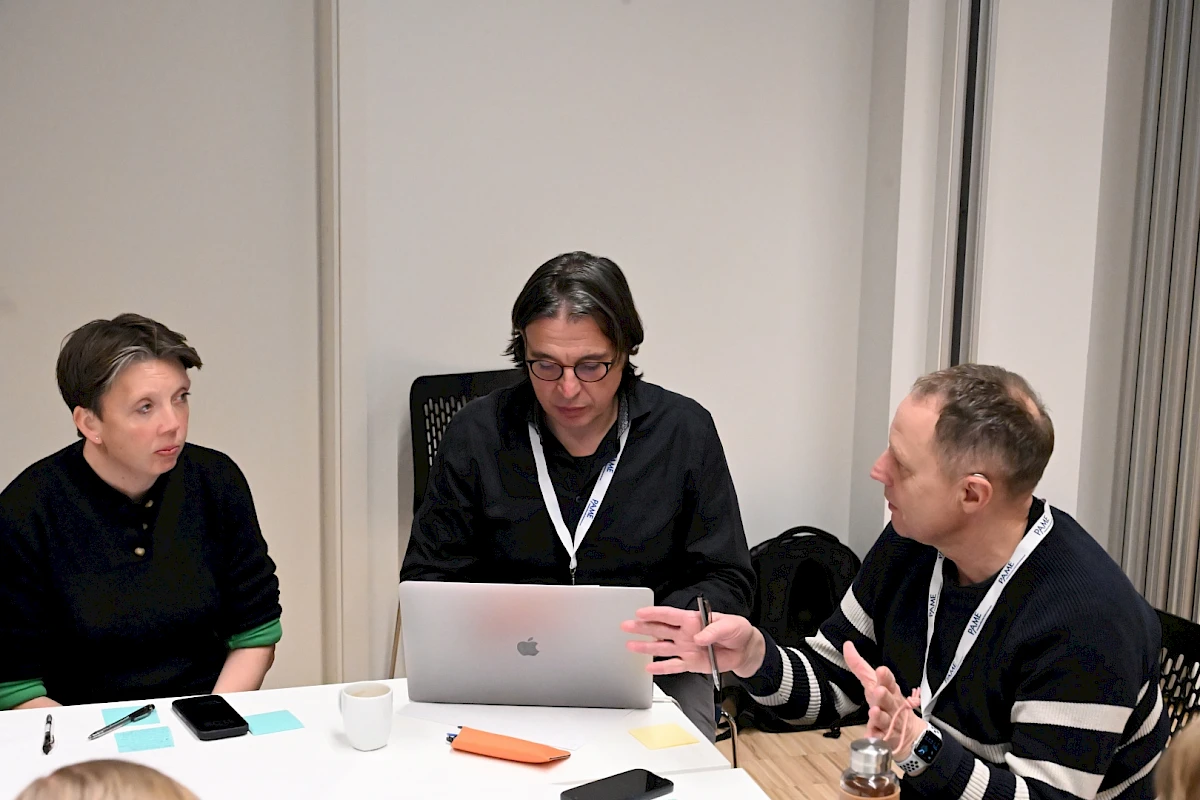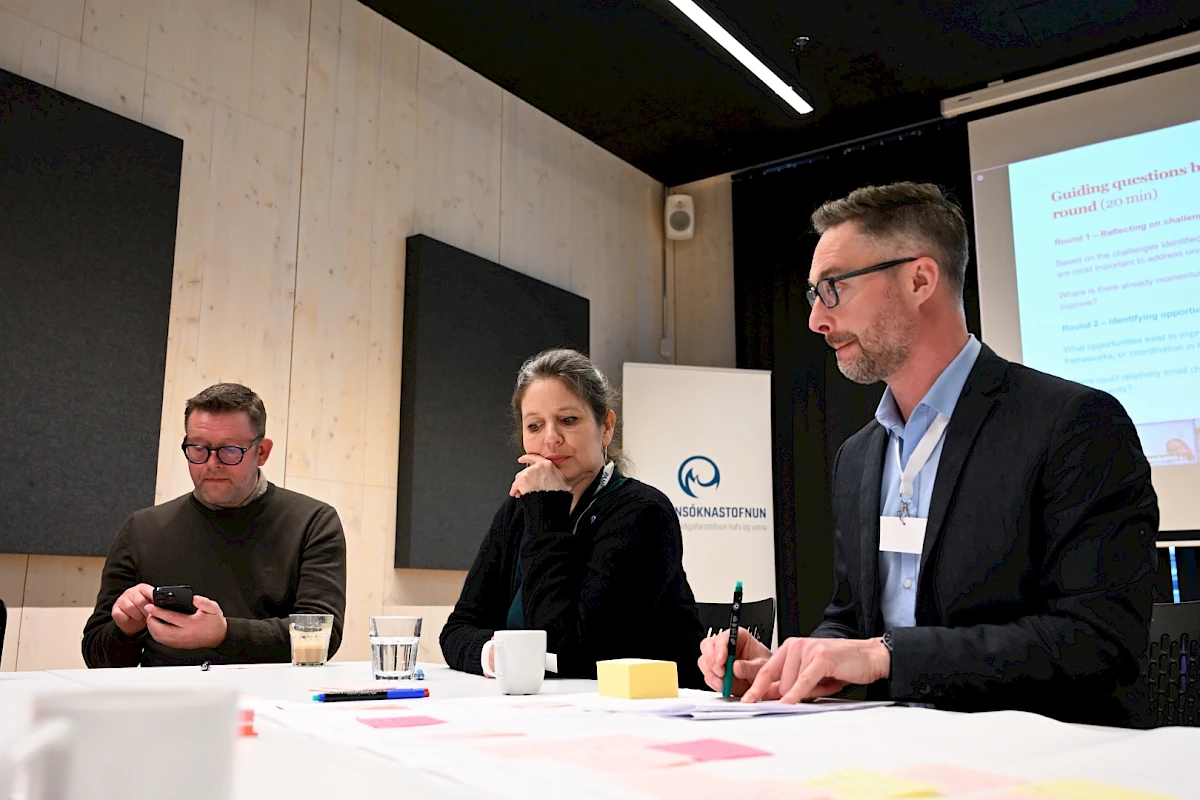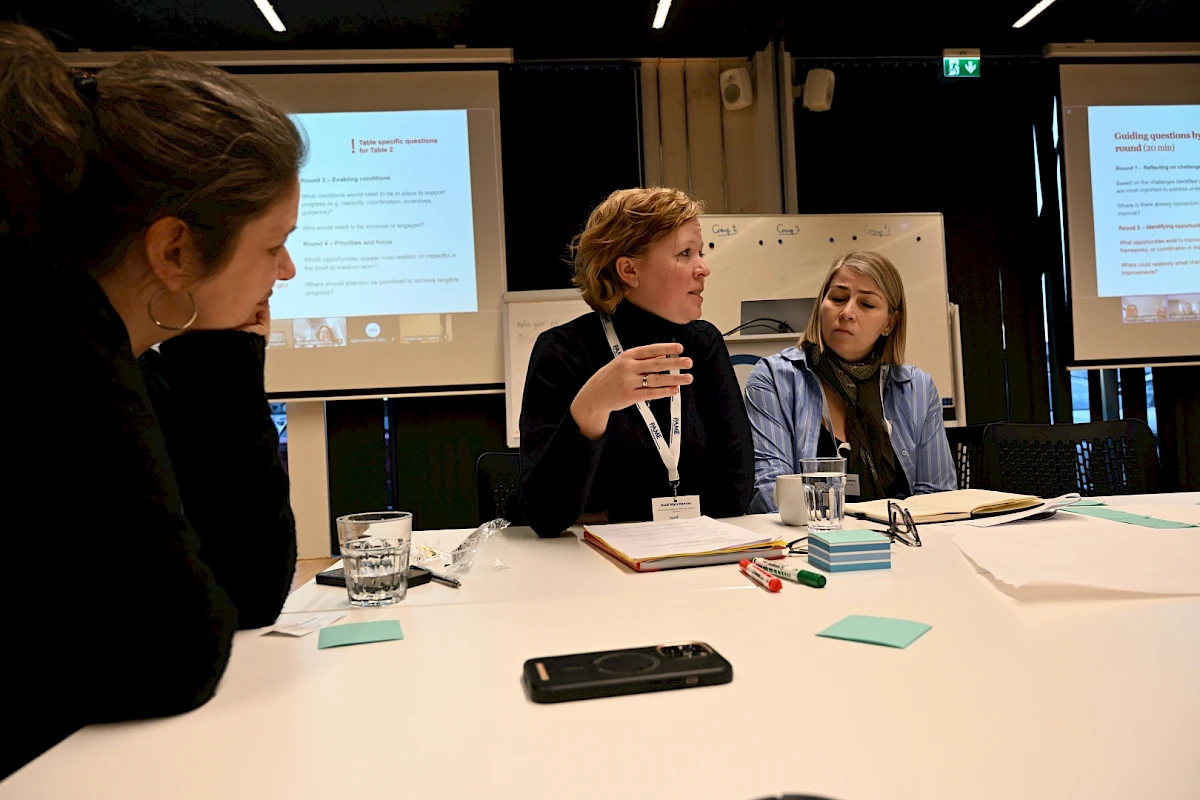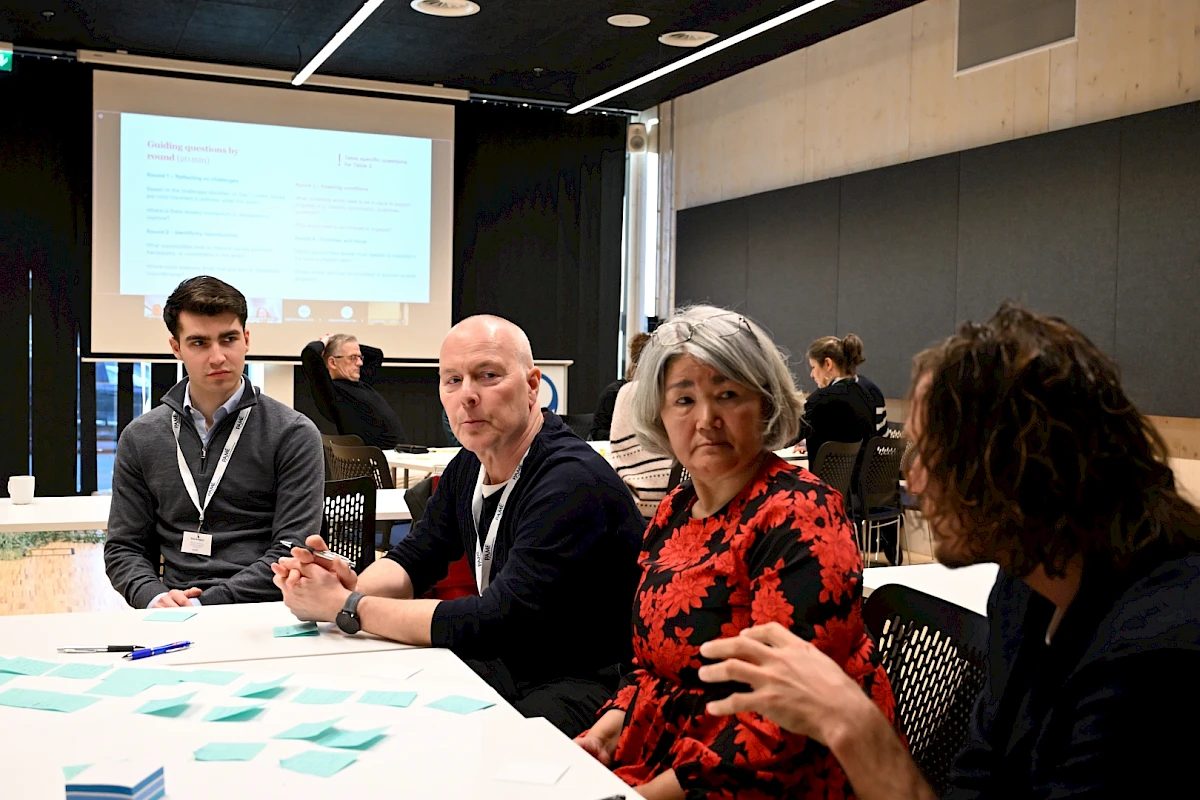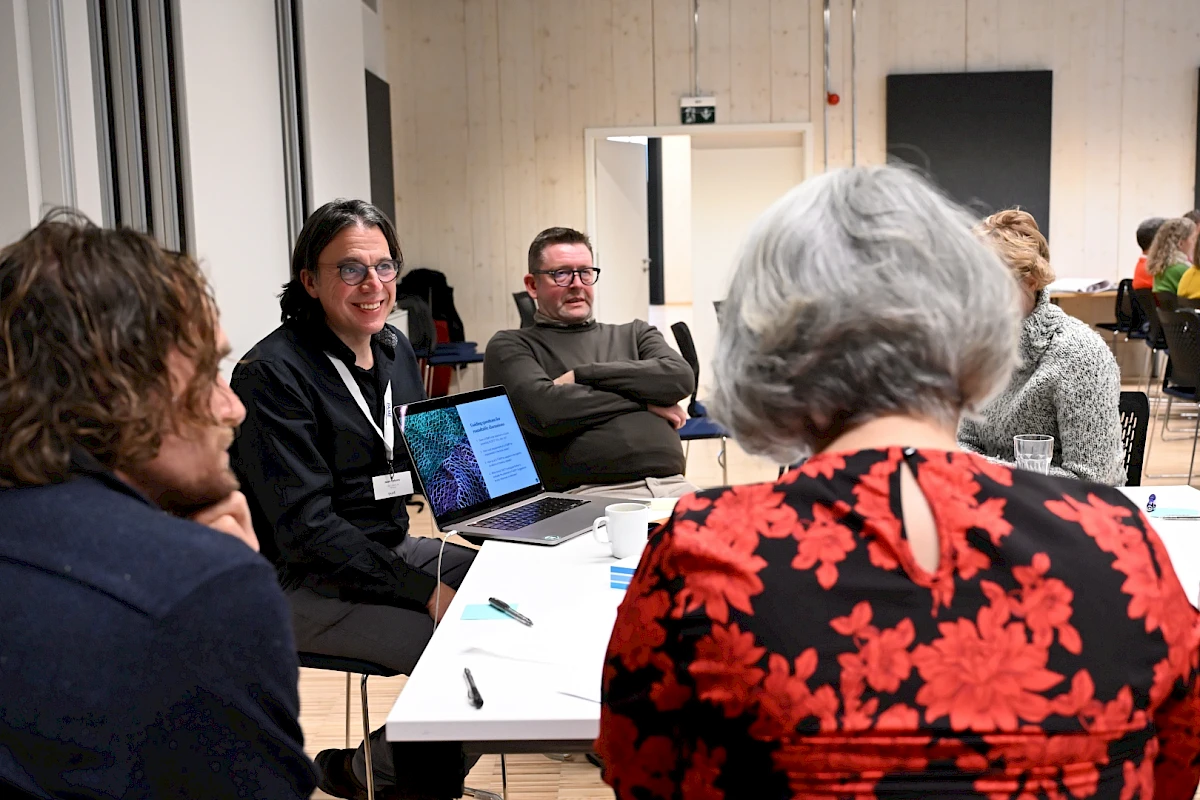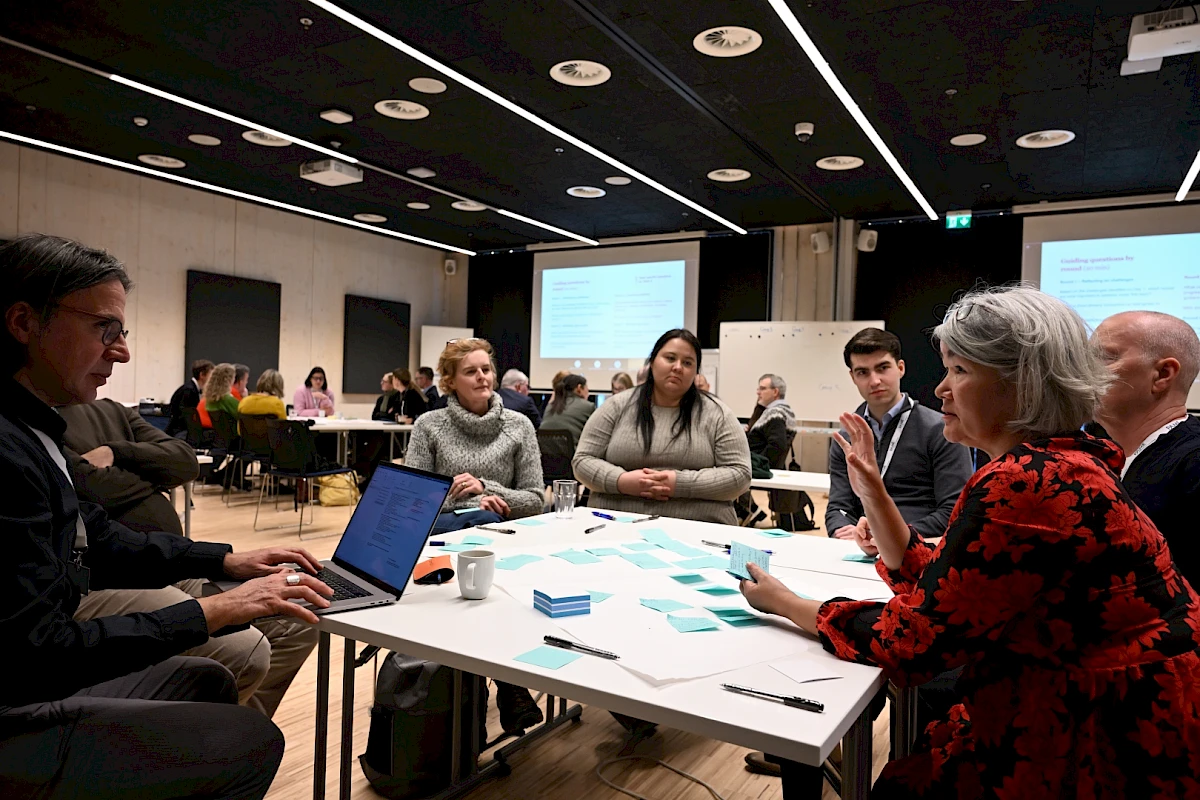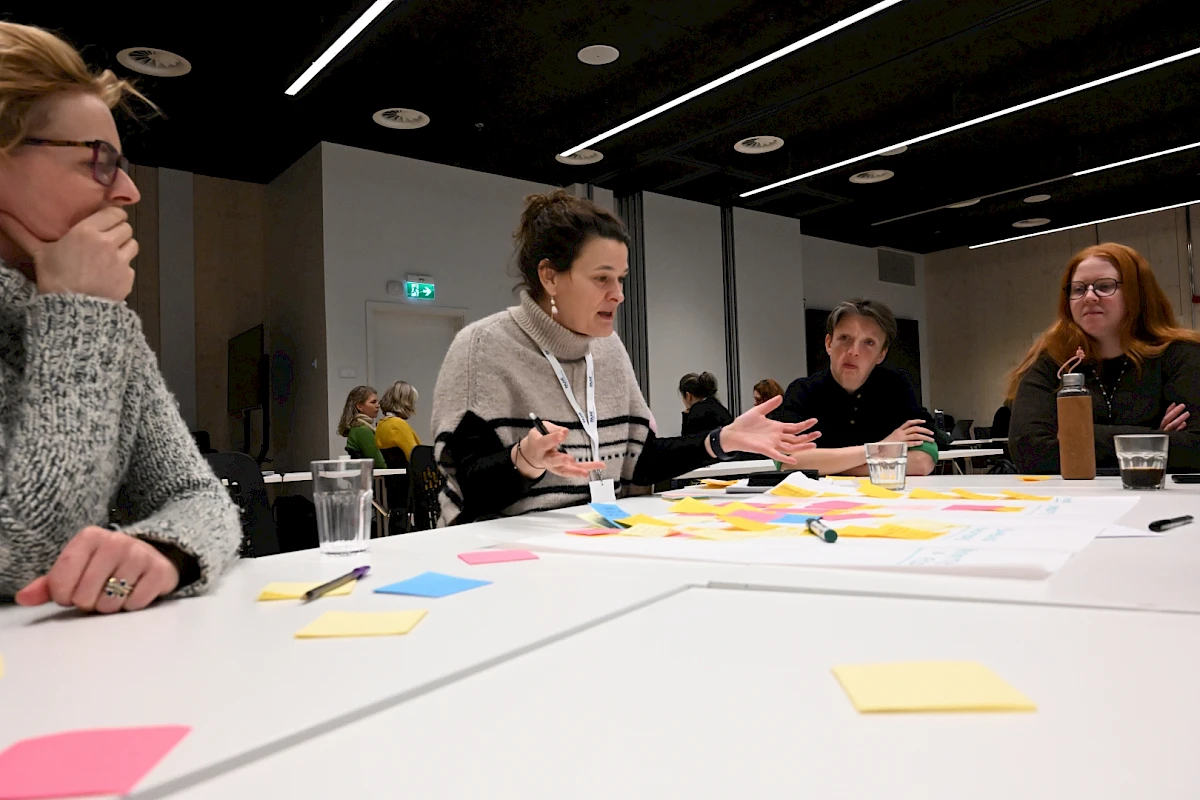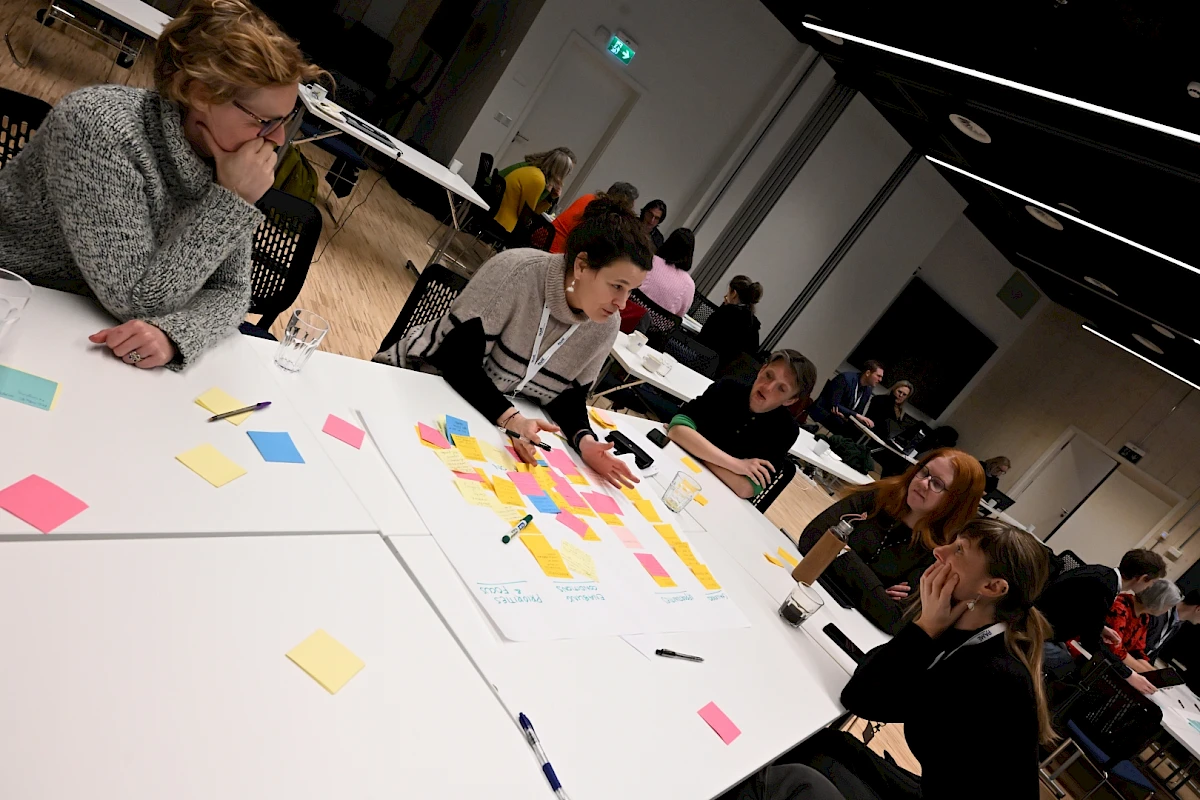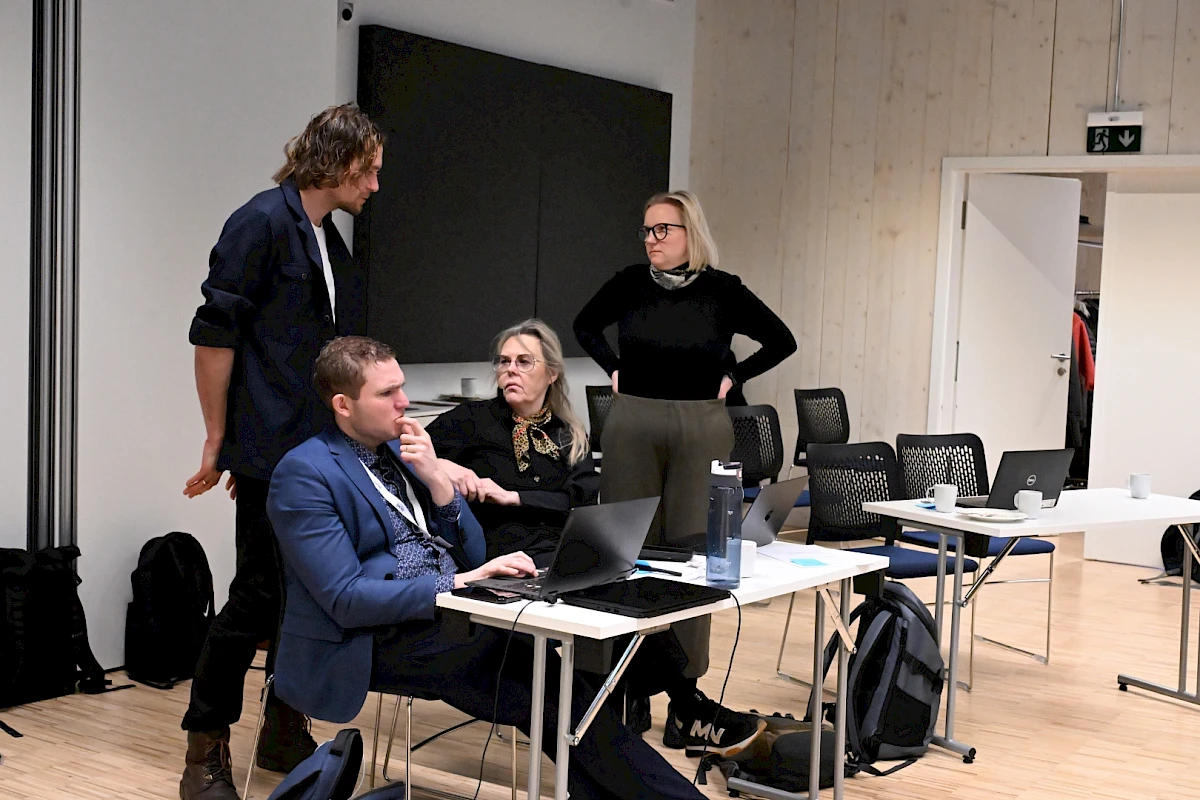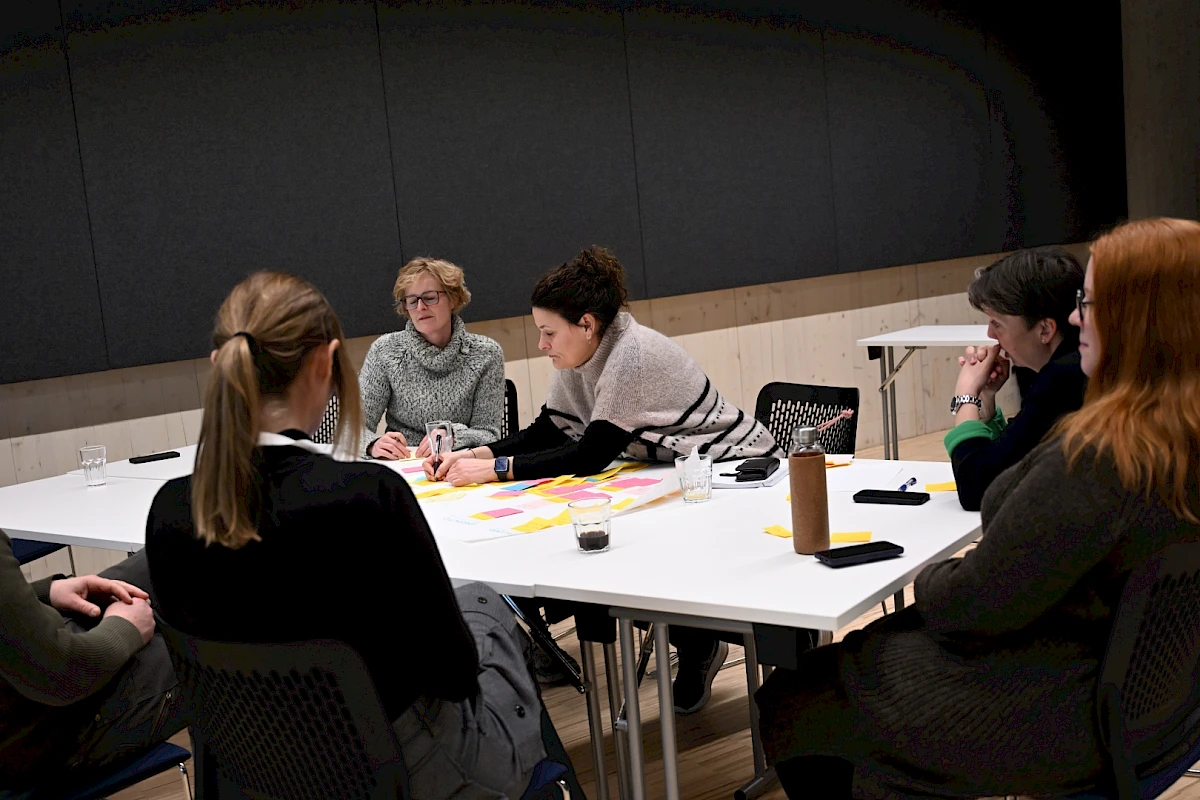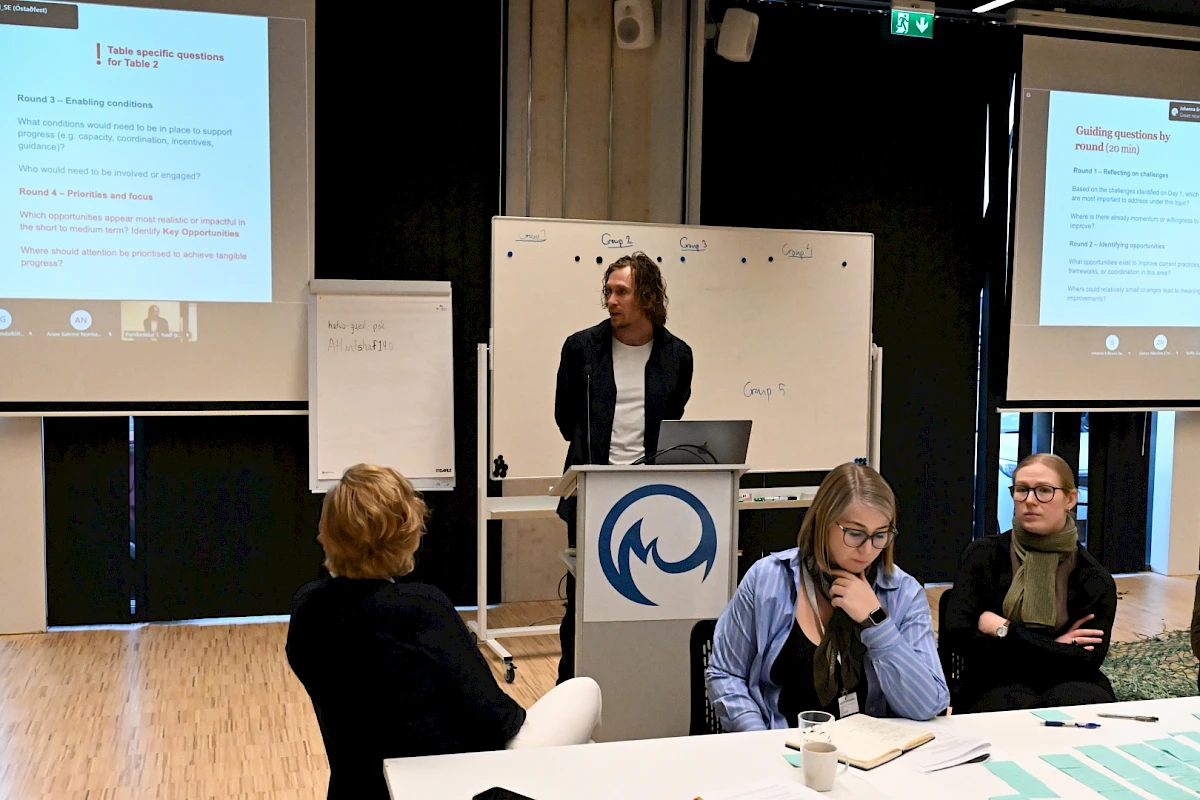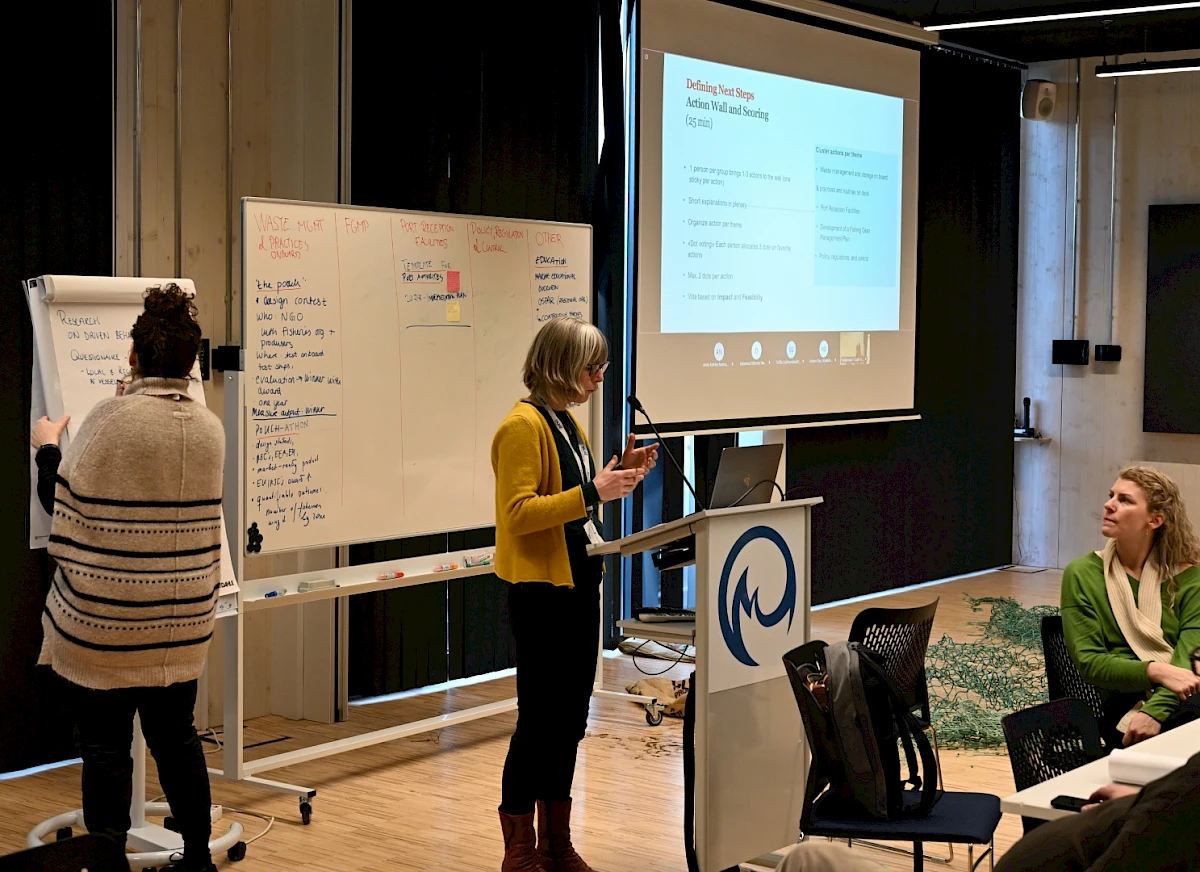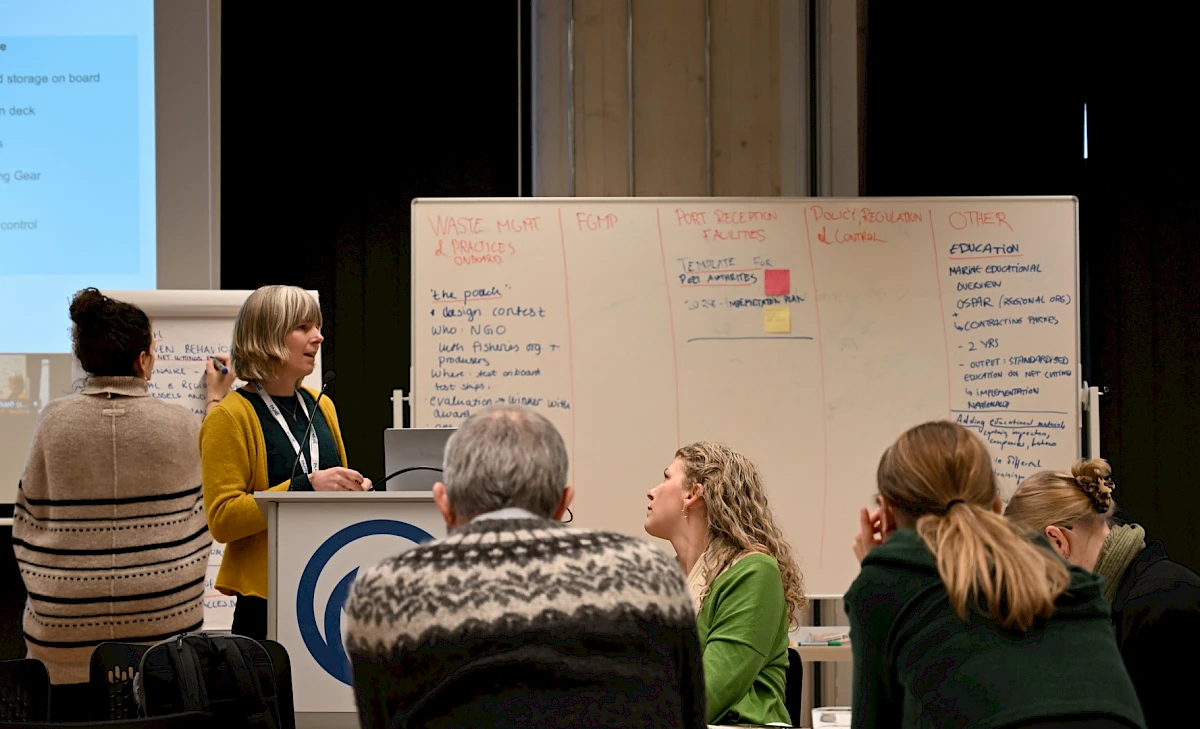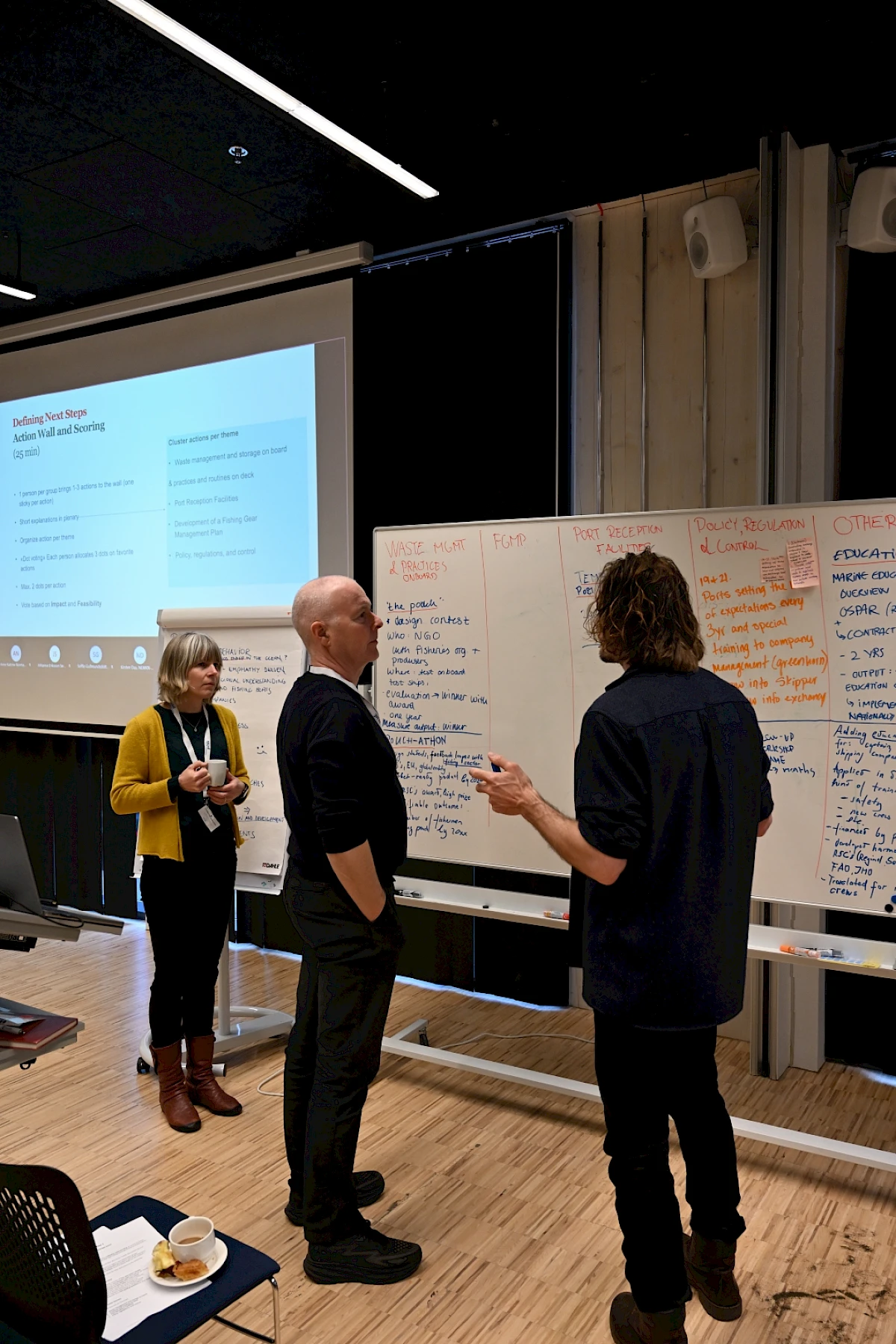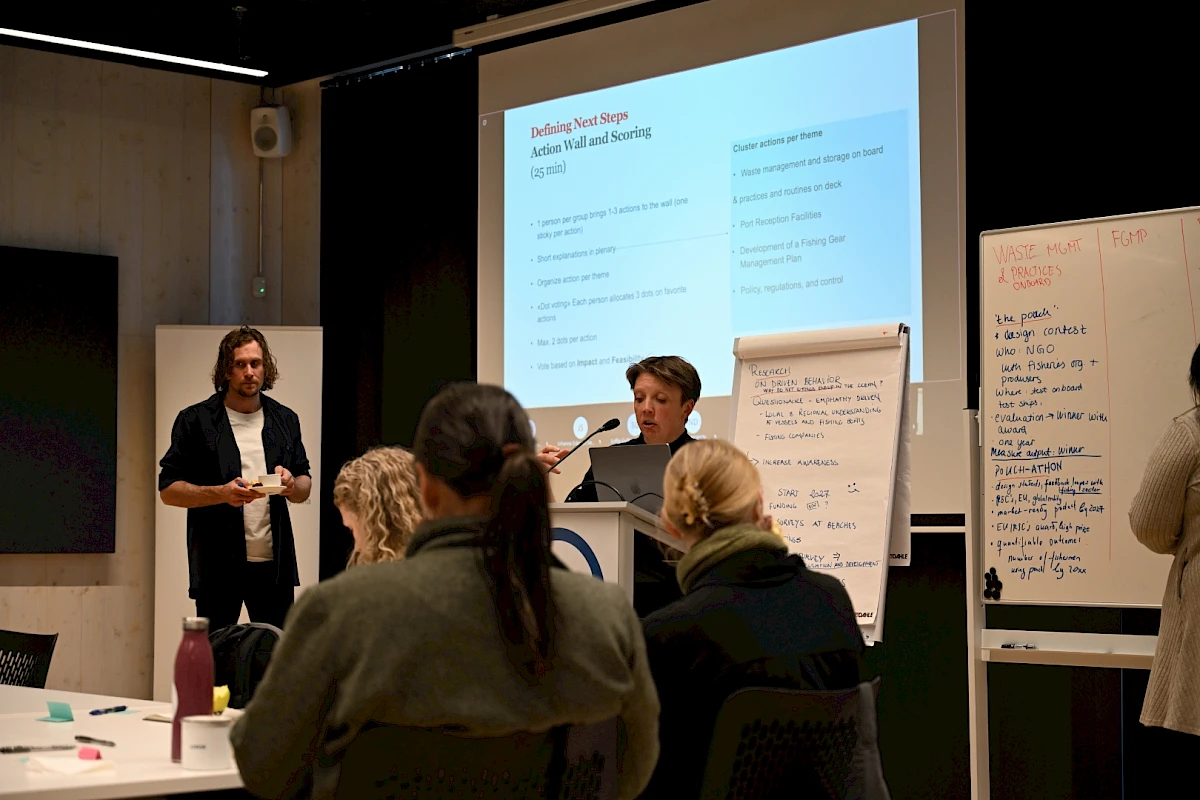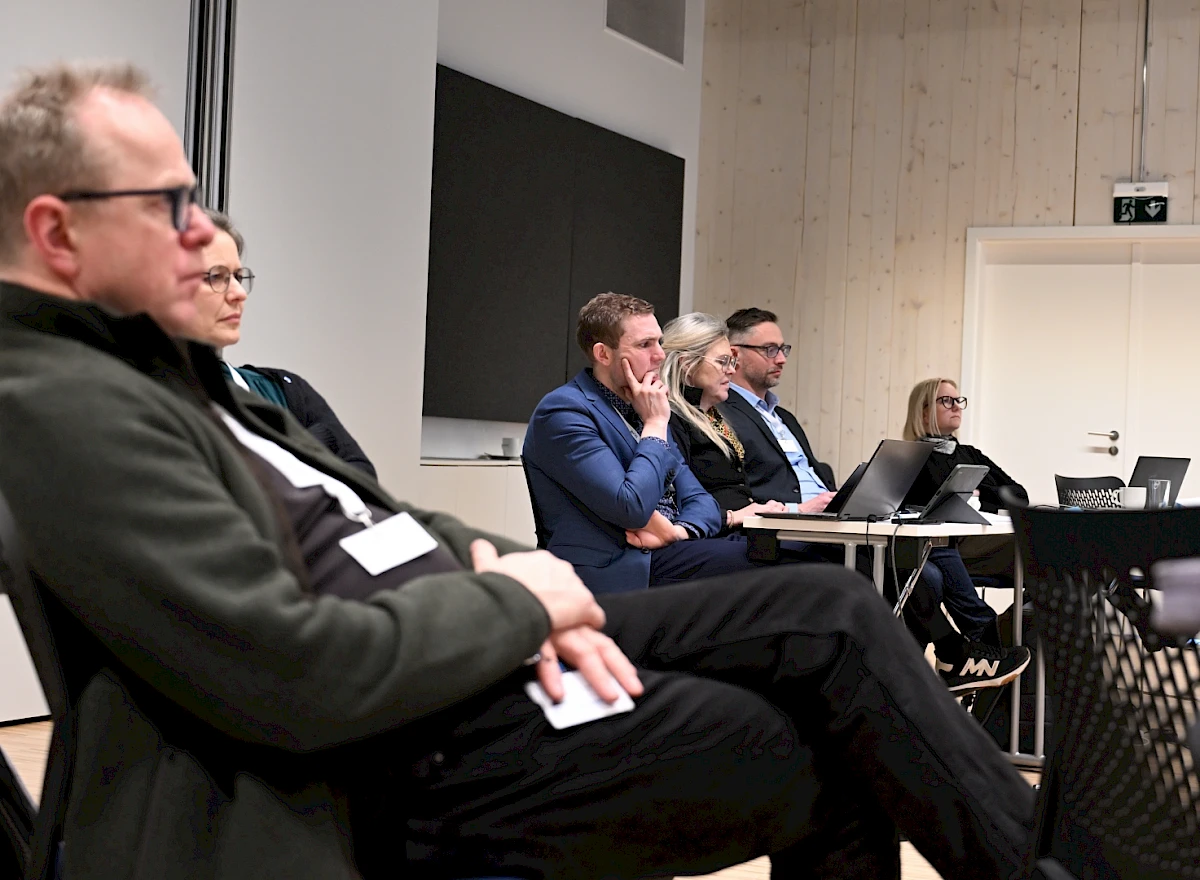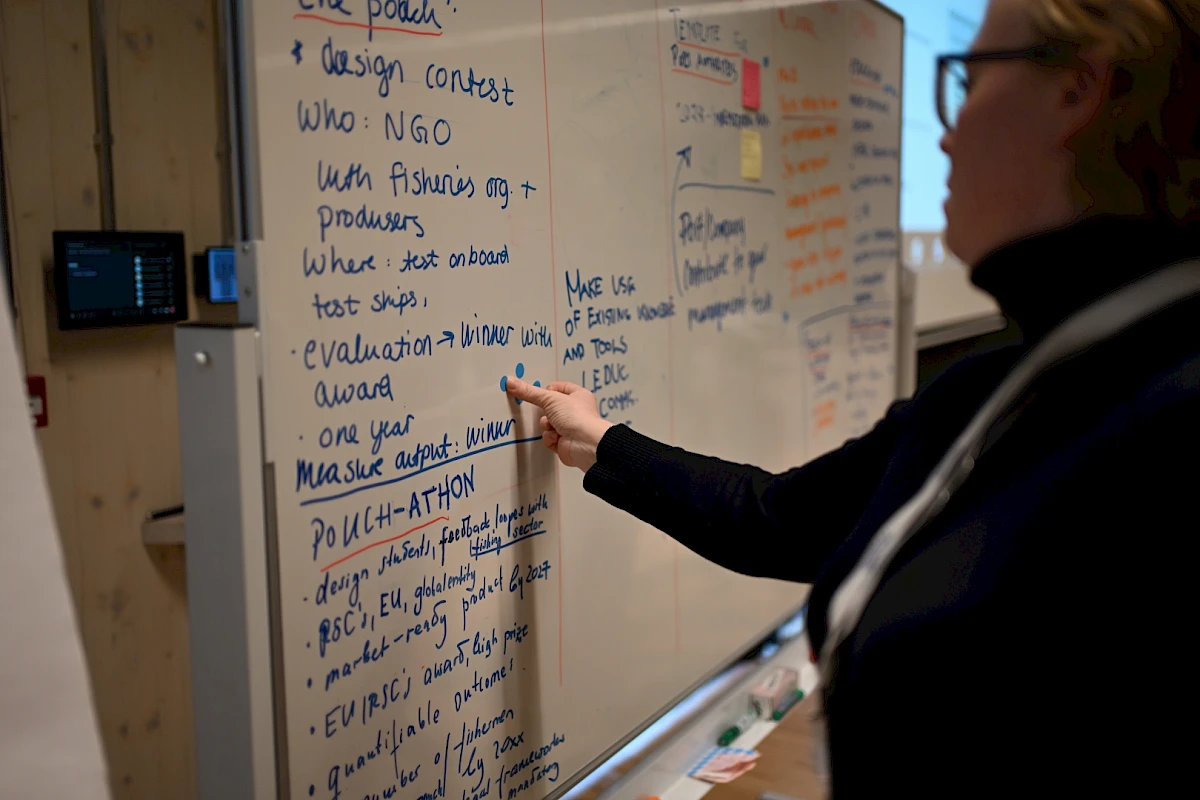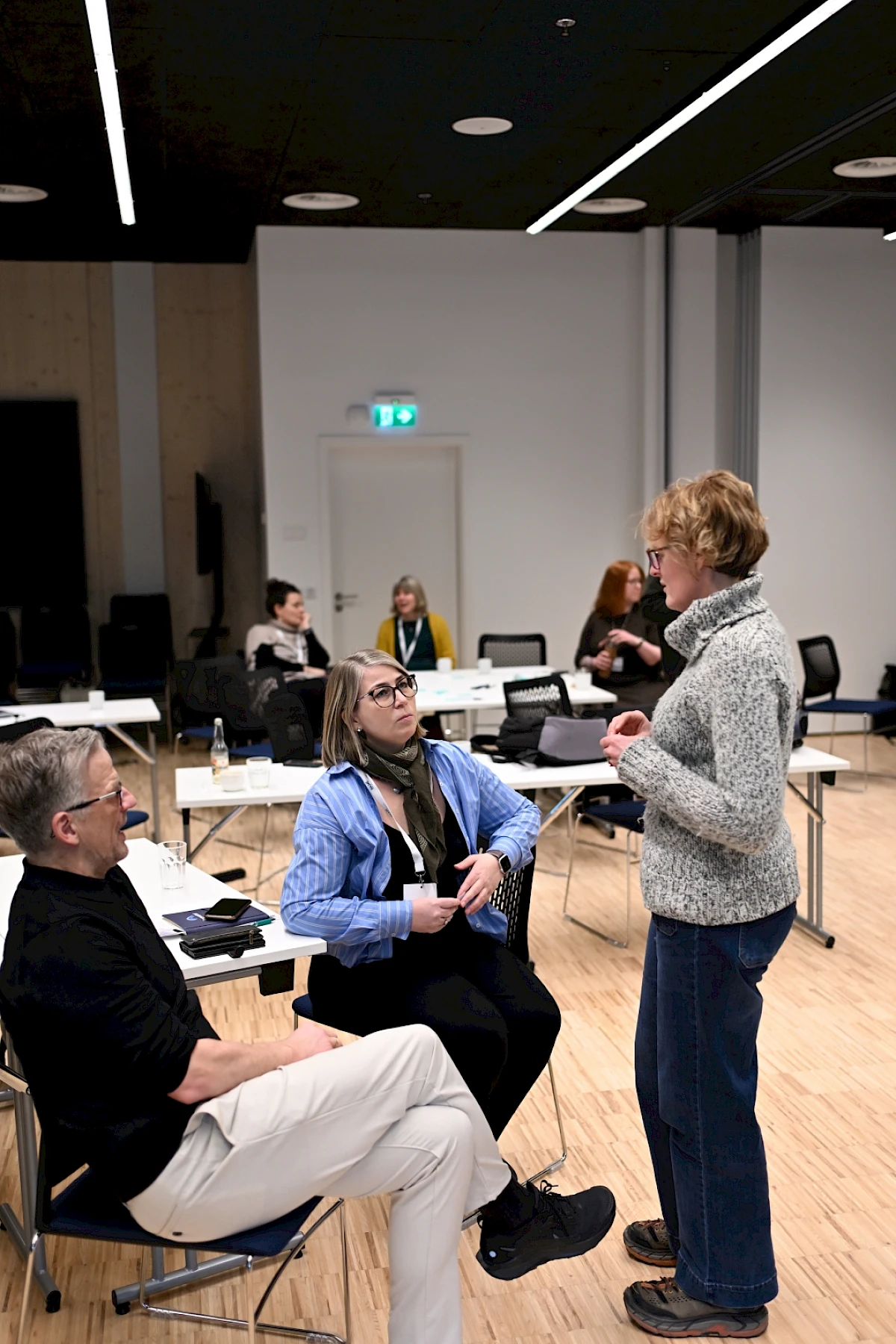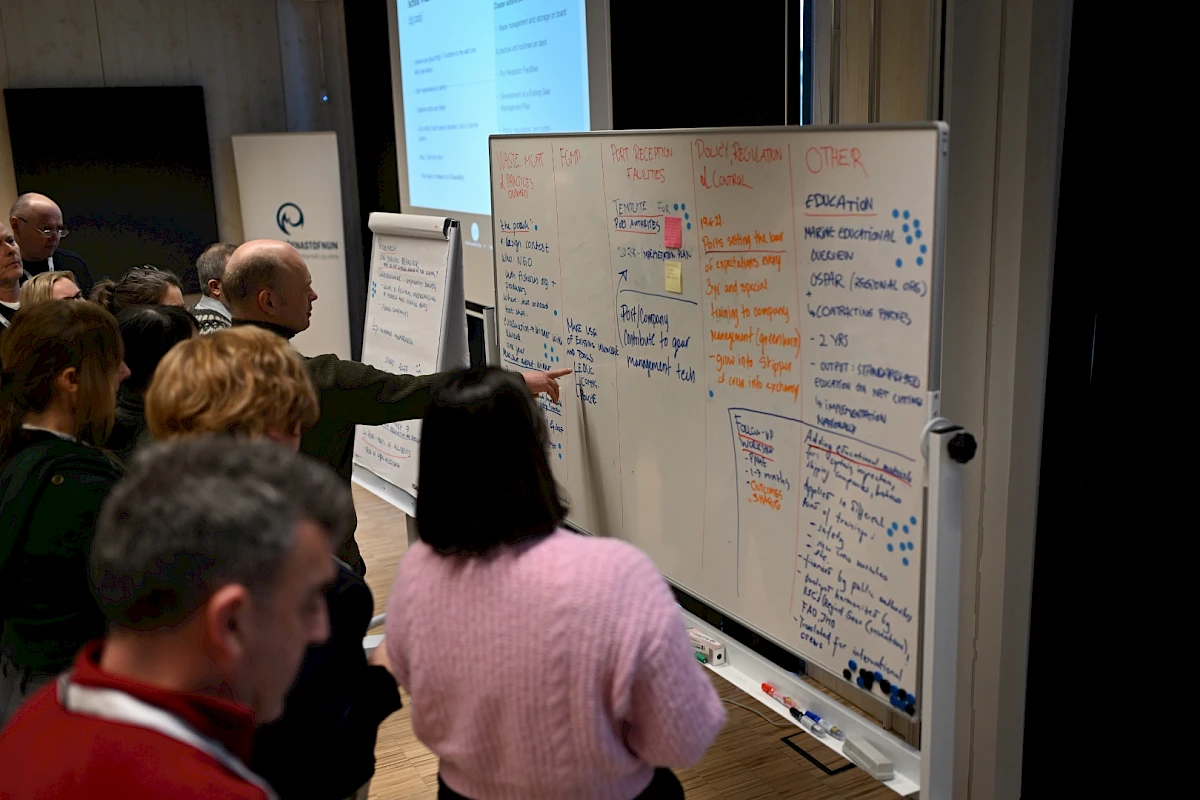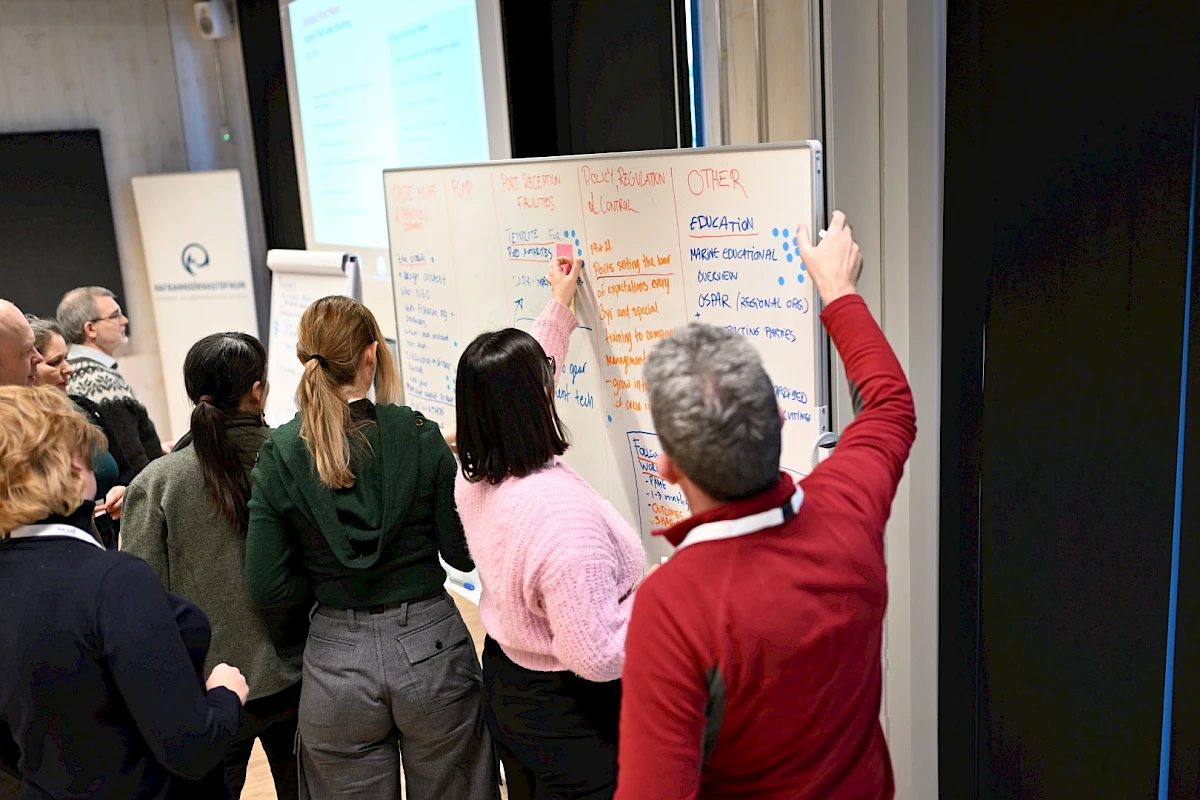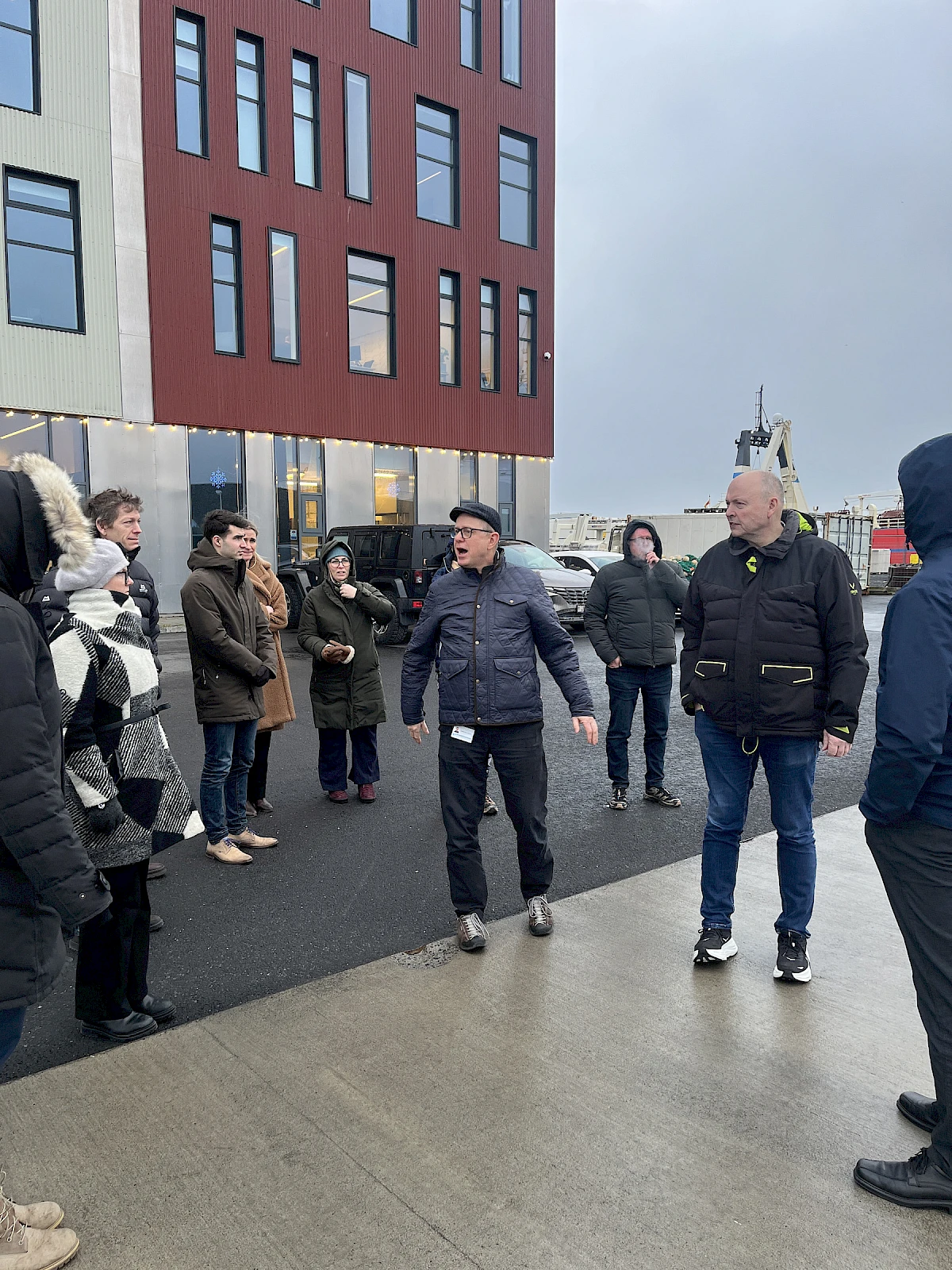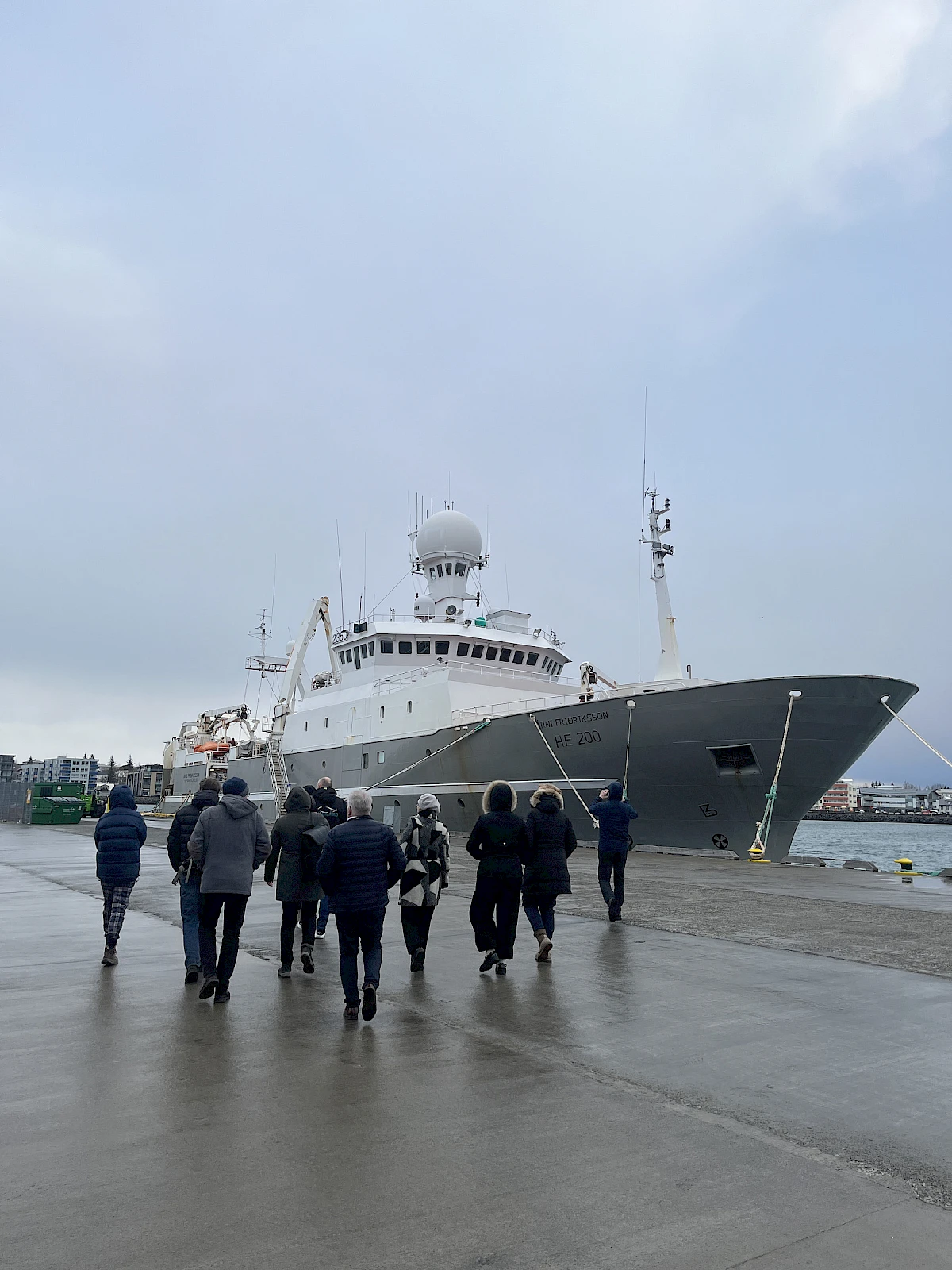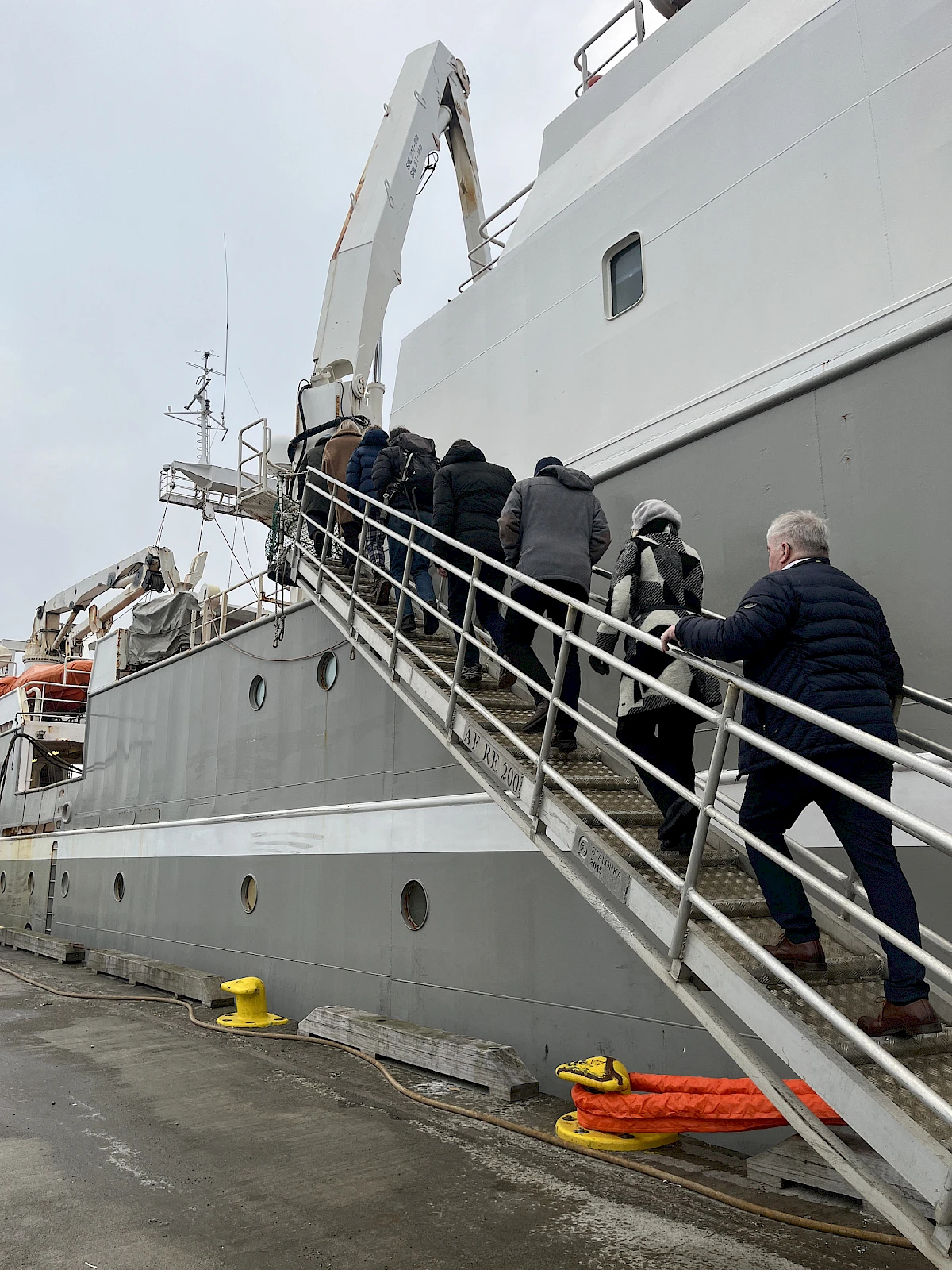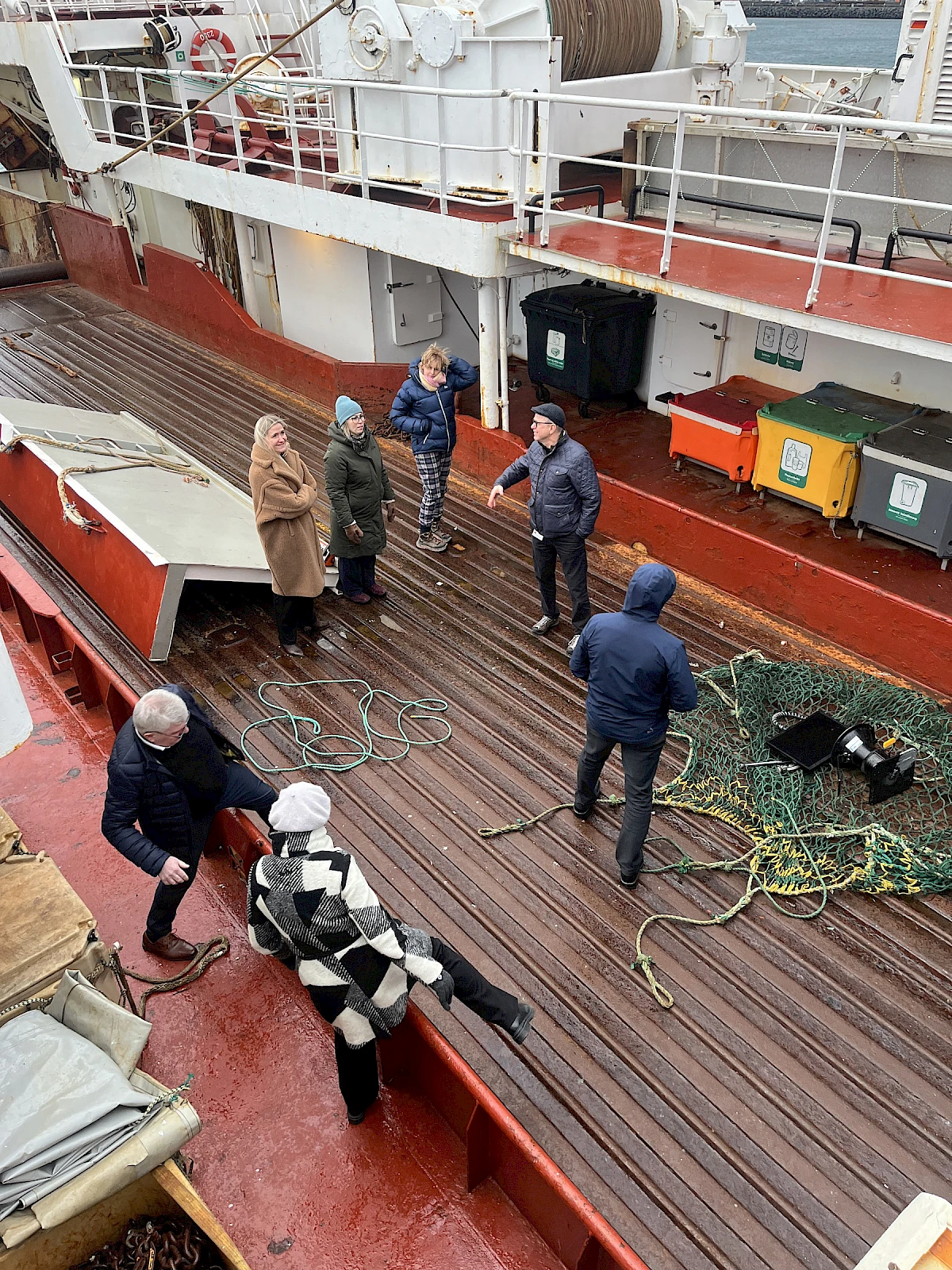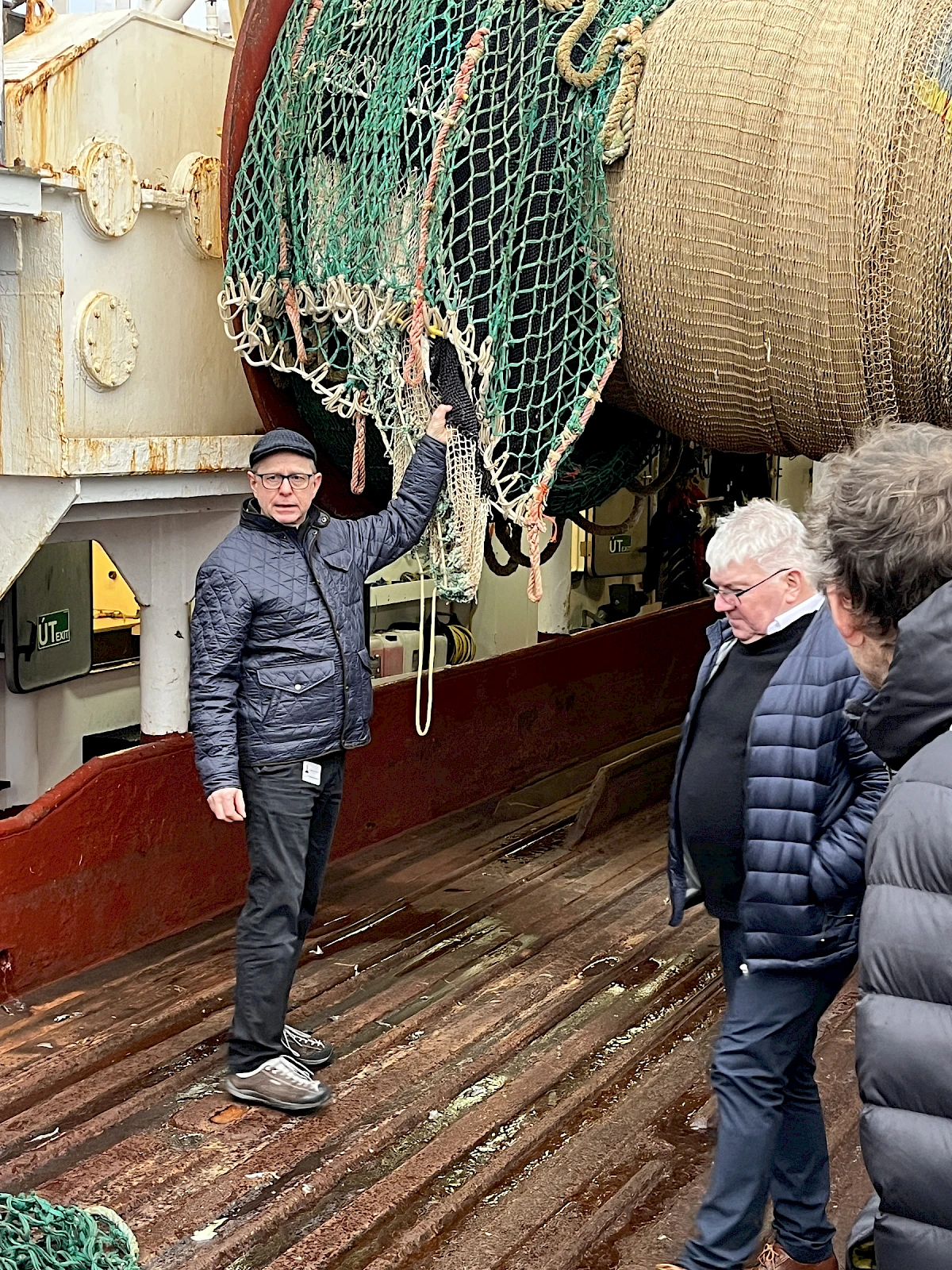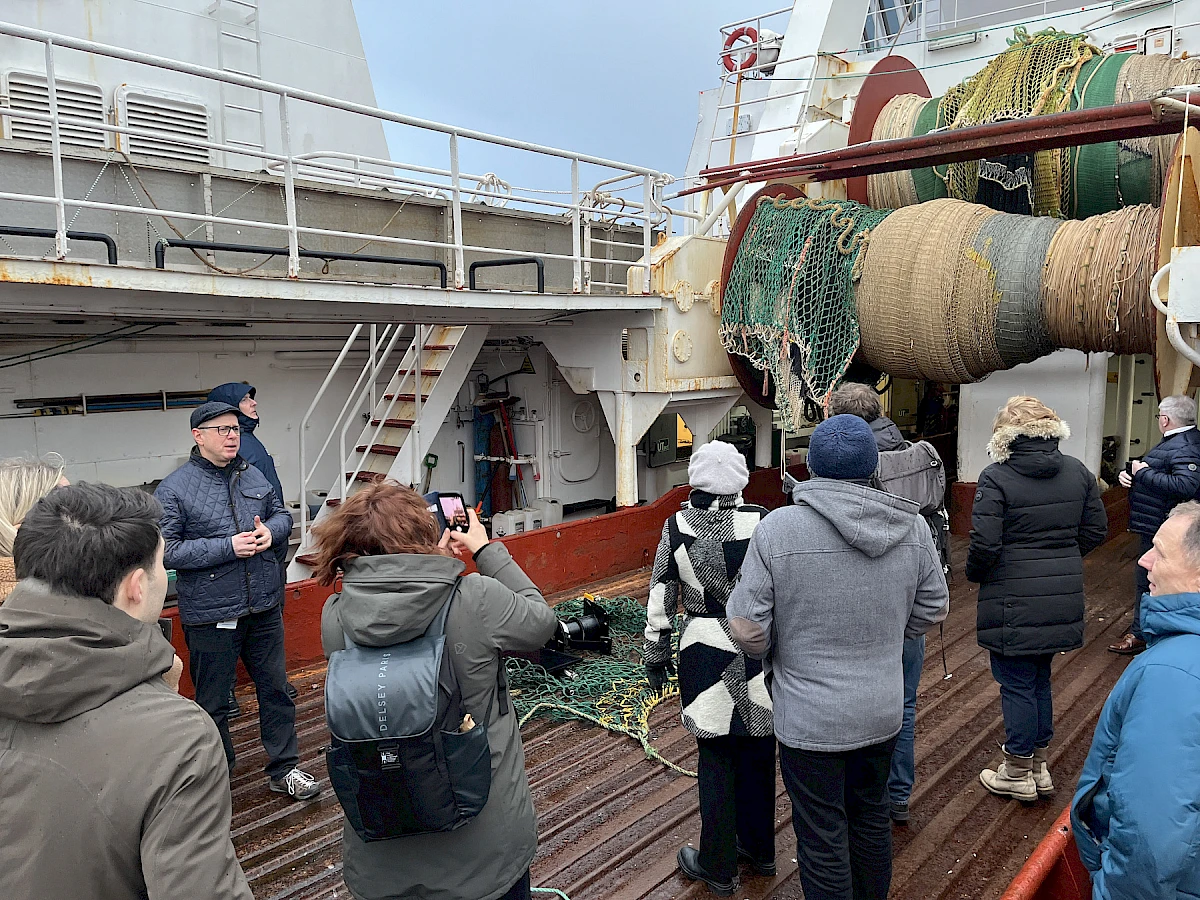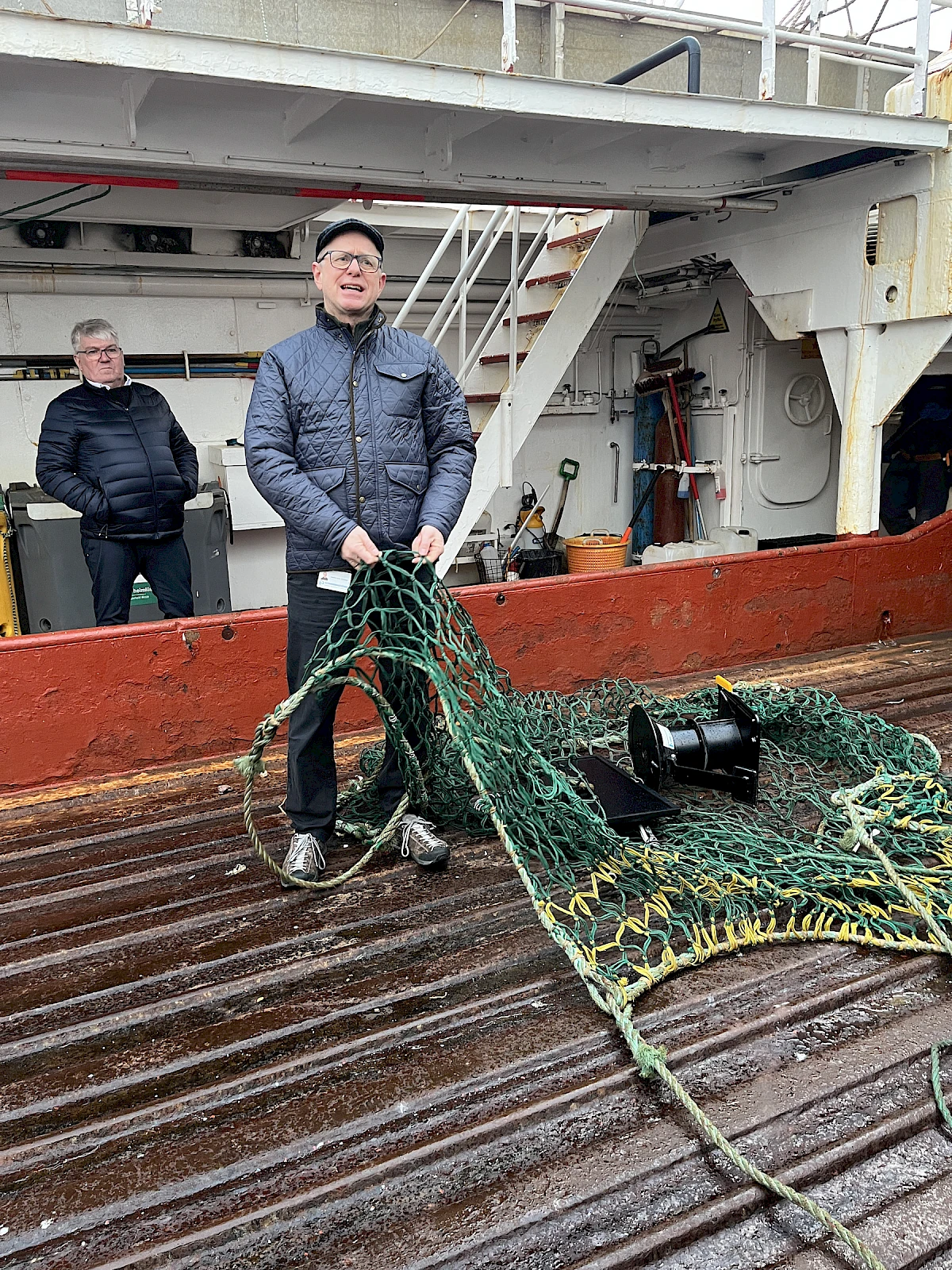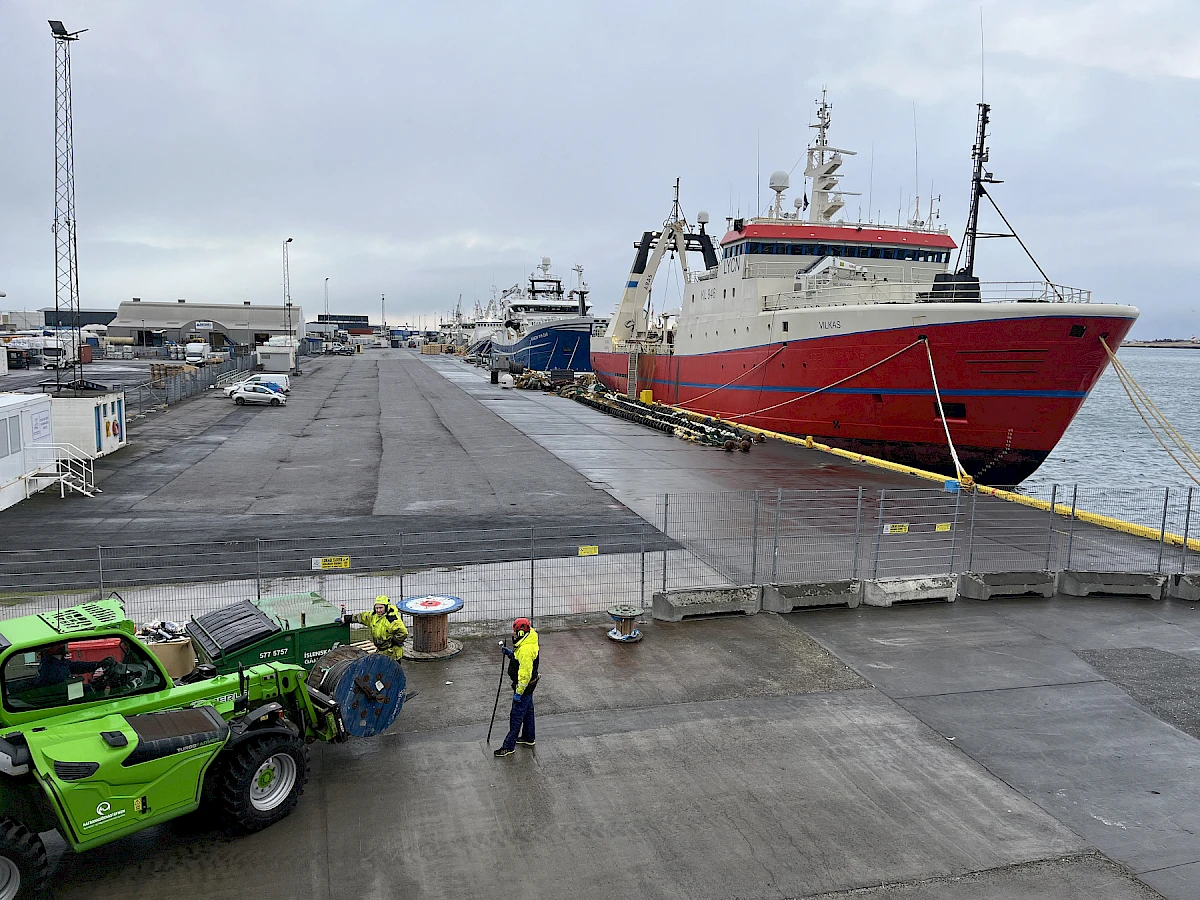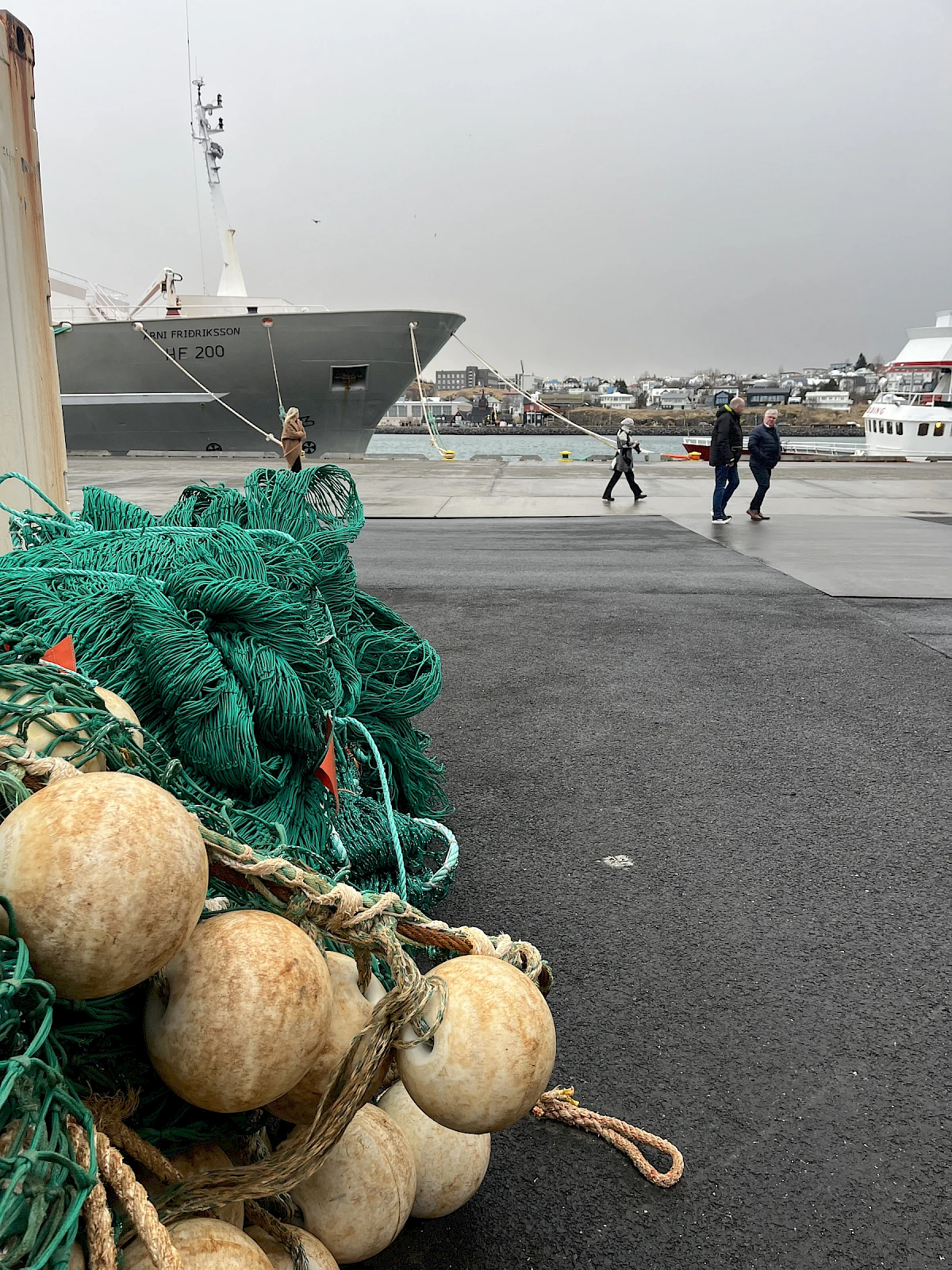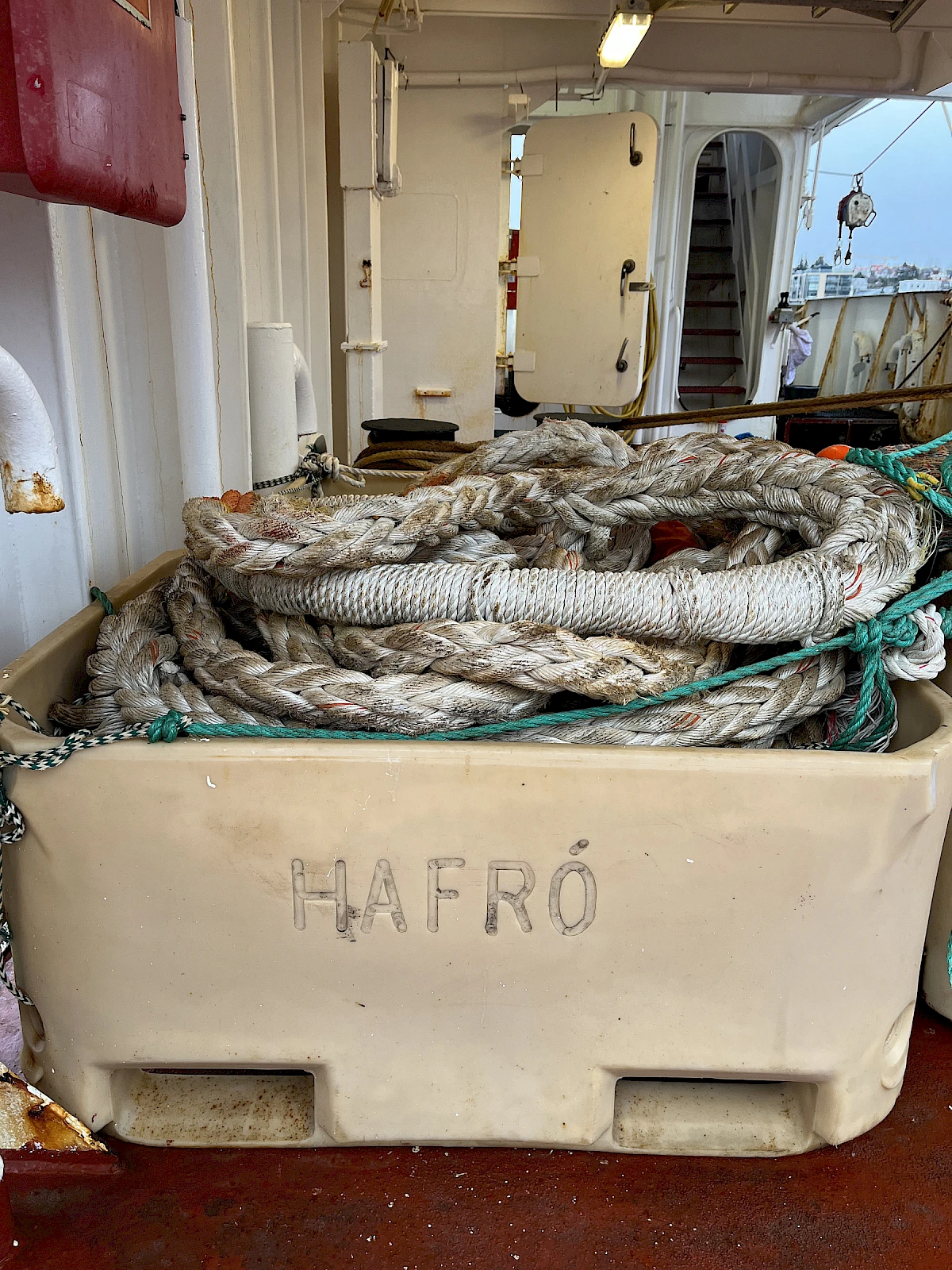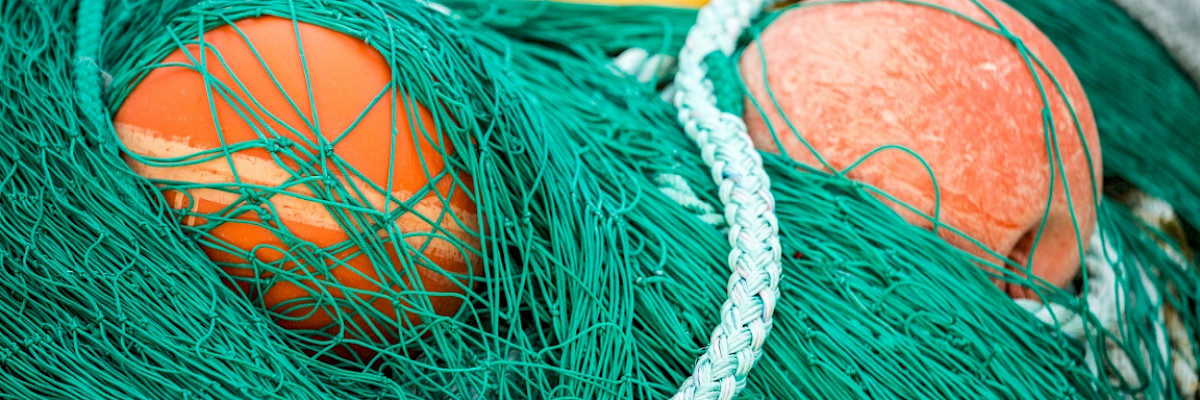
Improving Fishing Gear Waste Management Practices on board fishing vessels operating in the Arctic: Workshop
27-28 January 2026 - Marine and Freshwater Research Institute in Iceland
About the workshop
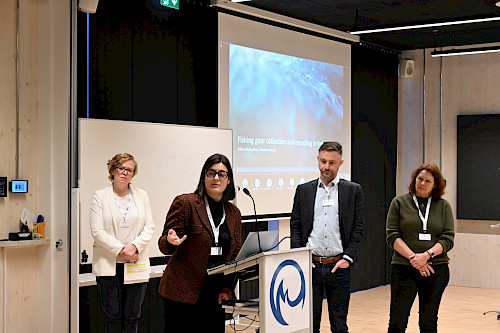 With 40 participants attending in Iceland and several joining online, the workshop advanced critical discussions on marine litter deriving from fishing vessels. The diverse group included policy-makers, fishing industry leaders—including vessel captains—and researchers. The program featured an interactive session on vessel amendments, a visit to a vessel in the port, and a tour of Hampiðjan, a leading fishing net manufacturer.
With 40 participants attending in Iceland and several joining online, the workshop advanced critical discussions on marine litter deriving from fishing vessels. The diverse group included policy-makers, fishing industry leaders—including vessel captains—and researchers. The program featured an interactive session on vessel amendments, a visit to a vessel in the port, and a tour of Hampiðjan, a leading fishing net manufacturer.
Context and Progress
Over the last decade, important progress has been made by the fishing industry, governments, and NGOs to address Abandoned, Lost, or Otherwise Discarded Fishing Gear (ALDFG). Despite these efforts, recent surveys indicate that net and rope cutting waste from bottom trawl vessels remain a primary source of beach litter.
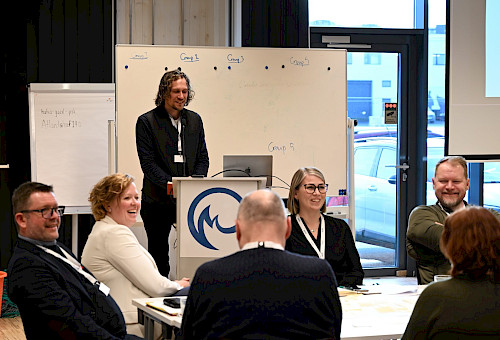
Objectives and Outcomes
This two-day workshop brought together fisheries representatives, policymakers, researchers, and NGOs to identify practical ways to capitalize on ongoing efforts. The focus remained on improving waste management practices on board vessels operating in Arctic waters, with particular attention to bottom-trawl fisheries.
By fostering dialogue, the workshop achieved several key goals:
-
Strengthened understanding of onboard waste practices and operational challenges.
-
Identified knowledge gaps and practical, regionally relevant solutions.
-
Encouraged networking through social gatherings, allowing for informal exchange between experts.
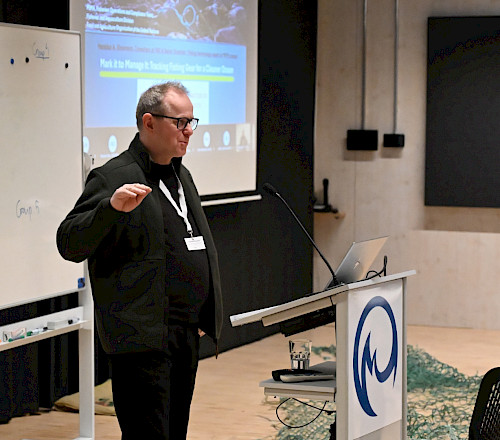 Broader Impact
Broader Impact
While the workshop focused on the Arctic, the lessons learned are applicable to similar fisheries globally. The insights gathered will contribute to ongoing efforts within the Arctic Council, OSPAR, and the IMO, and have helped lay the groundwork for a Fishing Gear Management Plan tailored to vessels operating in Arctic waters.
The workshop was organized and hosted by Iceland, Norway, the Kingdom of Denmark, and the Netherlands in collaboration with Wageningen Social & Economic Research, the Norwegian Directorate of Fisheries; the Norwegian Environment Agency; the Icelandic Environment and Energy Agency; the Icelandic Directorate of Fisheries; the Danish Environmental Protection Agency and Aarhus University.
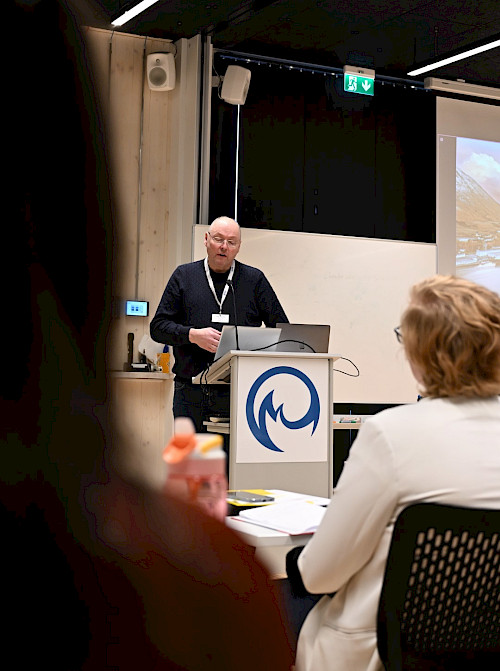 Presentations
Presentations
- Overview of Arctic and near - Arctic fisheries activity and gear used
- Peter Murphy, NOAA, on behalf of co-leads of the ALDFG report
- Fishing gear waste on the coastline of the Arctic
- Wouter-Jan Strietman – Wageningen Social & Economic Research
- International shipping frameworks and obligations
- Margot Parcaroli-Ruiz-Estrada - International Maritime Organization (IMO)
- OSPARs work on ALDFG in the light of its North-East Atlantic Strategy and the Regional Action Plan on Marine Litter
- Stefanie Werner, German Environment Agency
- Experience from Icelandic Fisheries
- Hildur Hauksdóttir, Fisheries Iceland
- Experience from Norwegian Fisheries
- Torgeir Mannvik, Skipper on the trawler Sørkapp, Nergård Group
- Action Plan by Norwegian Fishermen to prevent Marine Littering, Waste Management Procedure
- Tor Are Vaskinn, Fiskebåt, Membership organization for the Norwegian deep-sea fishing fleet
- Developing best practices to reduce net cuttings waste in the marine environment
- Ryan D’Arcy Metcalfe, KIMO International
- Mark it to Manage It: Tracking Fishing Gear for a Cleaner Ocean
- Haraldur Arnar Einarsson, Marine and Freshwater Research Institute, Iceland
- The Development of an Arctic Fishing Gear Management Plan
- Carl Höjman, SALT
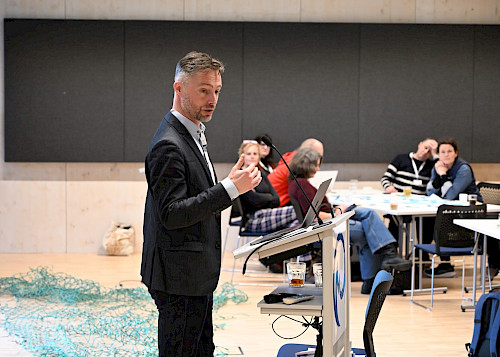 Other links:
Other links:
- Gap analysis on the application of the FAO’s voluntary guideline for marking of fishing gear in the OSPAR maritime area
- Author: Joan Fabres. Co-author(s): Carl Höjman, Hilde Rødås Johnsen, Jason Bryan
- PAME's Regional Action Plan on Marine Litter in the Arctic
- From Haraldur's presentation:
- FAO Voluntary Guidelines on the Marking of Fishing Gear (2019) - VGMFG
- Explain why and how fishing gear should be marked
- Supports ALDFG reduction, environmental protection, safety at sea, and IUU fishing control
- Supplement 1: A framework for conducting a risk assessment for a system on the marking of fishing gear (2023)
- A practical framework to assess the need for gear marking
- Helps design appropriate marking systems, building on the Guidelines
- Supplement 2: Manual for the marking of fishing gear (2023)
- Practical instructions for marking major fishing gear types
- Provide examples, placements of marking, and a suggestion of a method of testing gear
mark
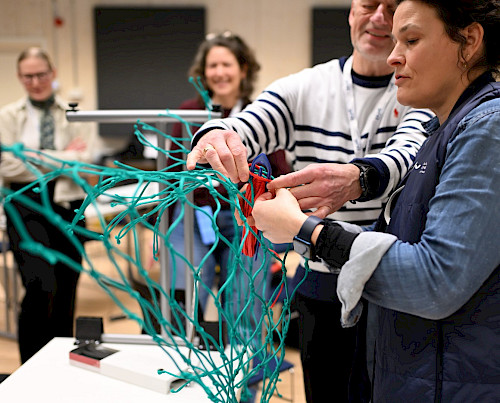 The Circular Economy of Fishing Gear in Nordic Fisheries
The Circular Economy of Fishing Gear in Nordic Fisheries
- Published in April 2025. Apart from the main text, which may be useful, the section “Recommendations and ideas” is particularly valuable for clarifying the key priorities that should be aimed for:
- Gear marking and owner identification
- Registration system for fishing gear
- Lost gear reporting and retrieval
- Enhance regional collaboration
- Address fragment loss
- Increase recycling capacity
- Support and incentivise fisher participation
- Expand retrieval efforts
- Promote a circular economy
- Enhance data collection and research
- Published in April 2025. Apart from the main text, which may be useful, the section “Recommendations and ideas” is particularly valuable for clarifying the key priorities that should be aimed for:
- FAO Voluntary Guidelines on the Marking of Fishing Gear (2019) - VGMFG
Photos from day 1:
Courtesy of Georg Haney.
Click to enlarge.
Photos from day 2:
Courtesy of Georg Haney.
Click to enlarge.
Photos from visit to research vessel:
Click to enlarge.
 Arctic Council Working Group
Arctic Council Working Group 